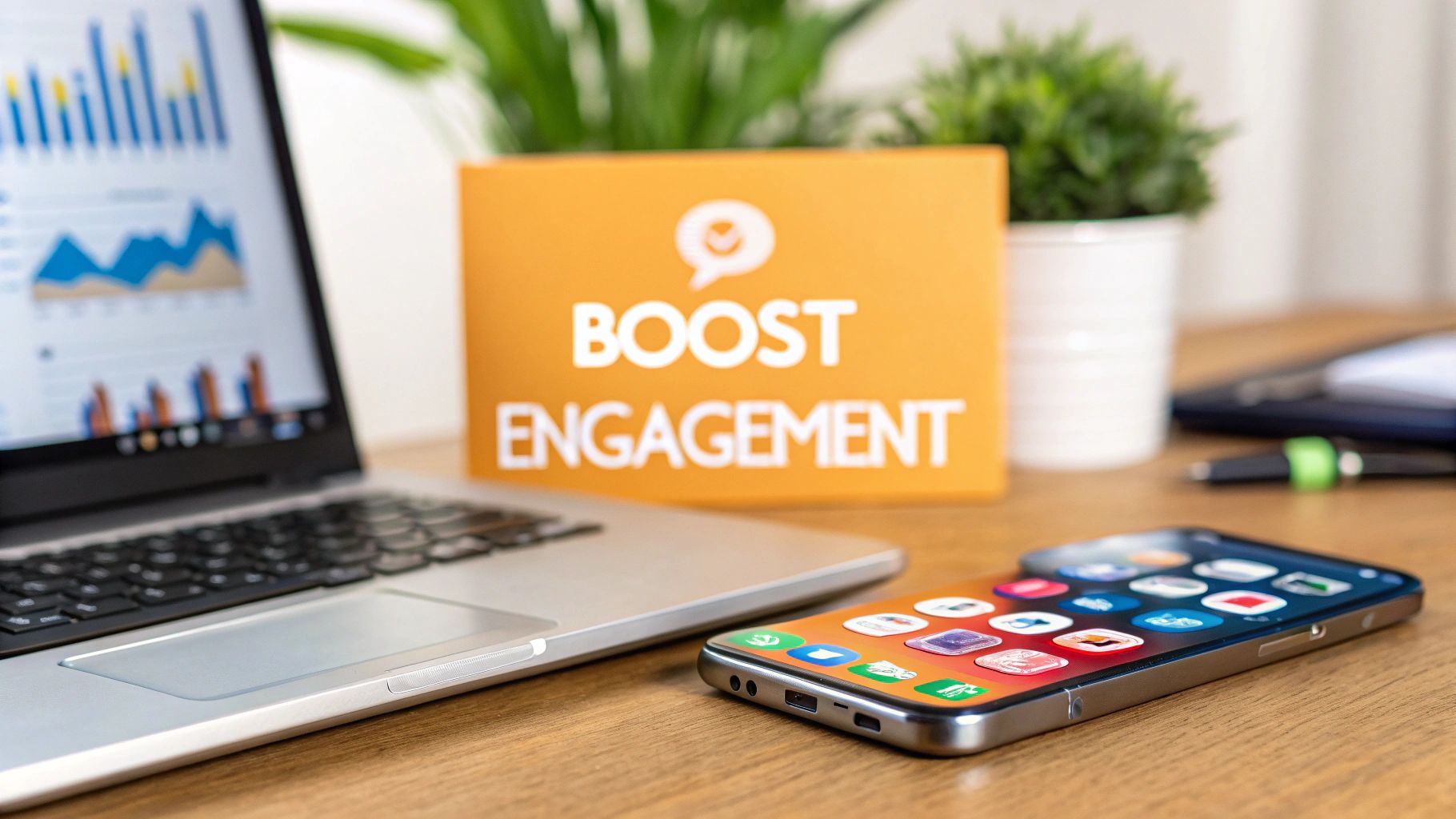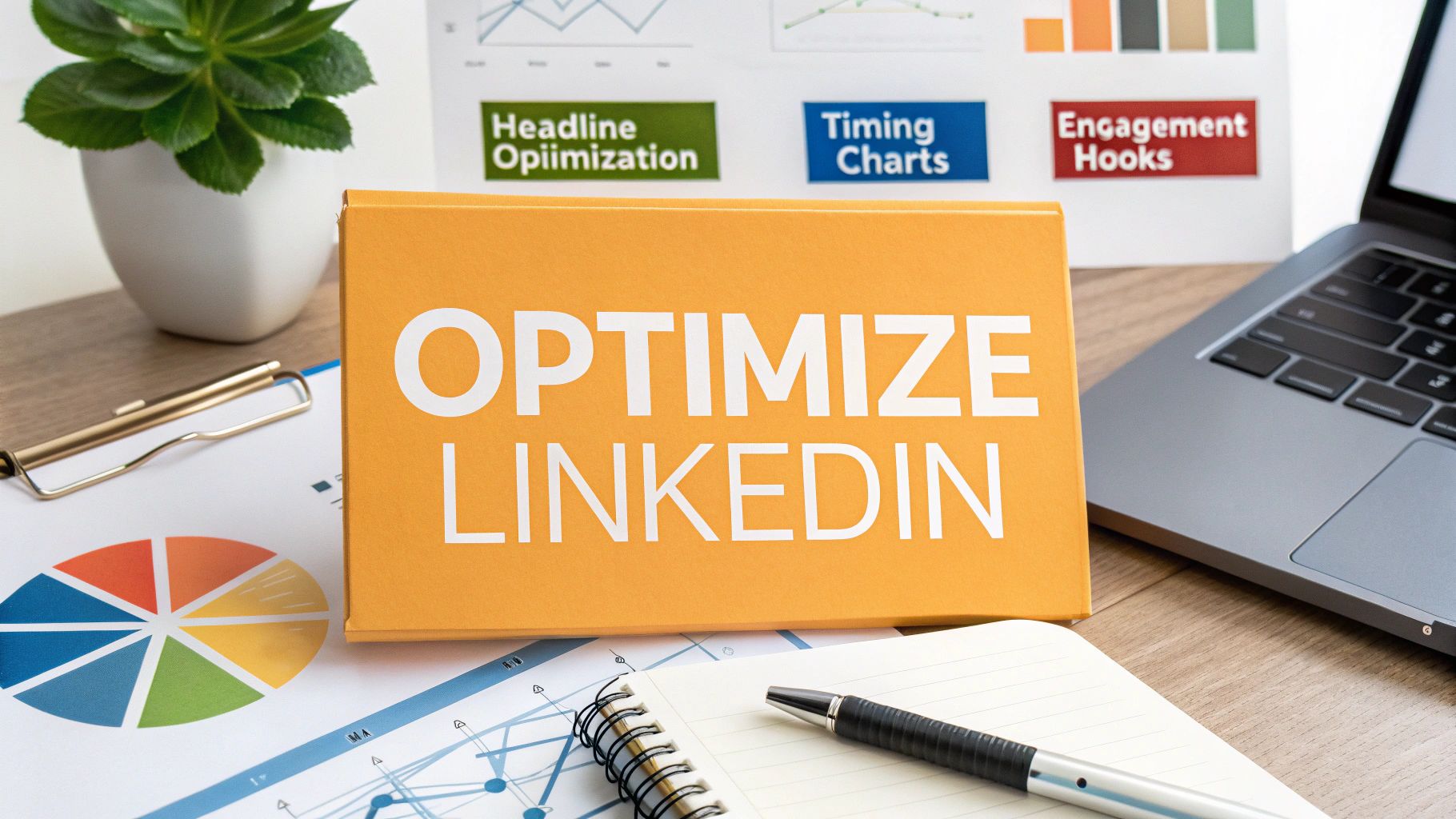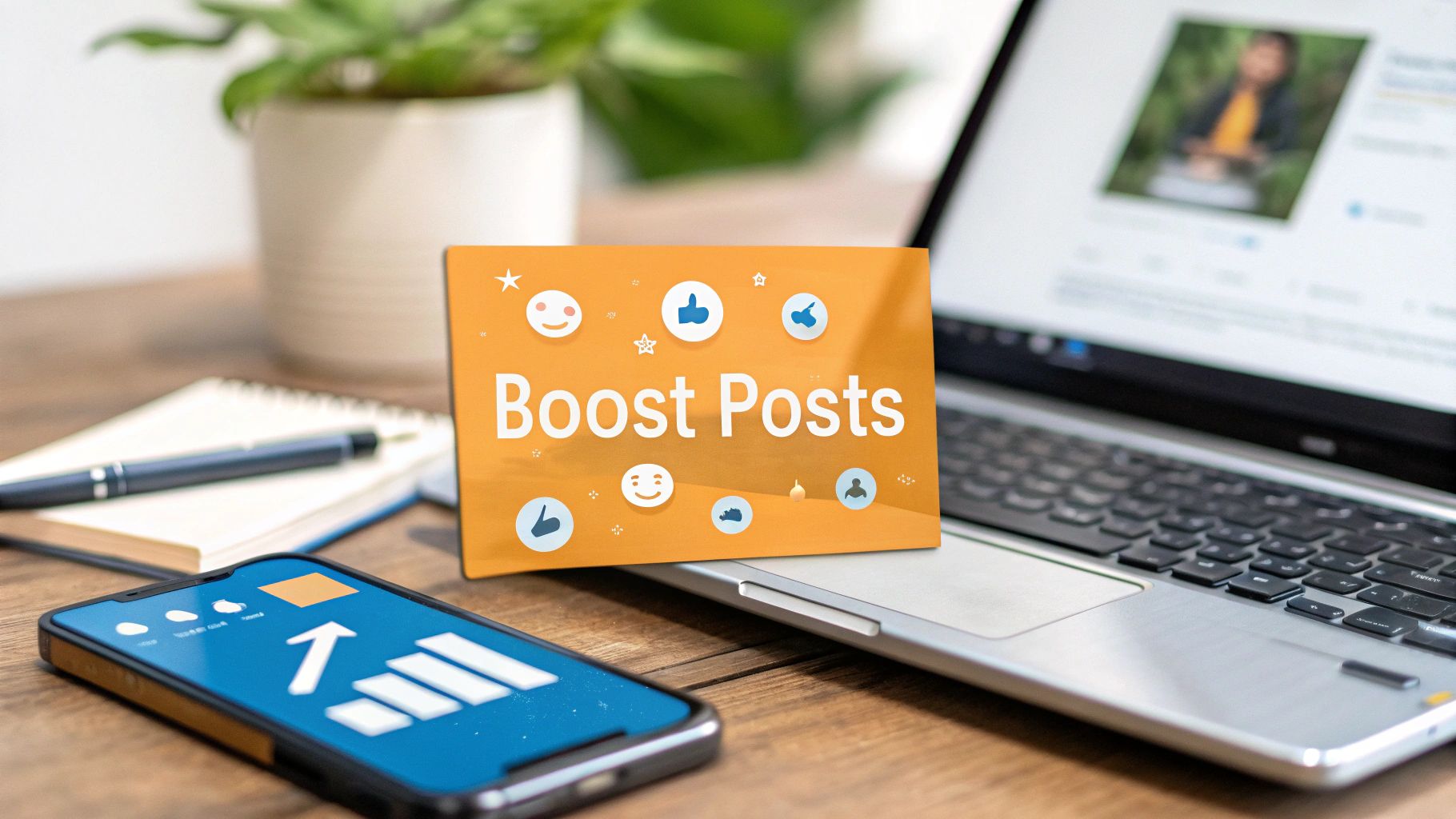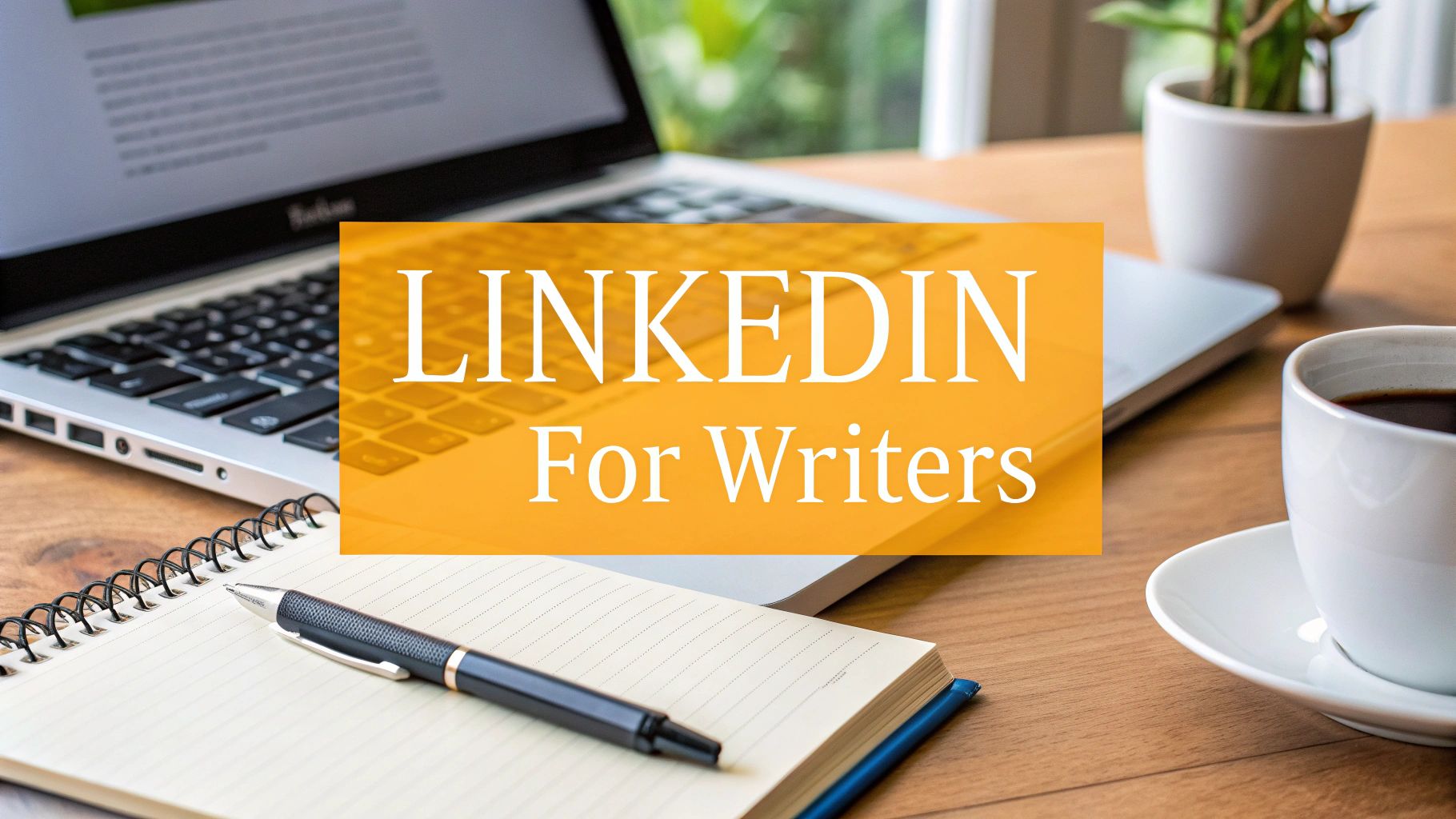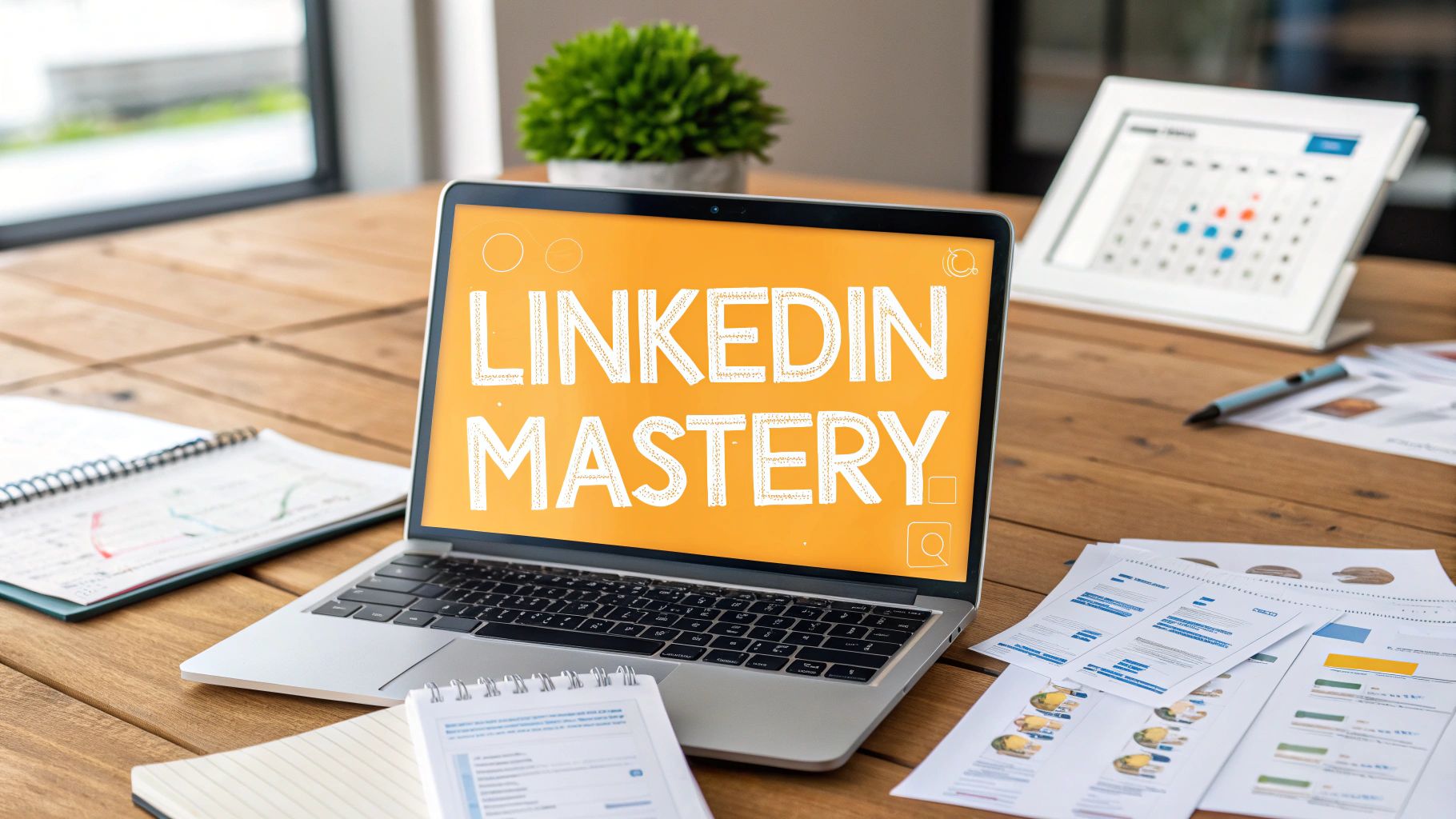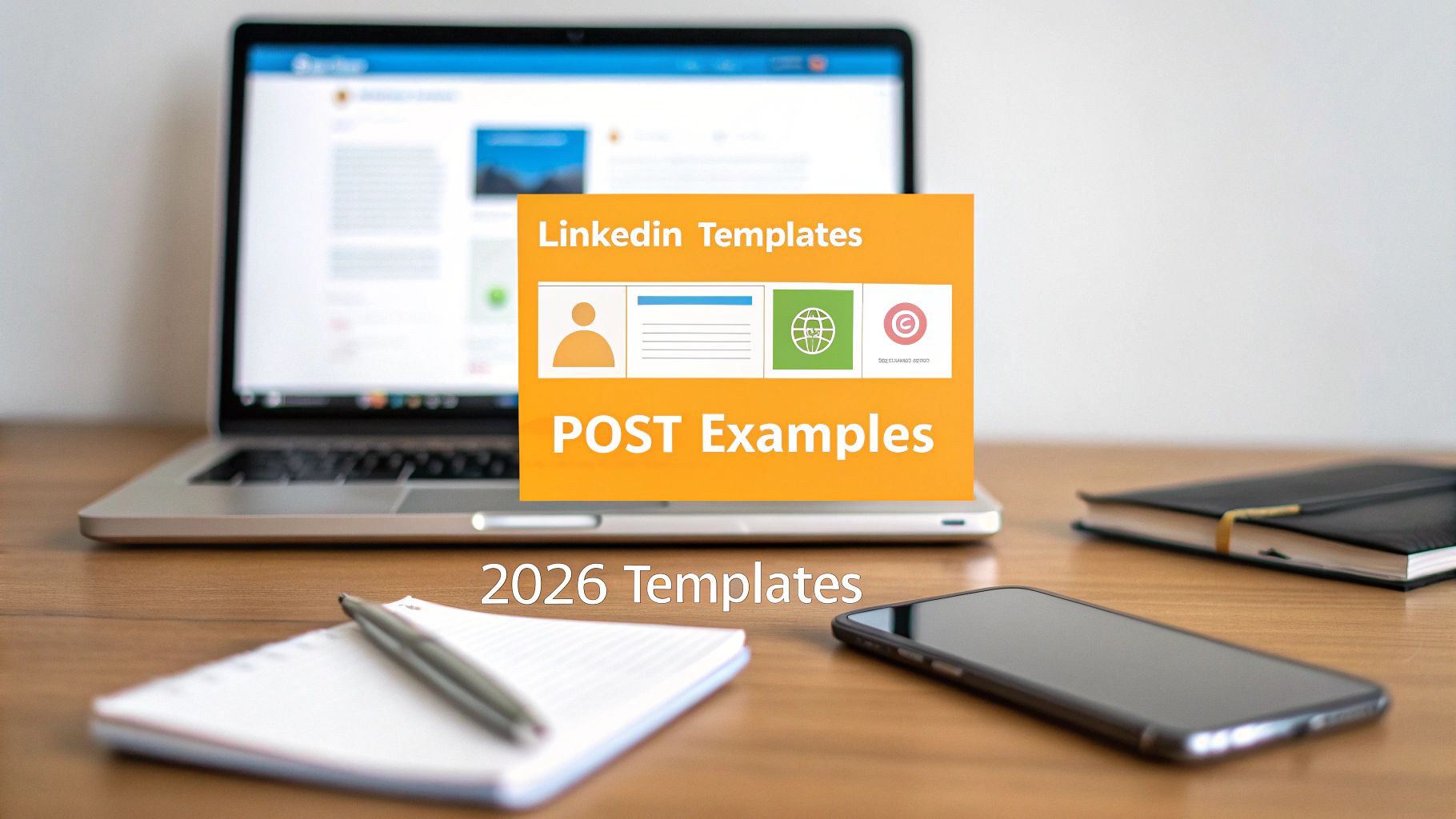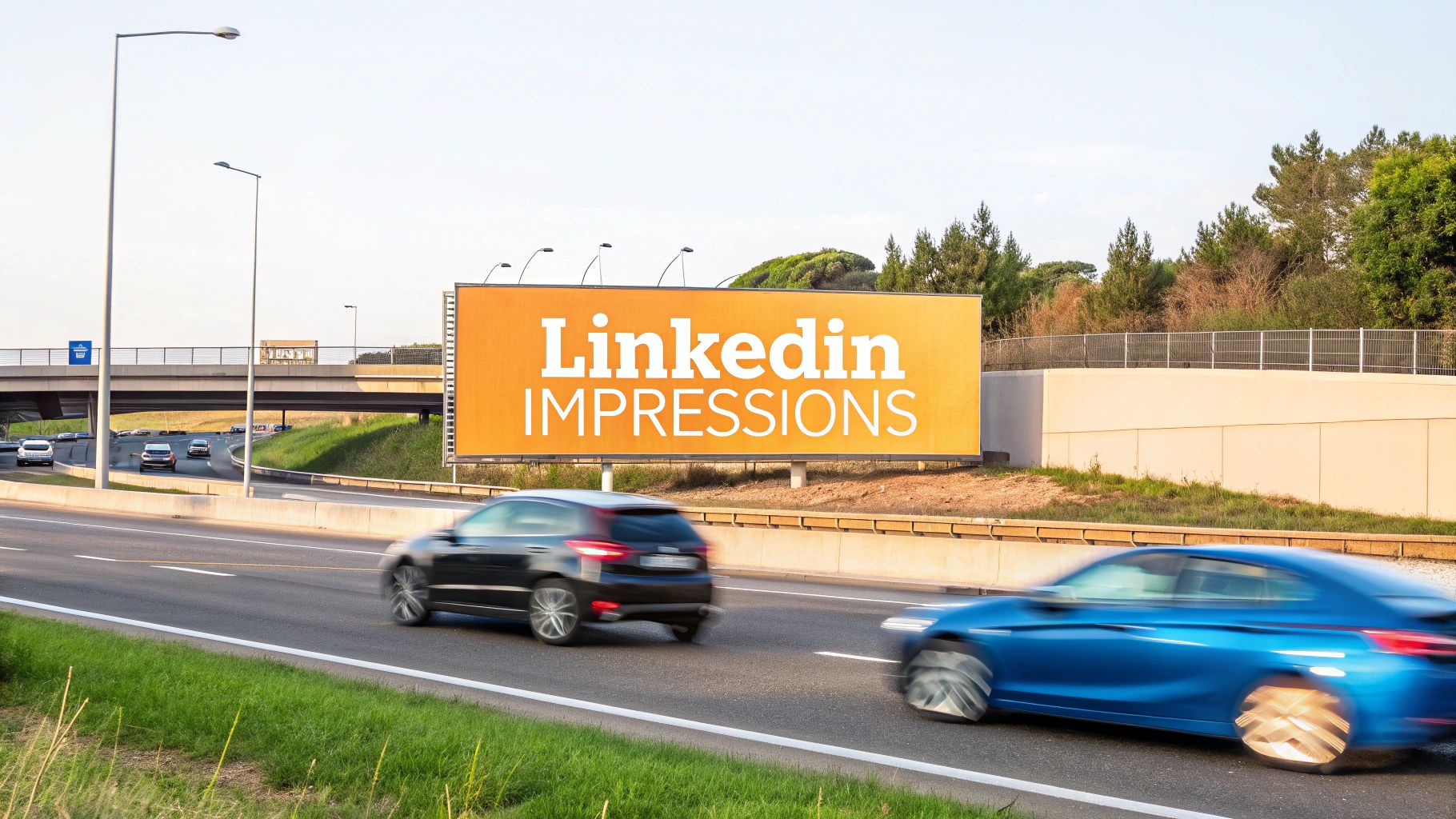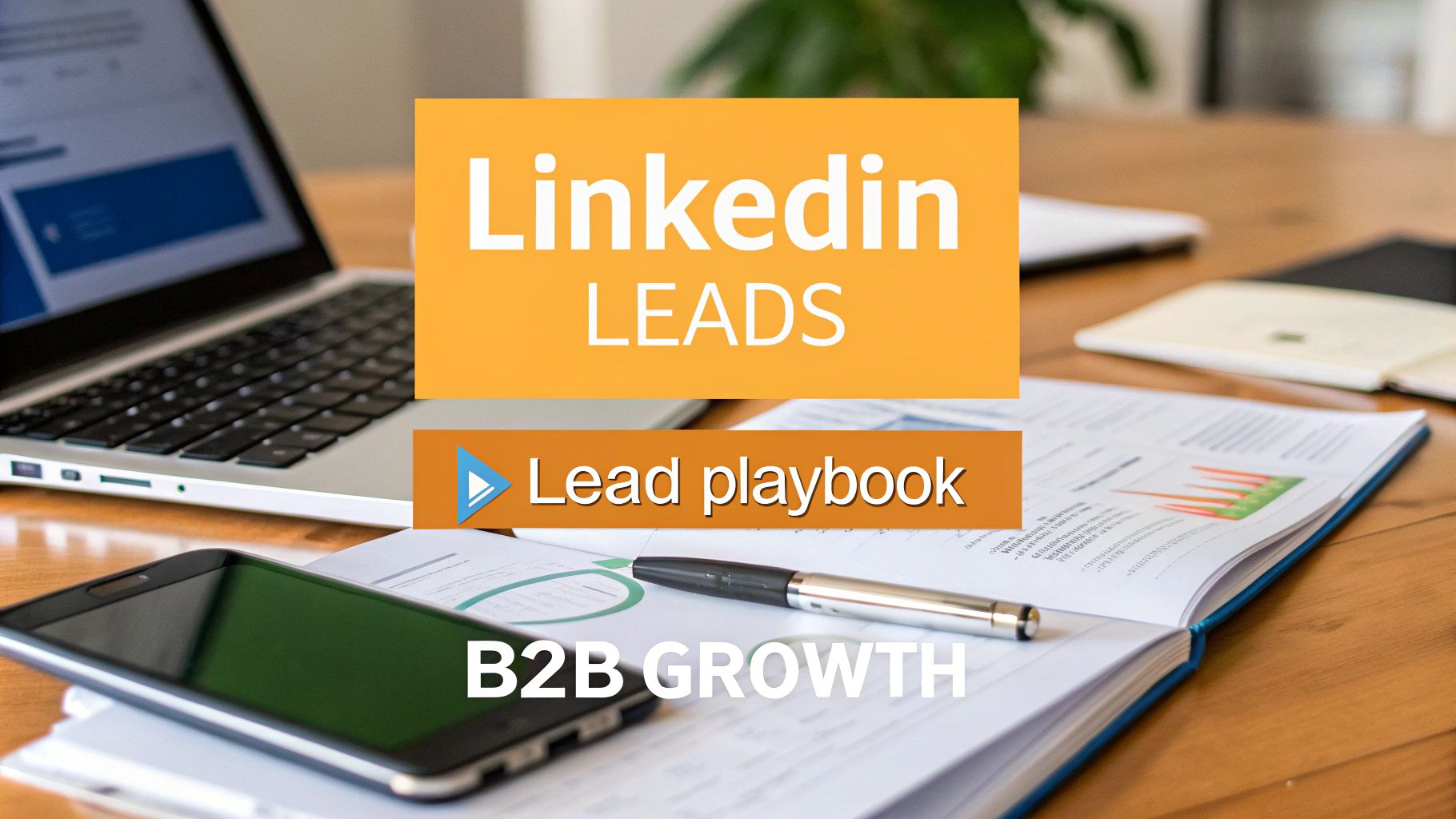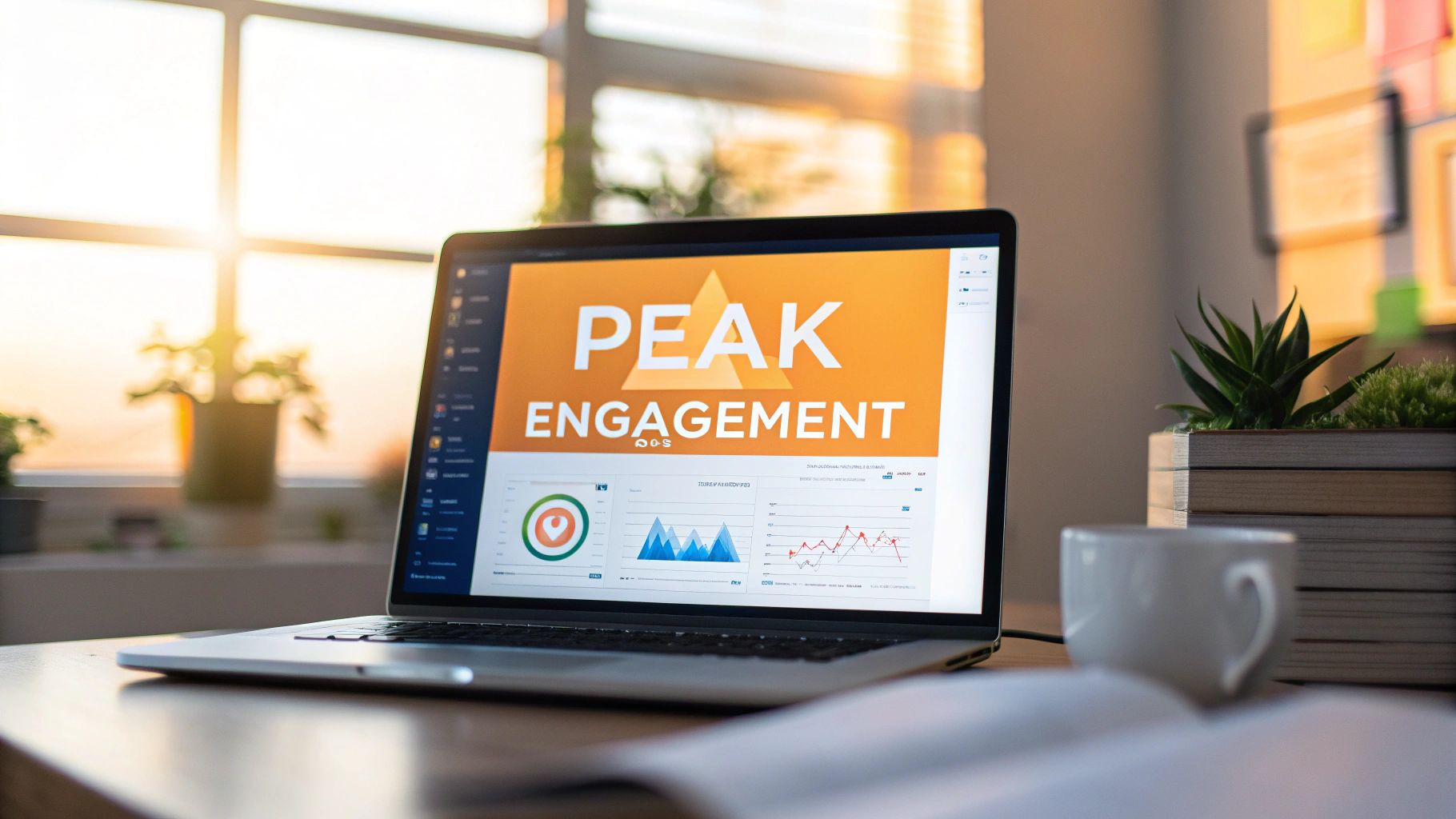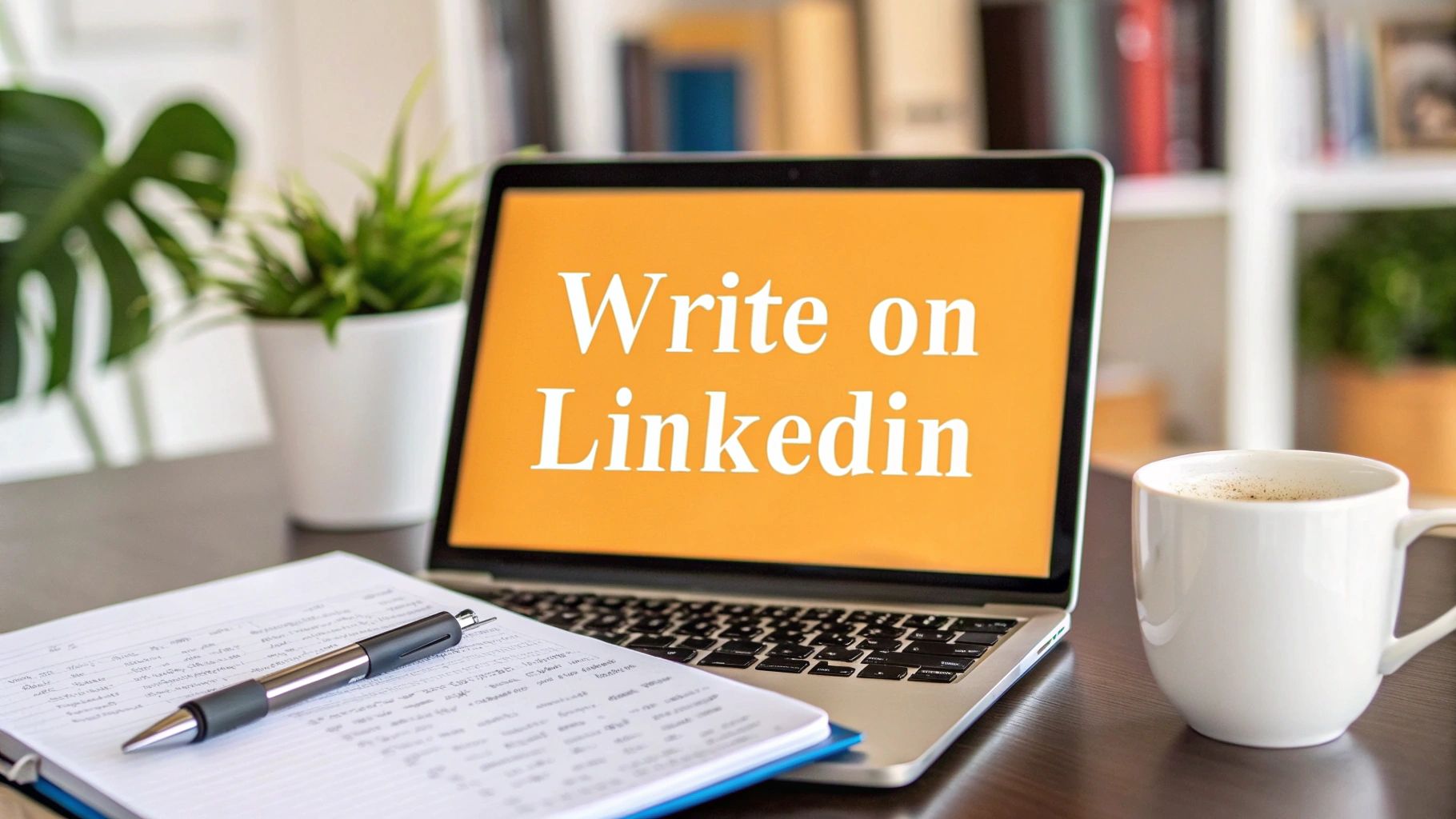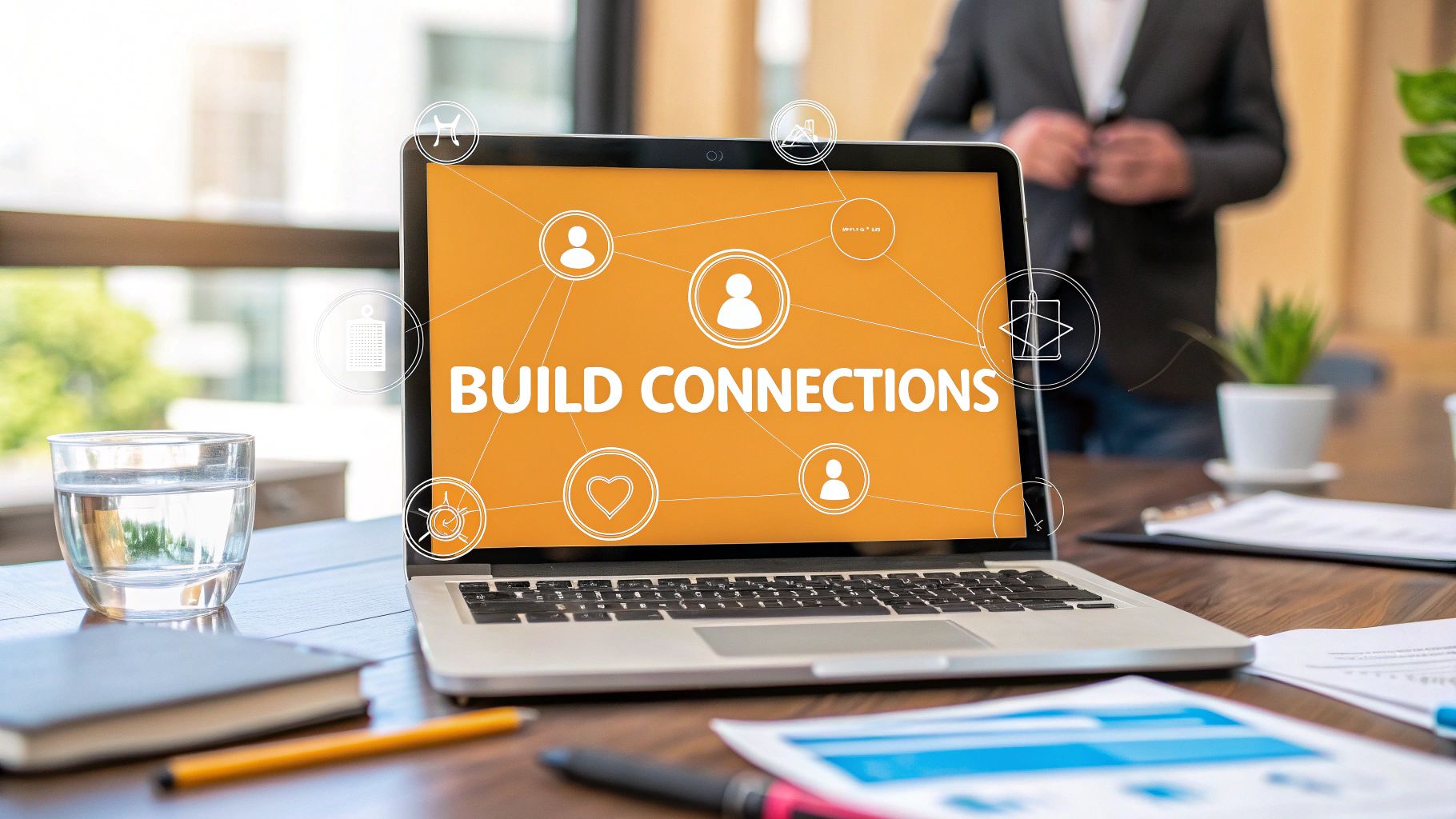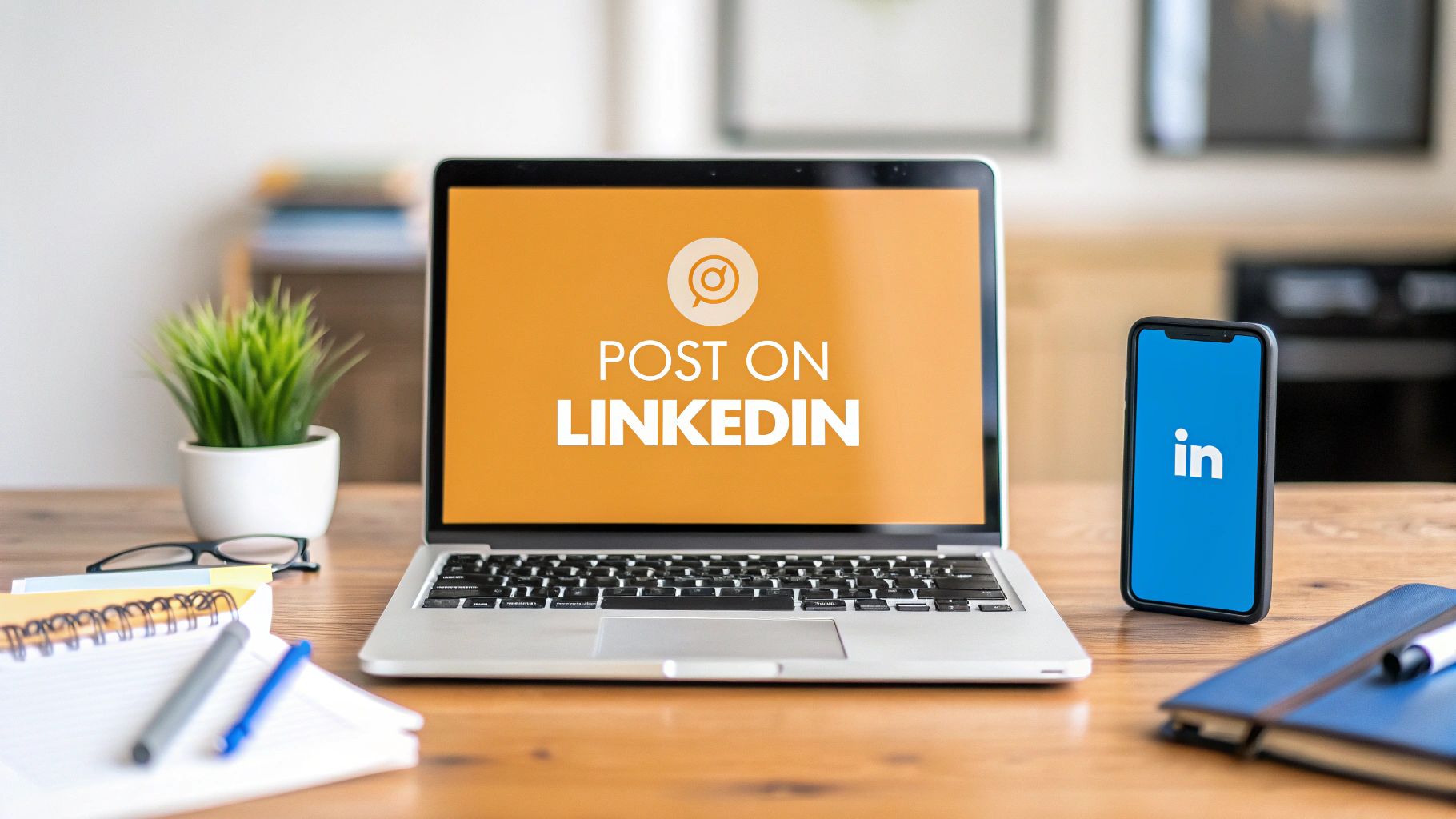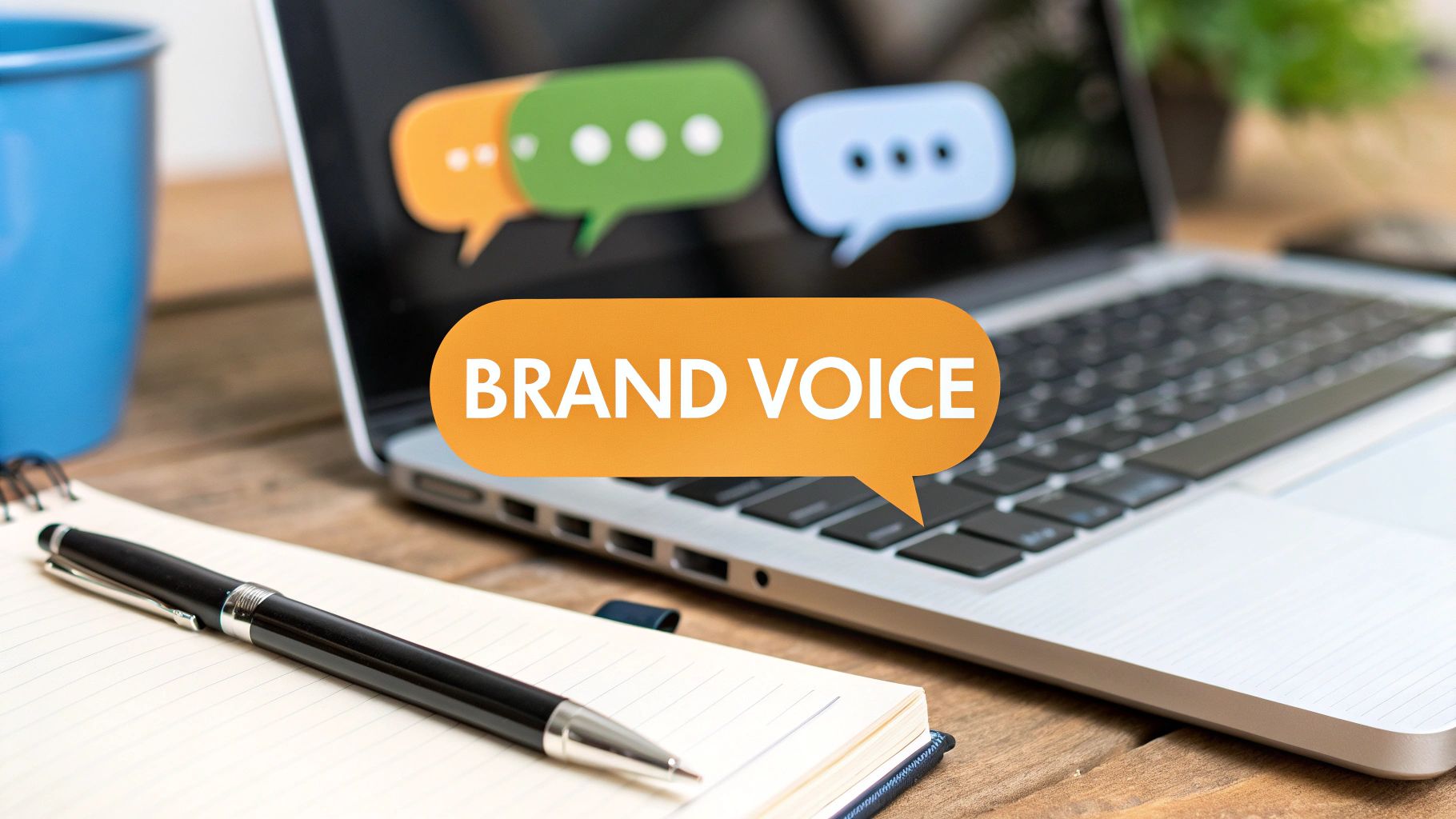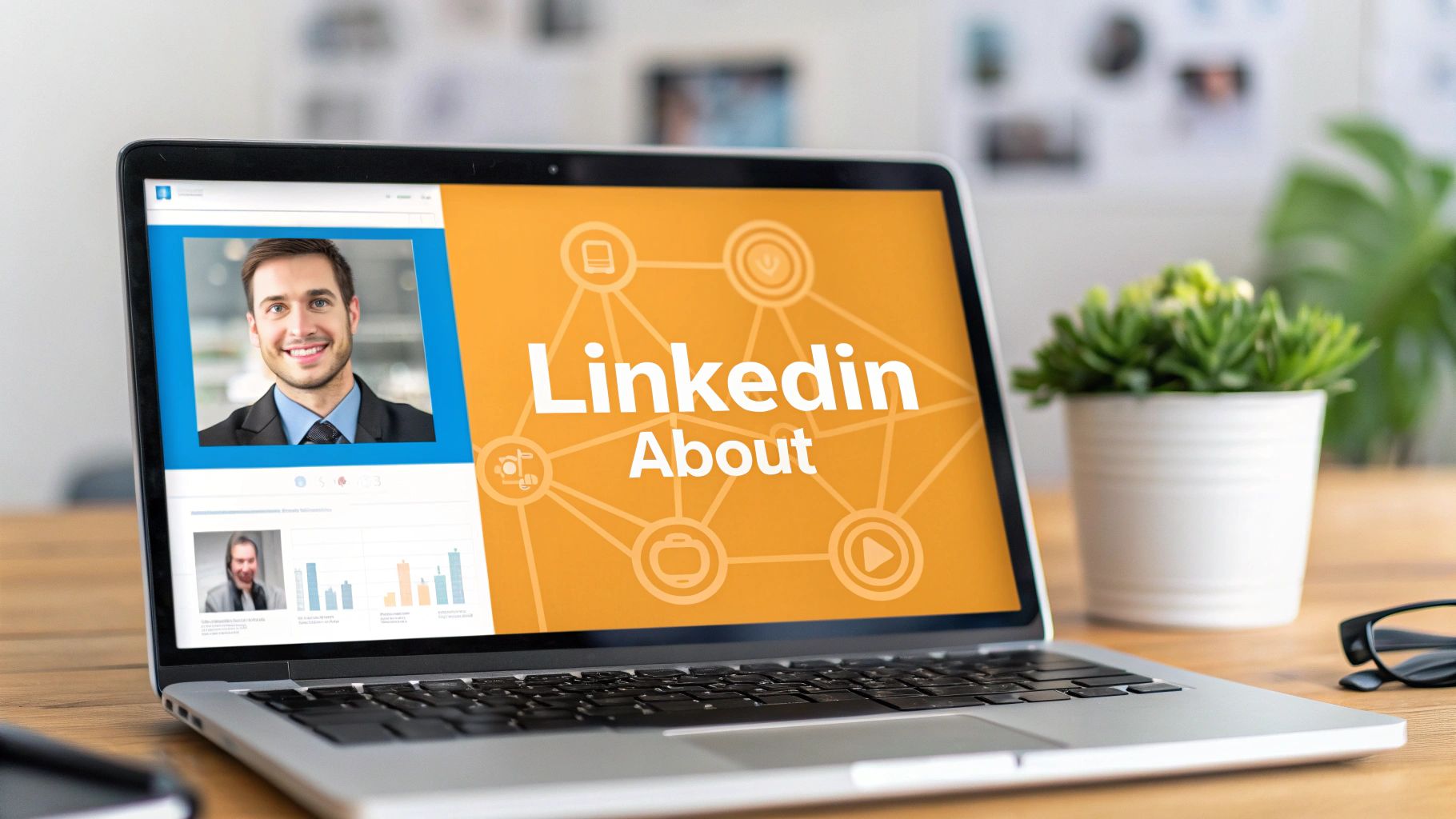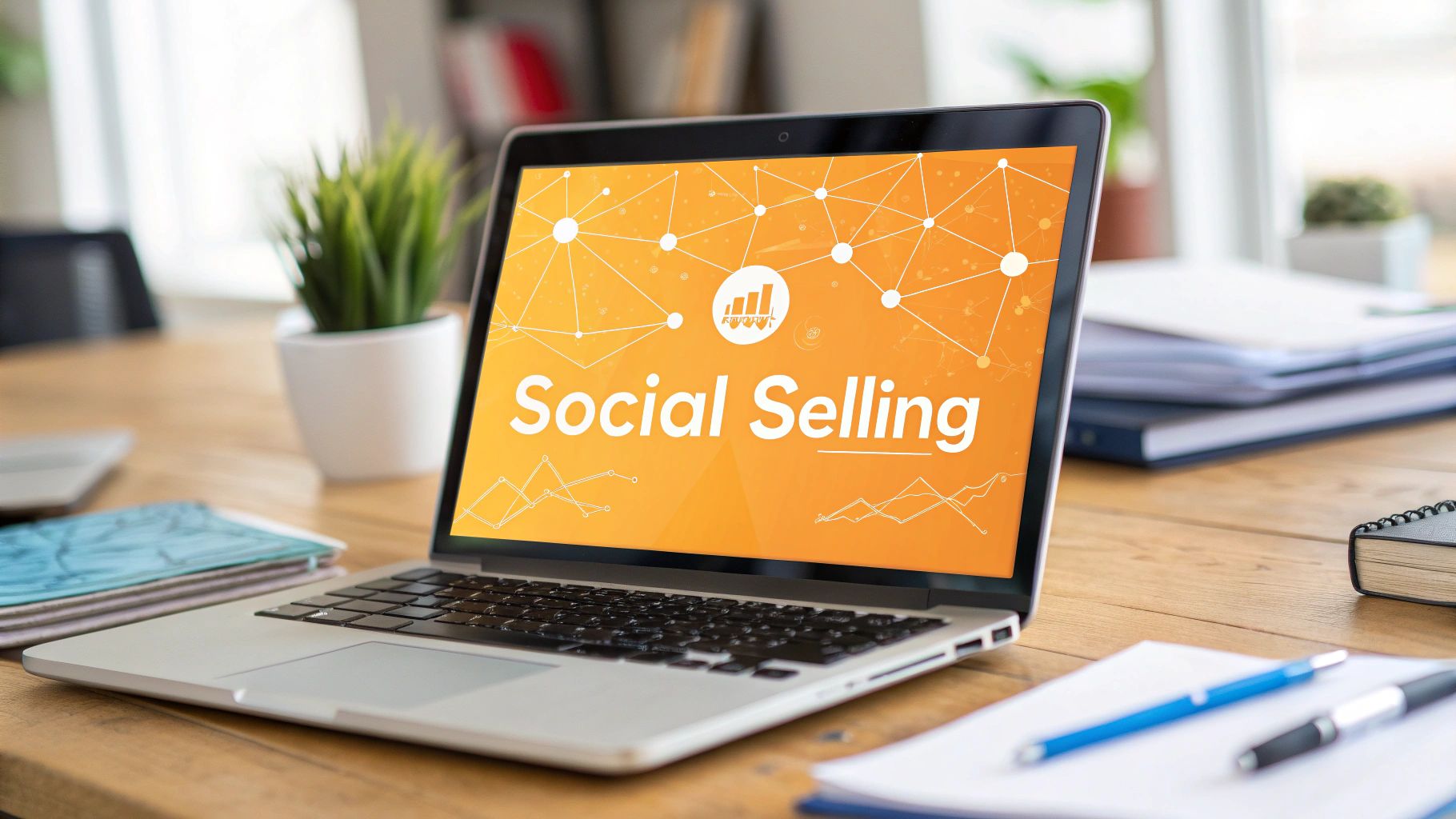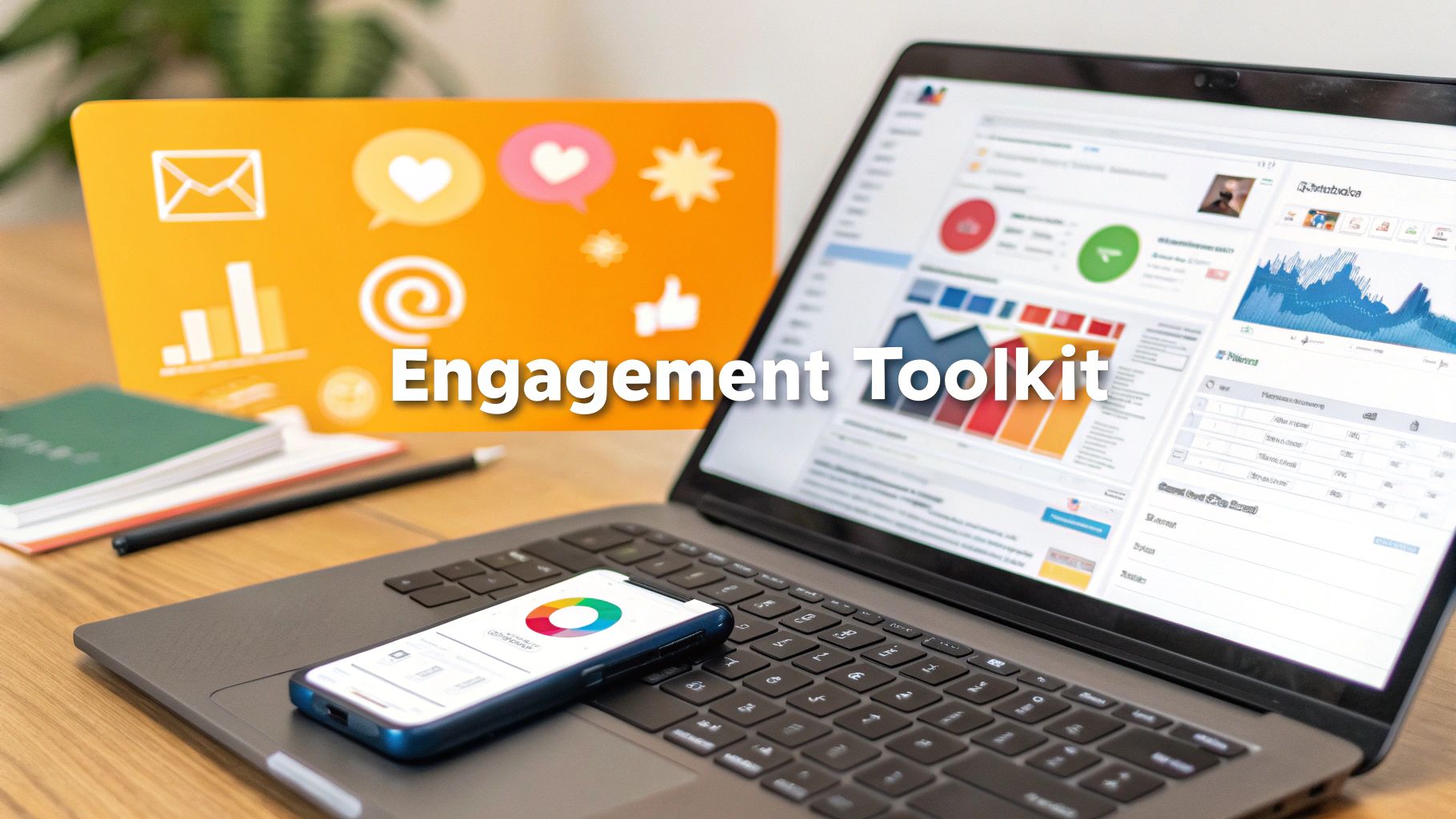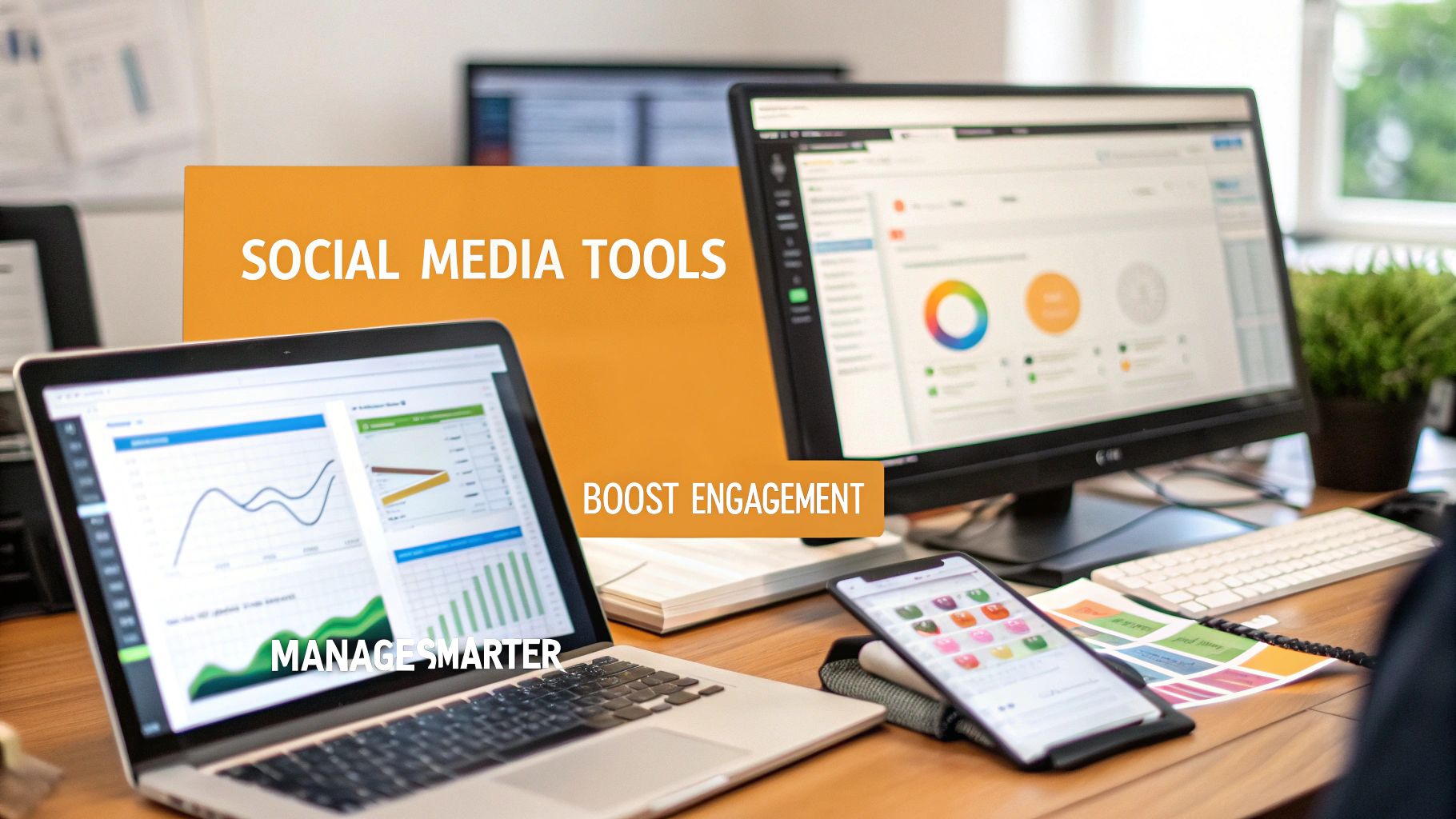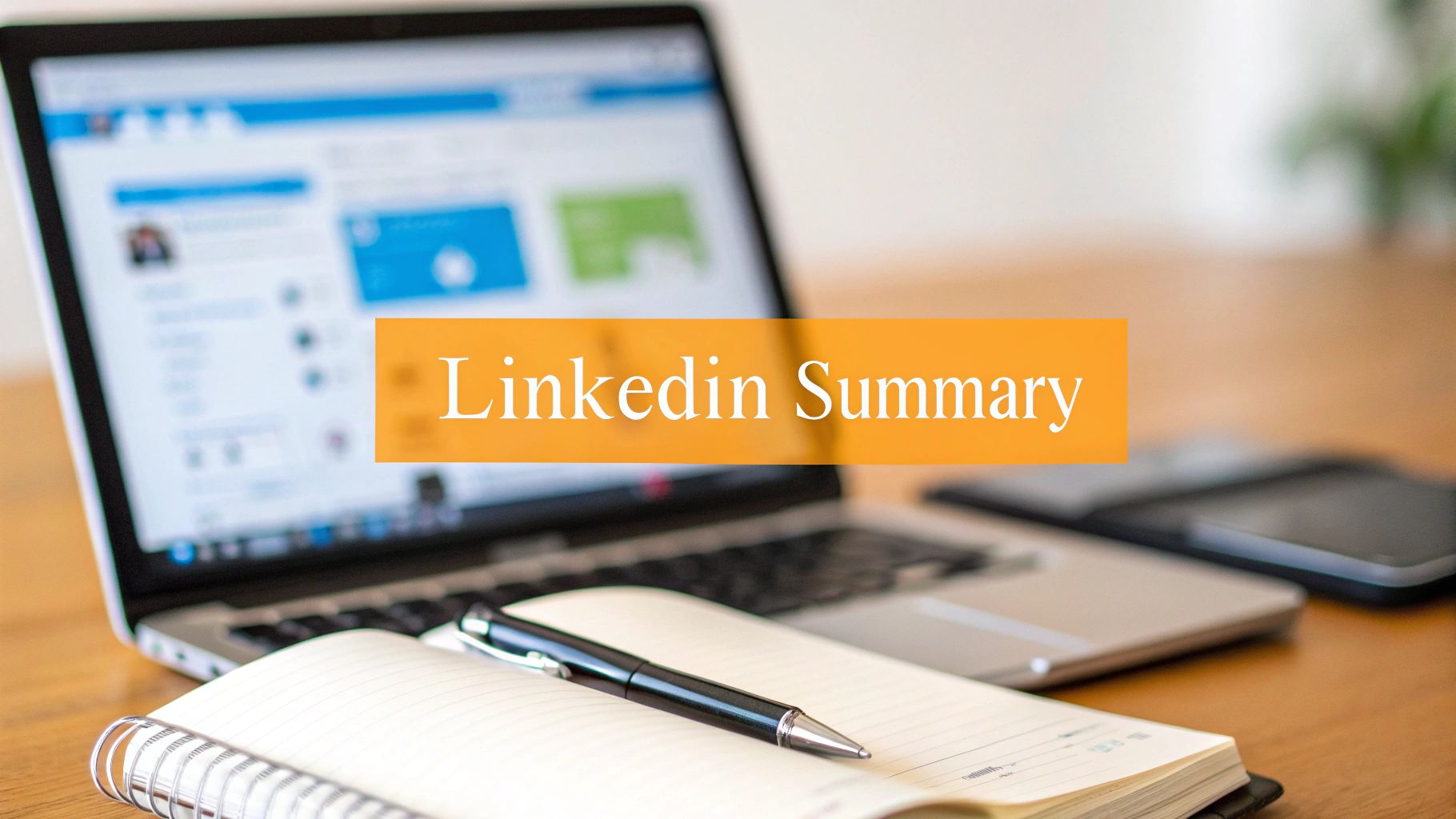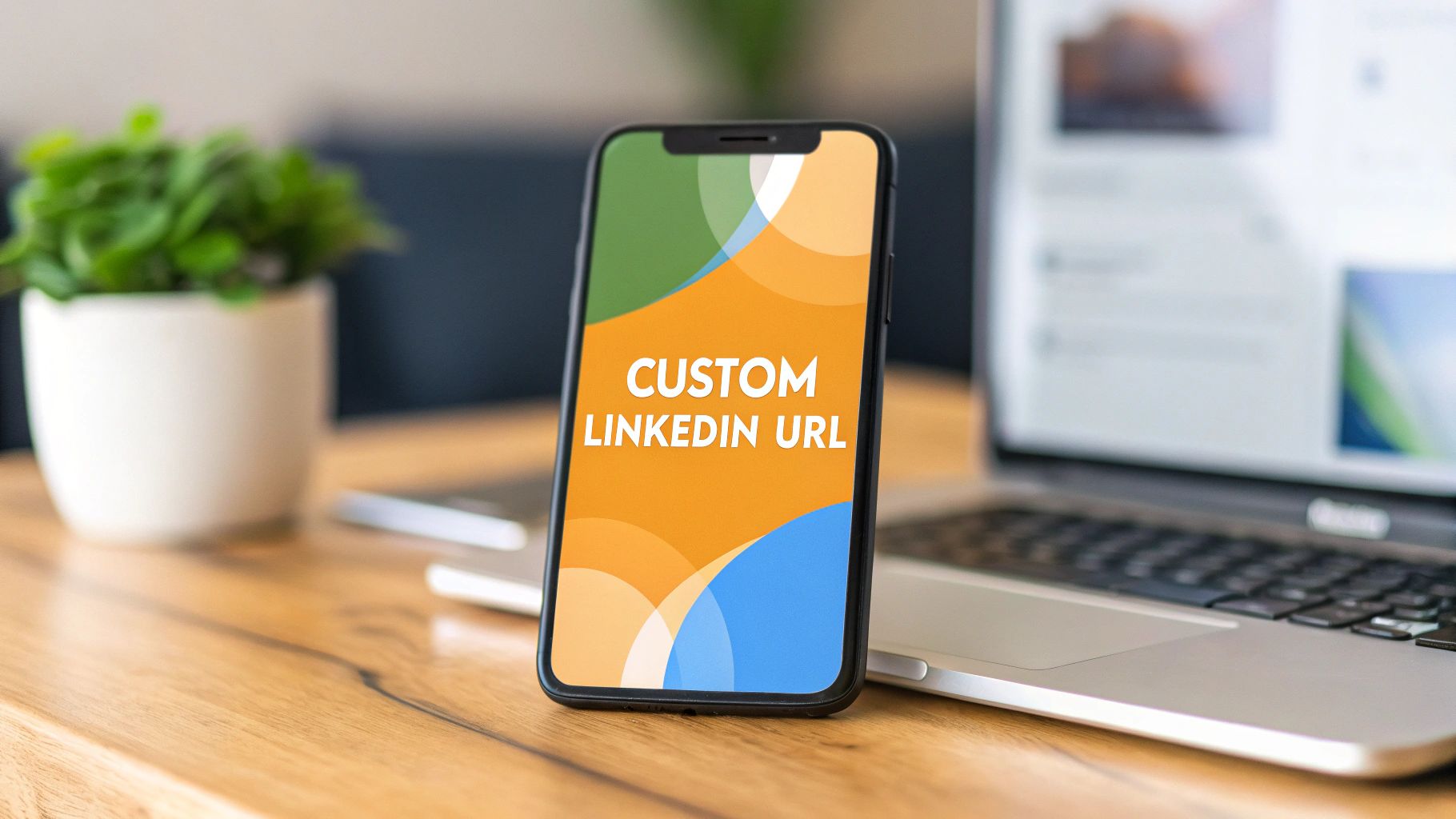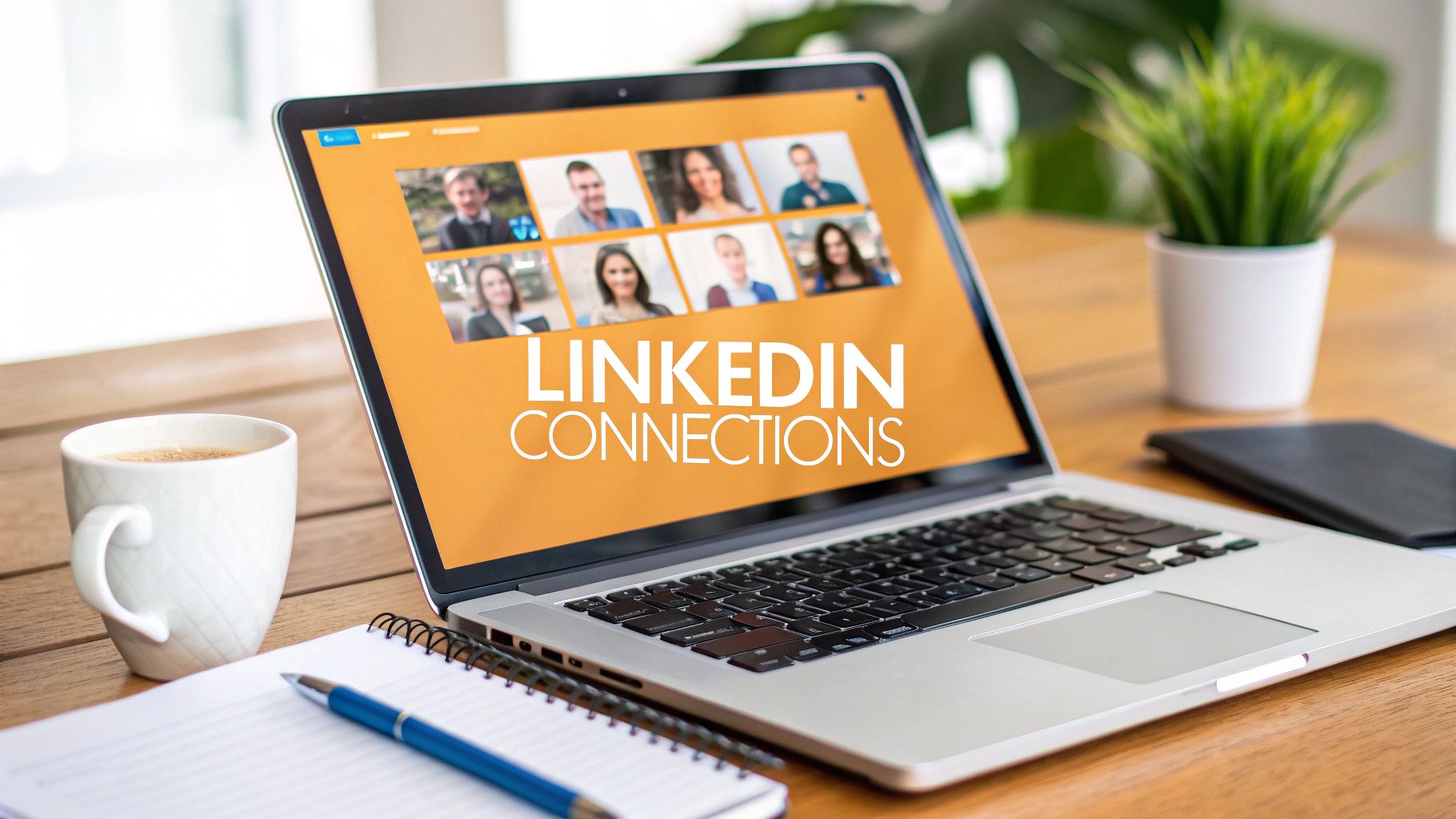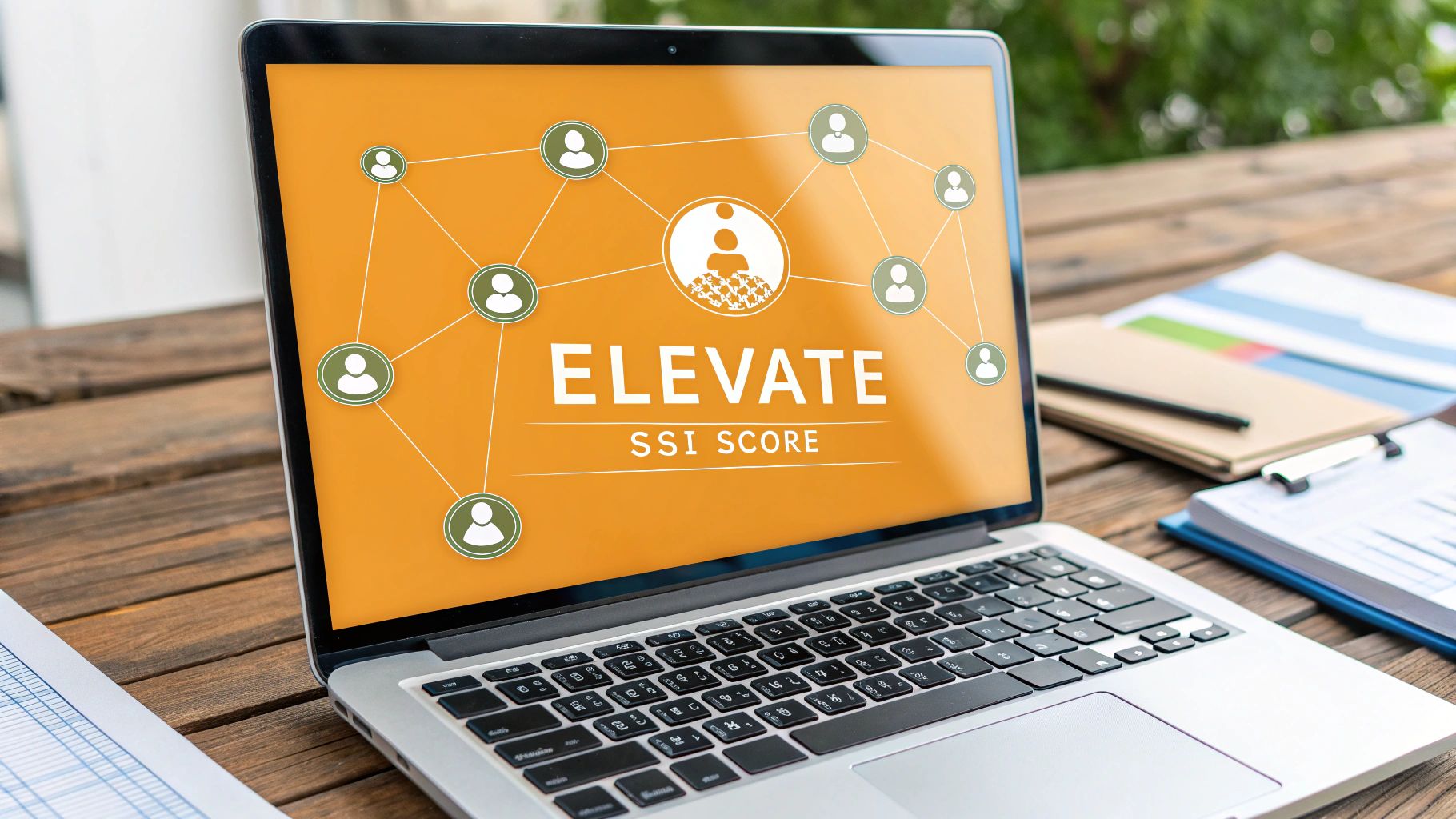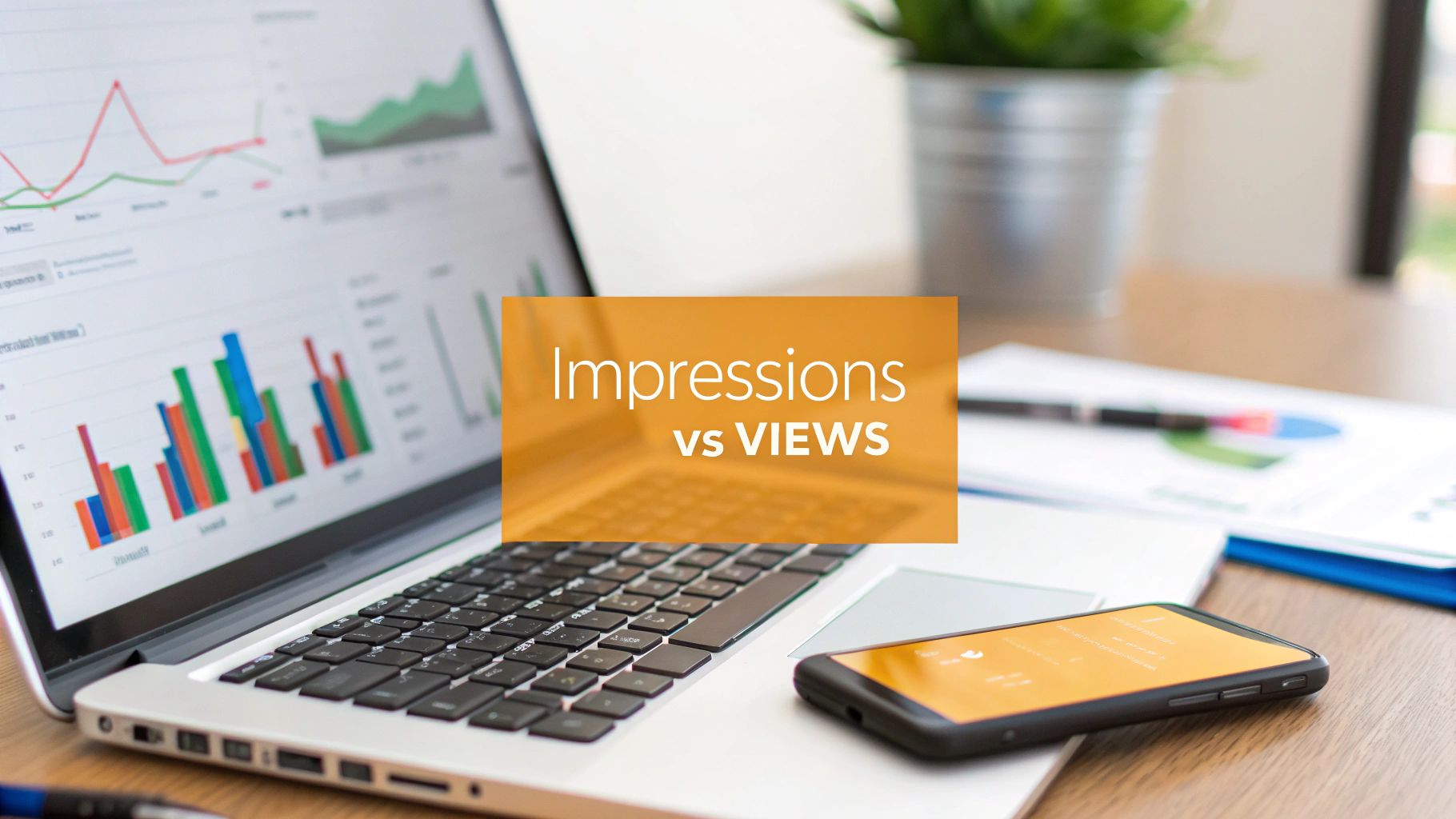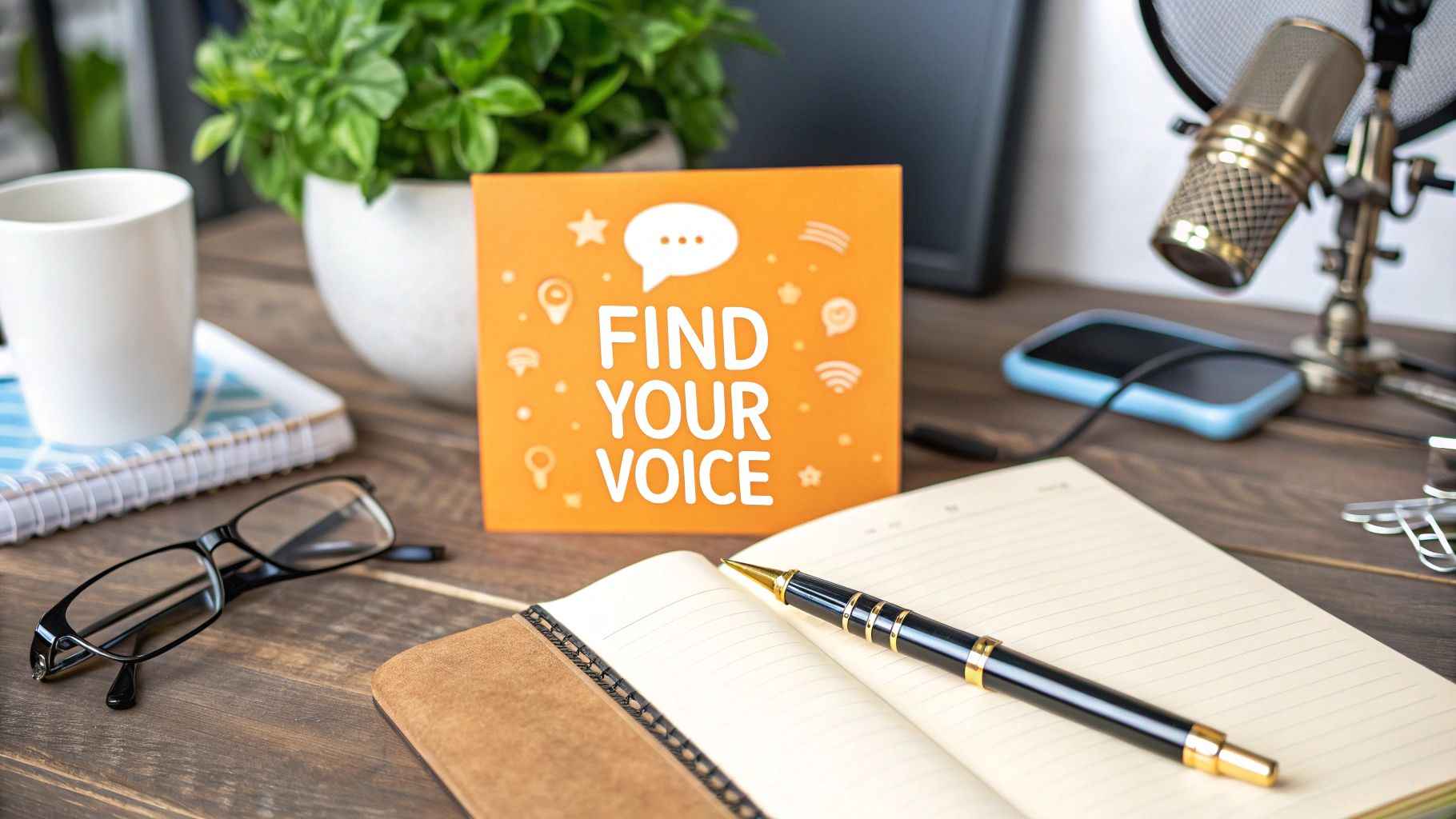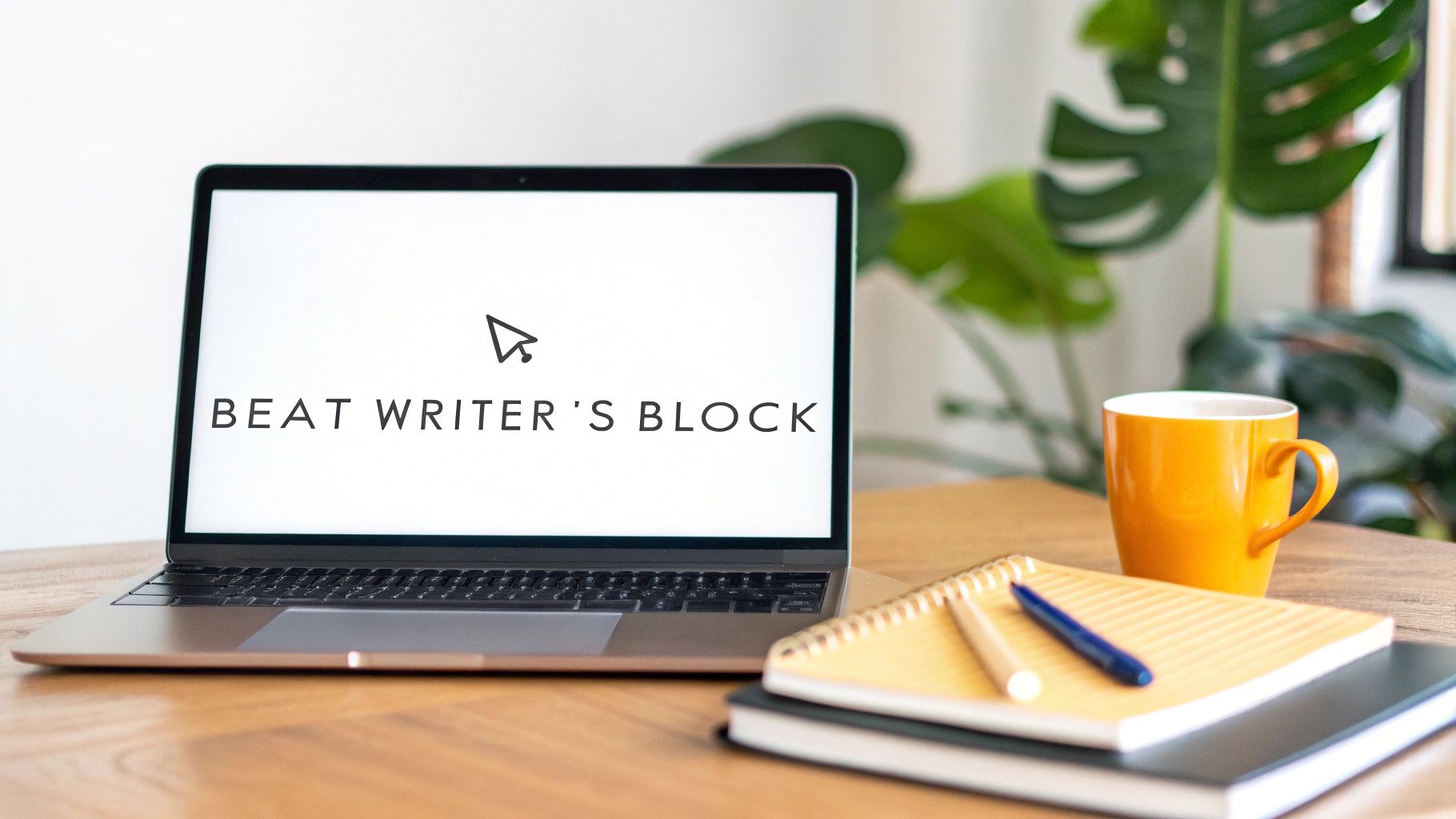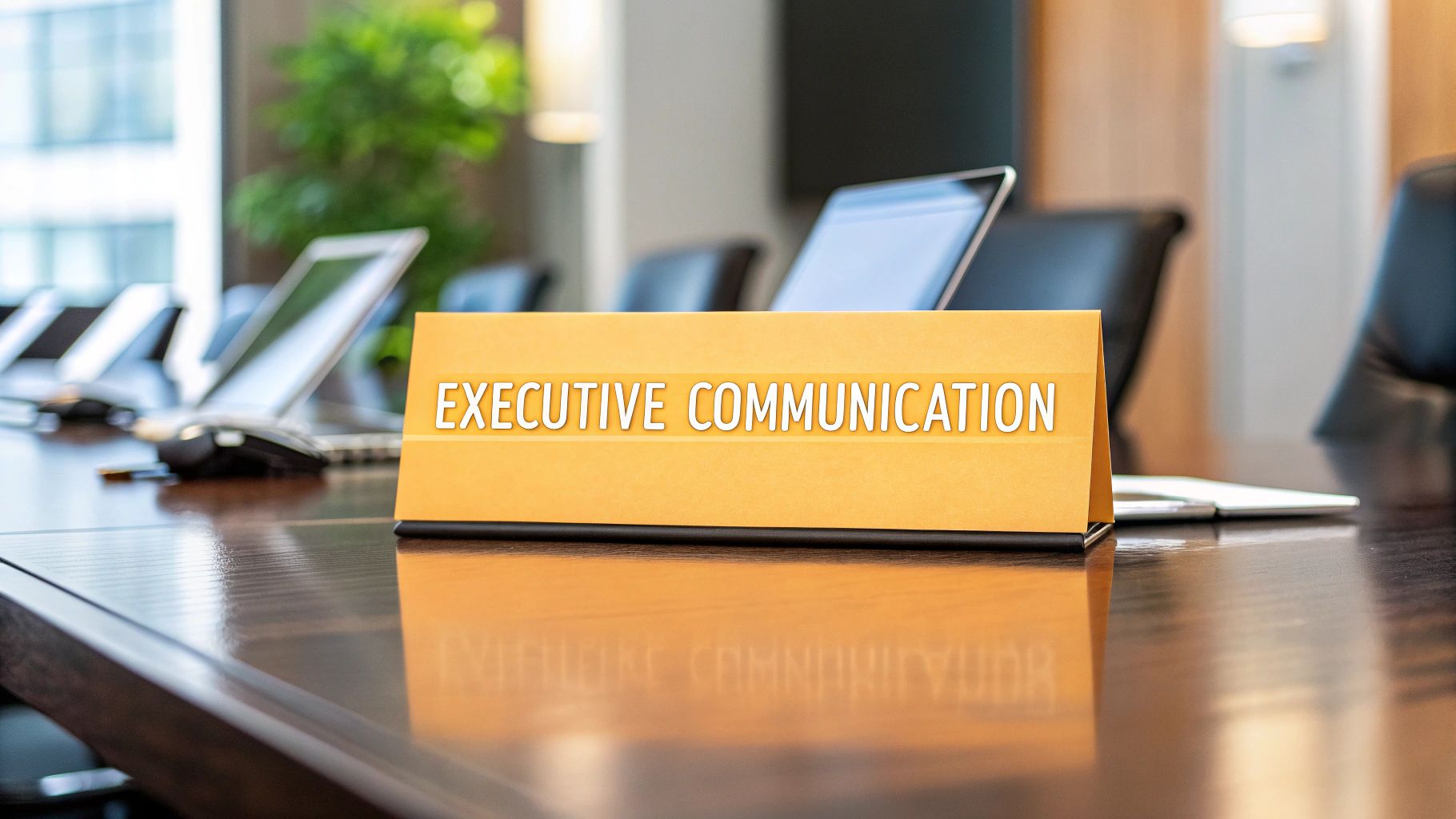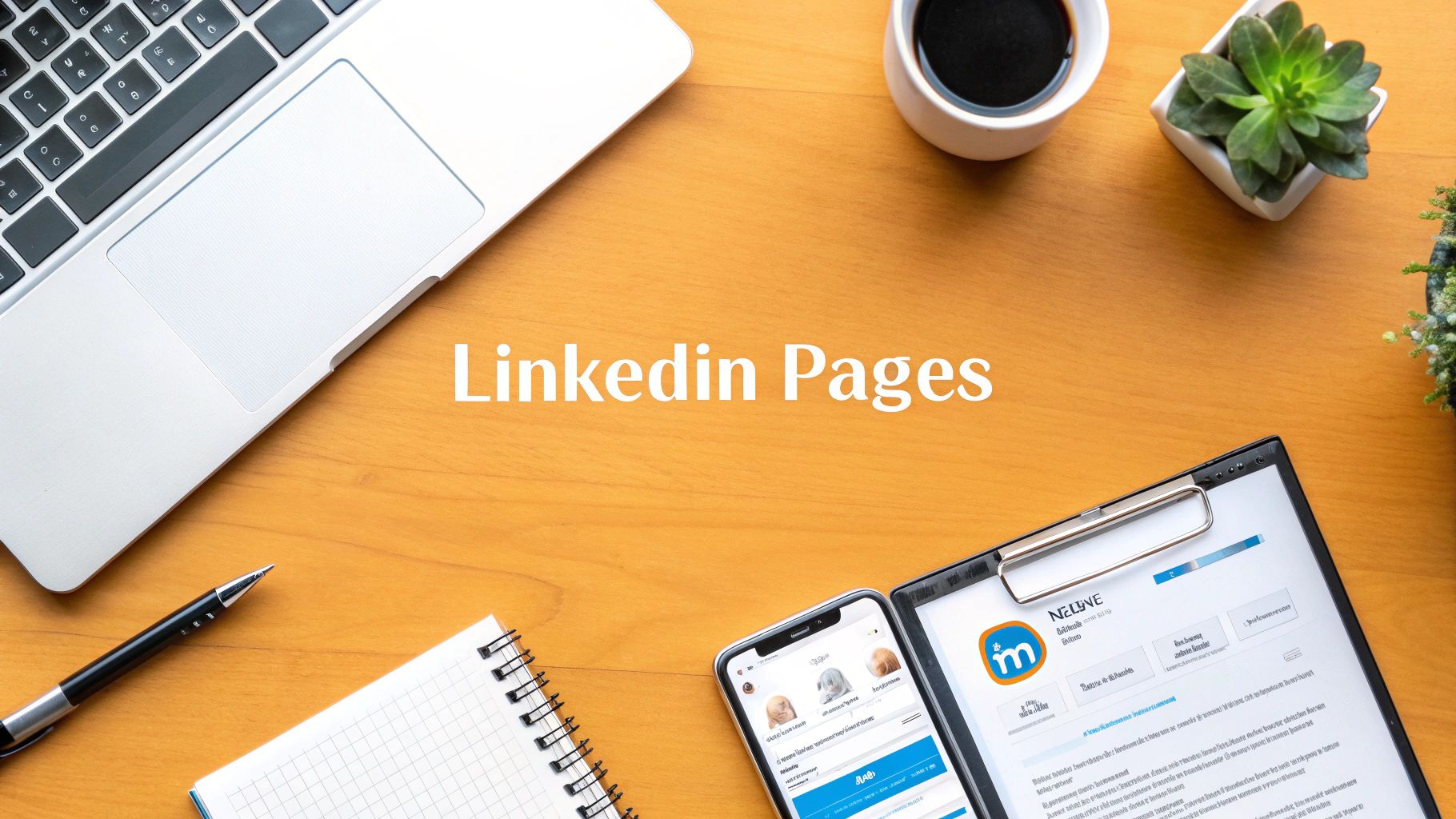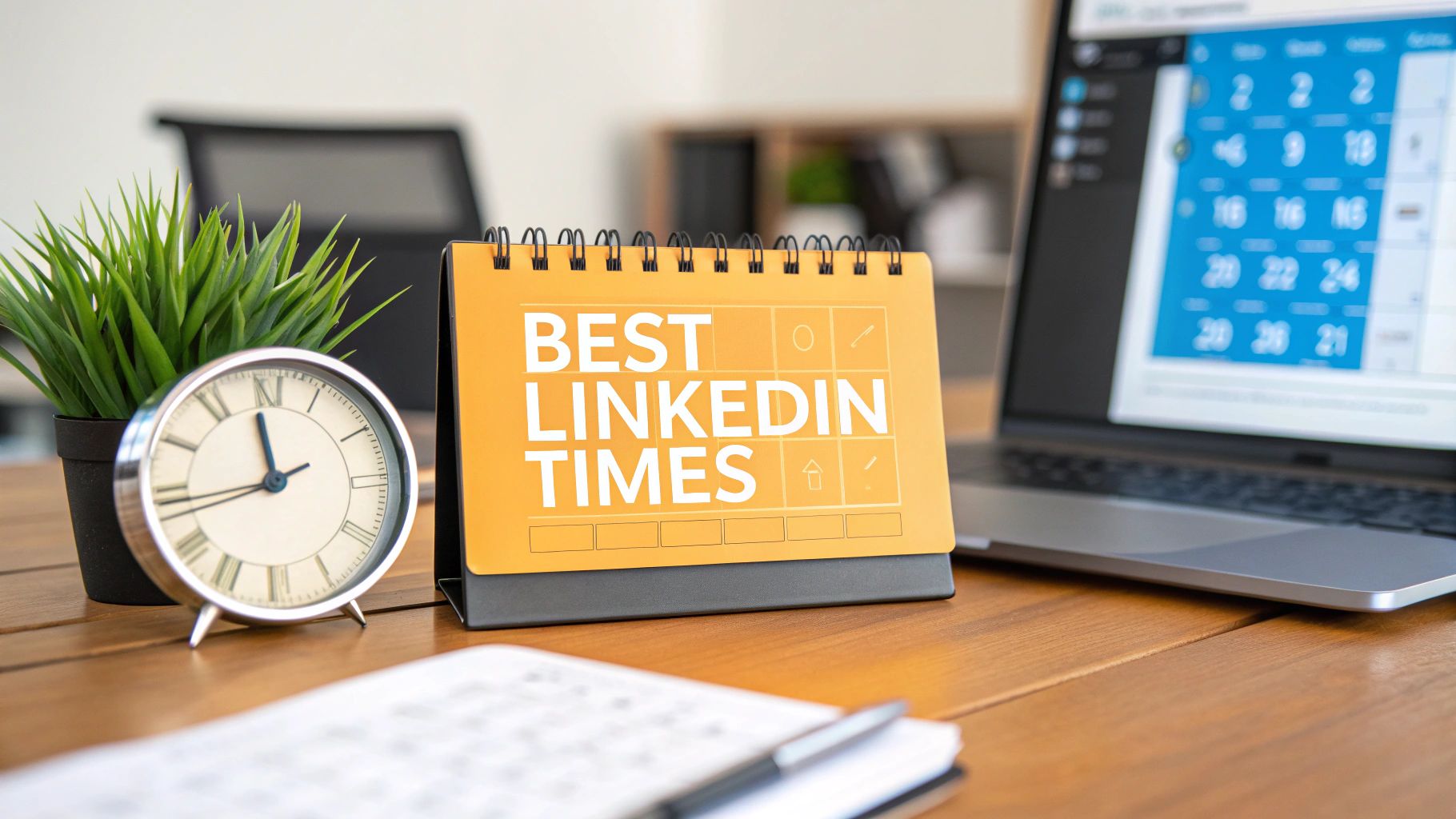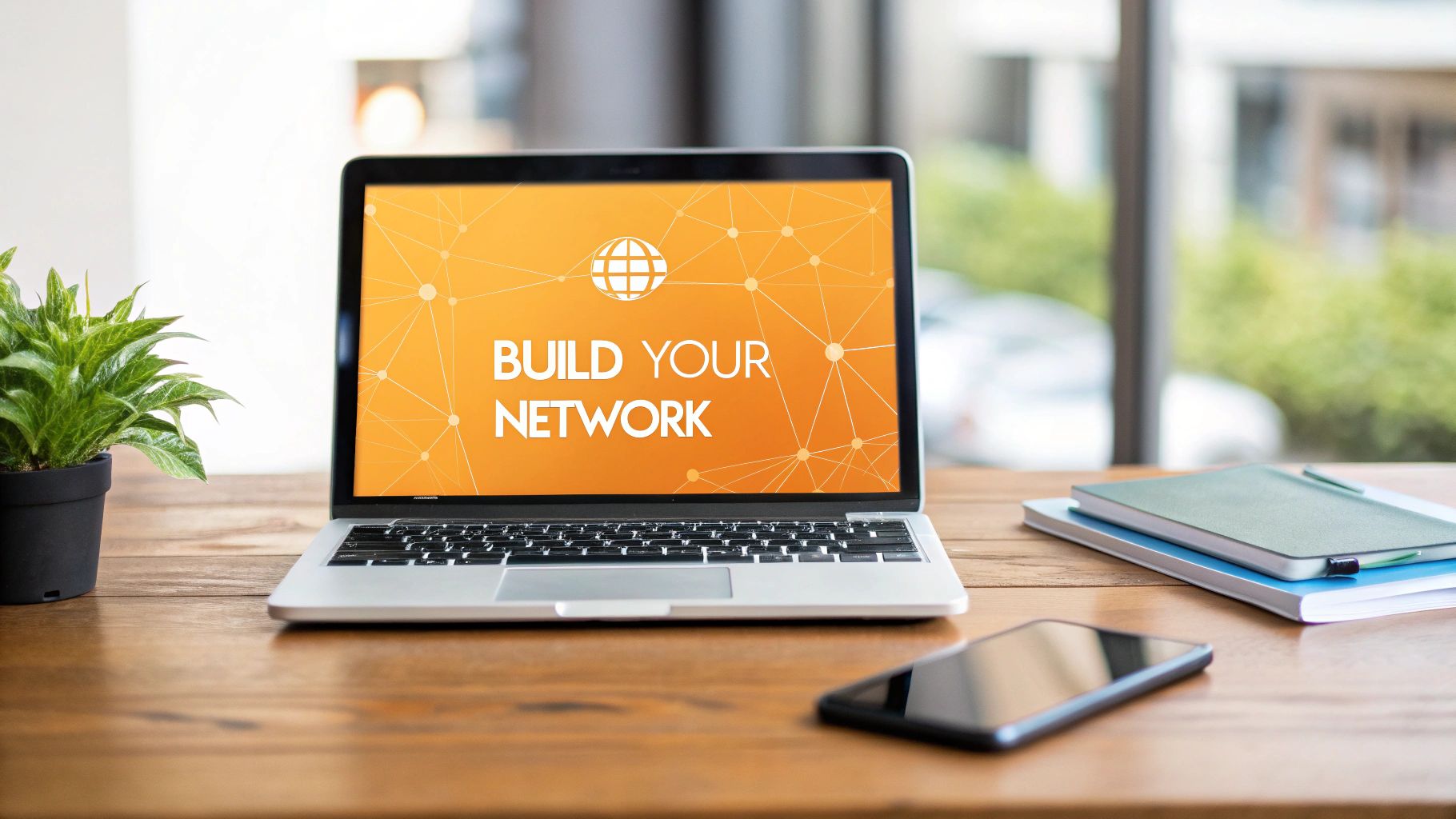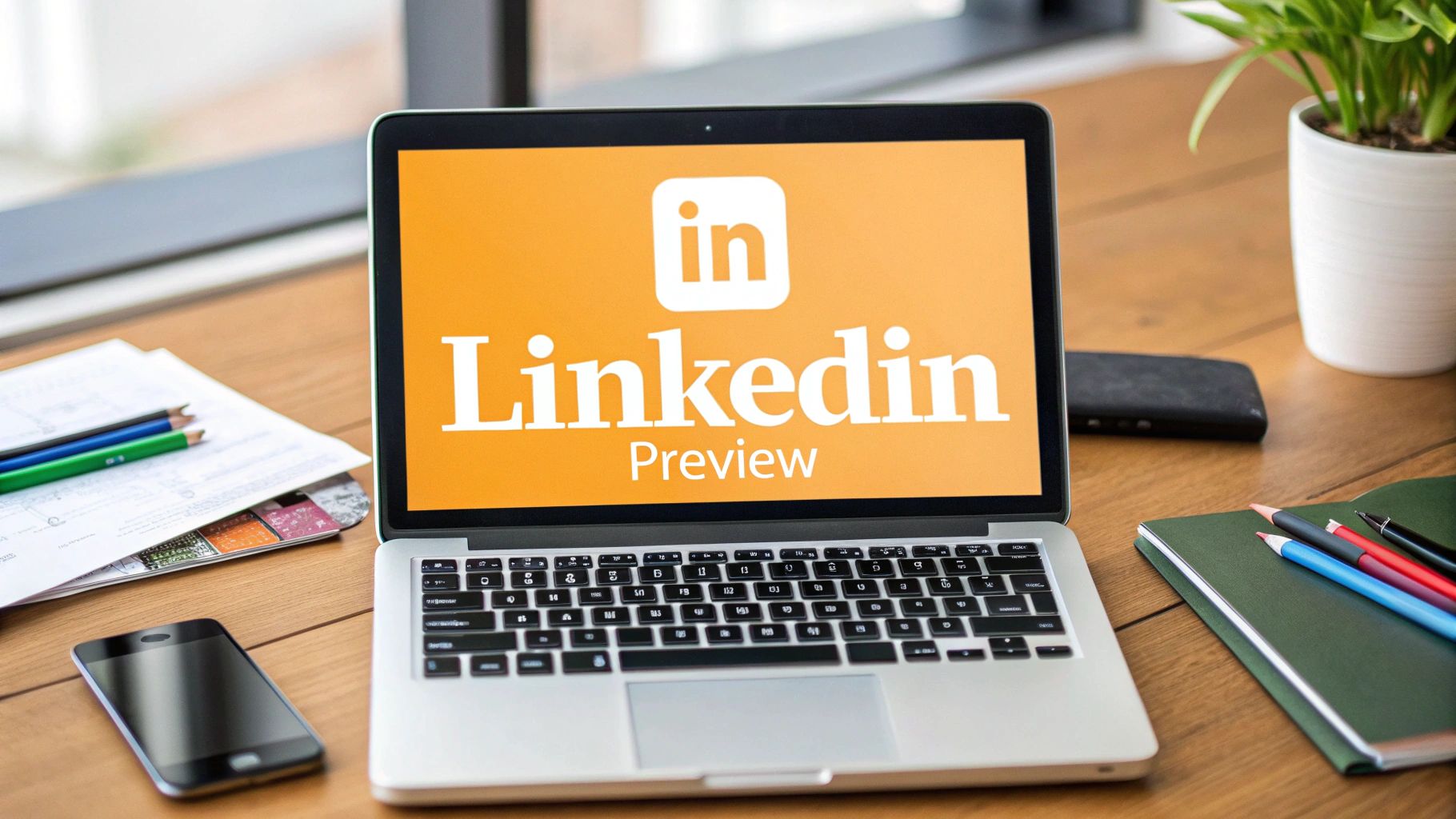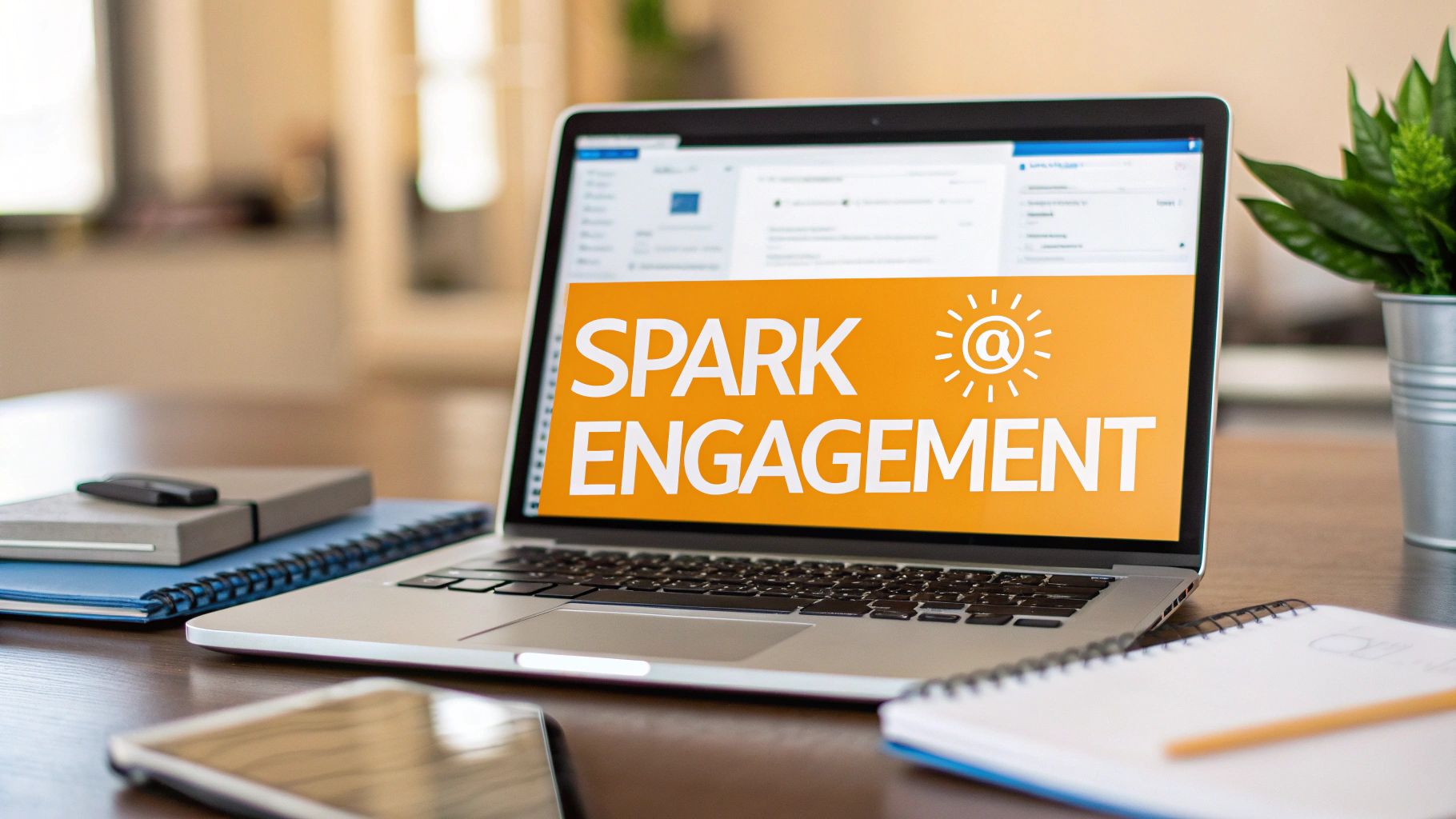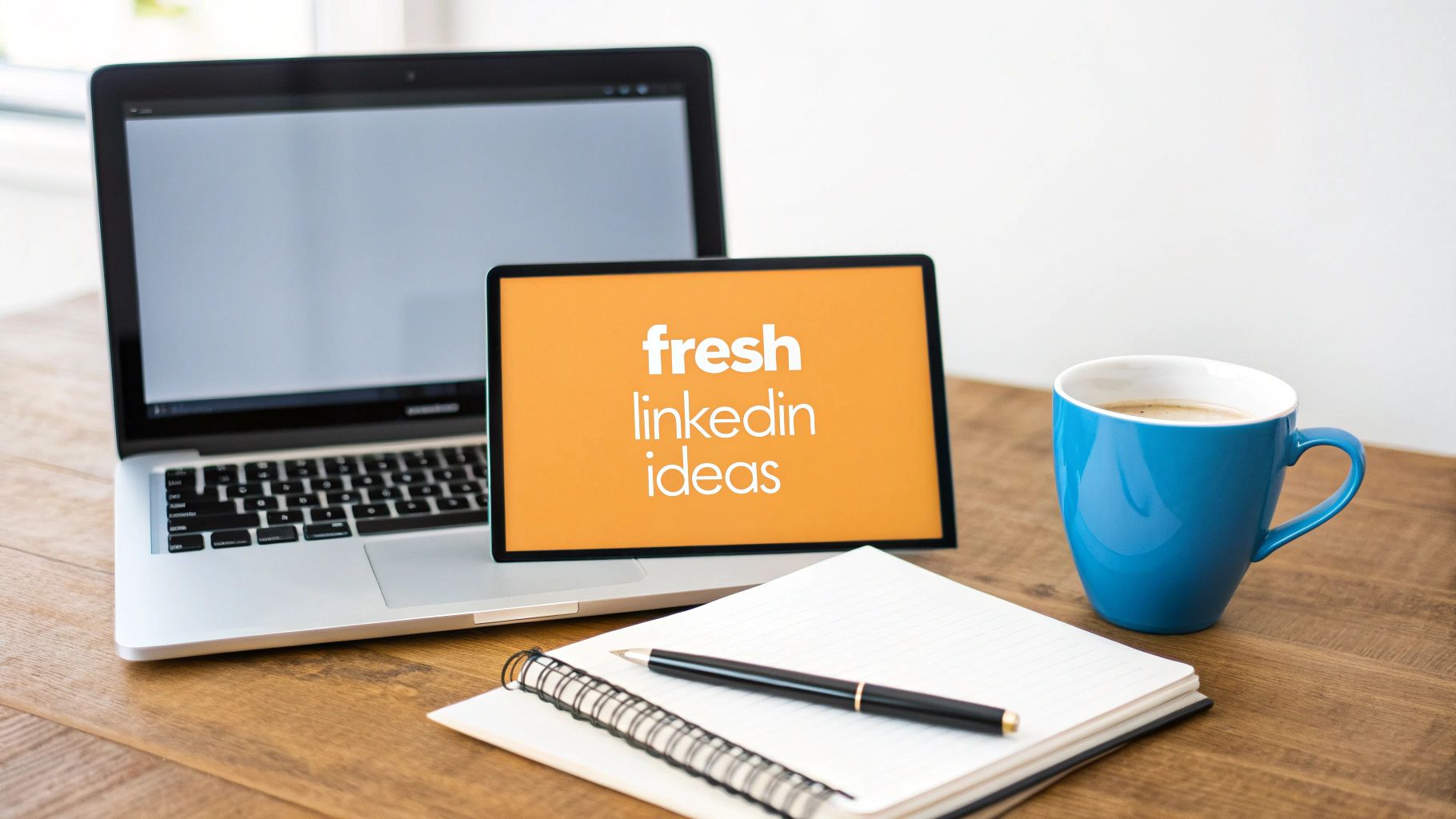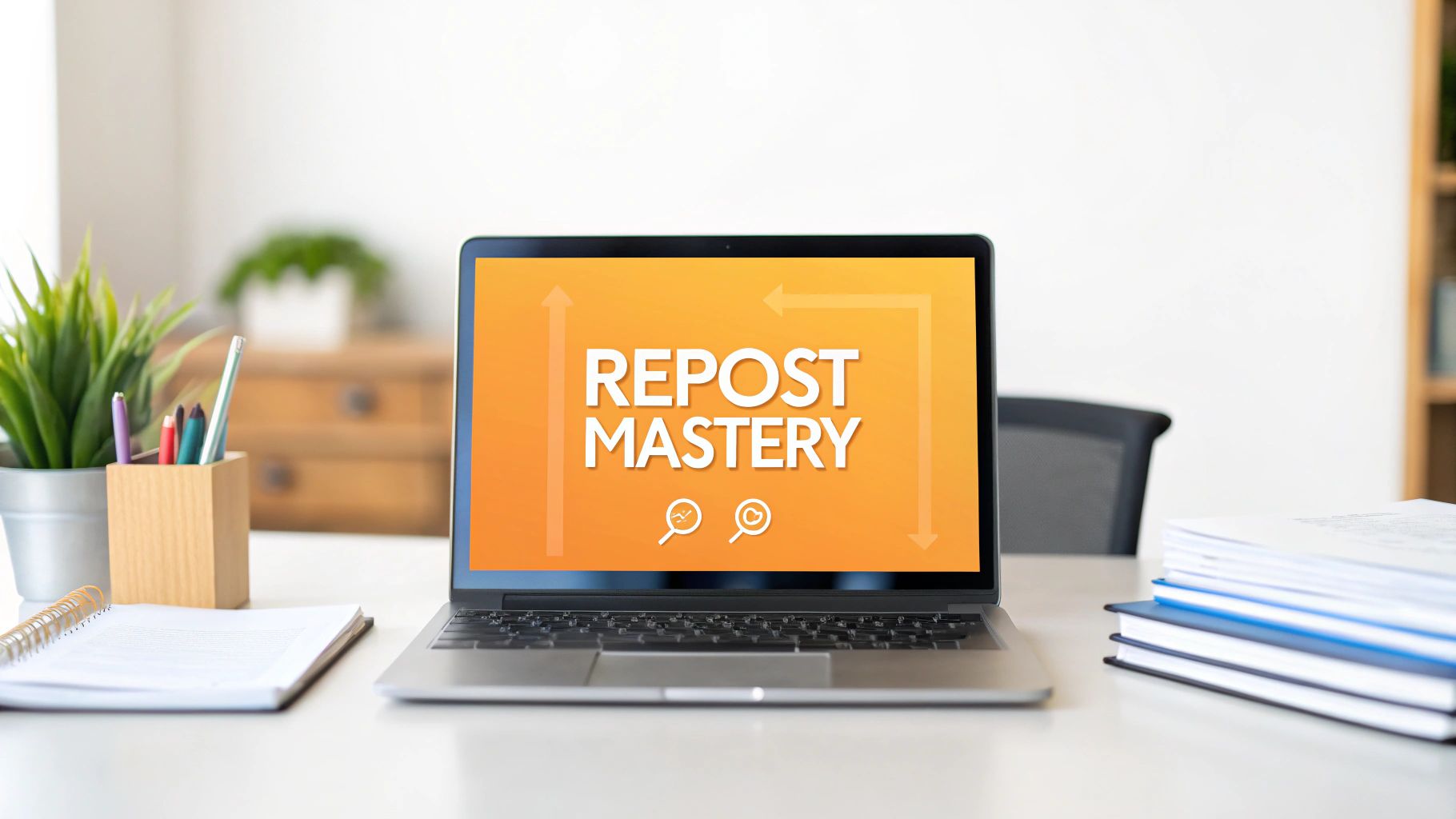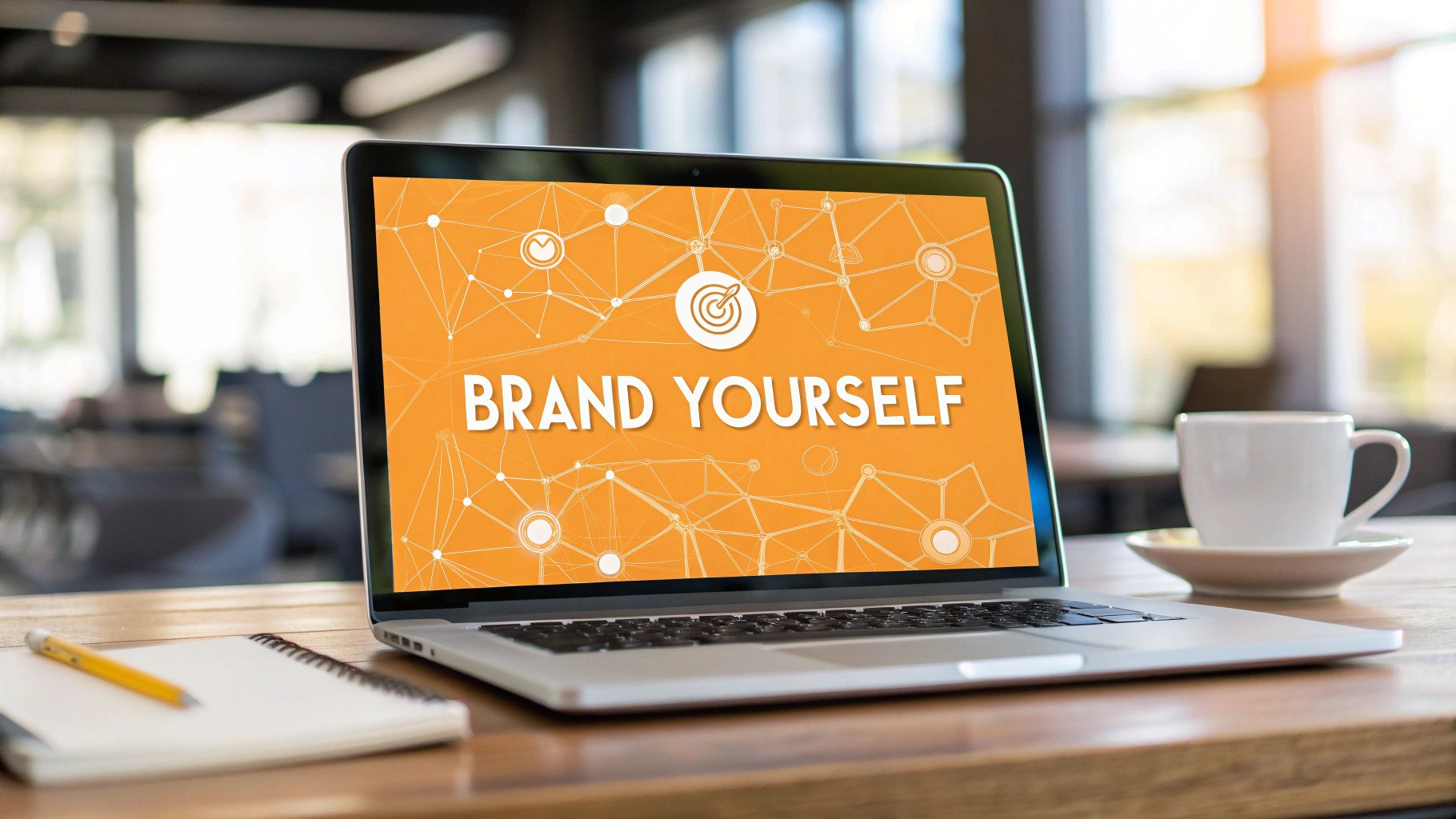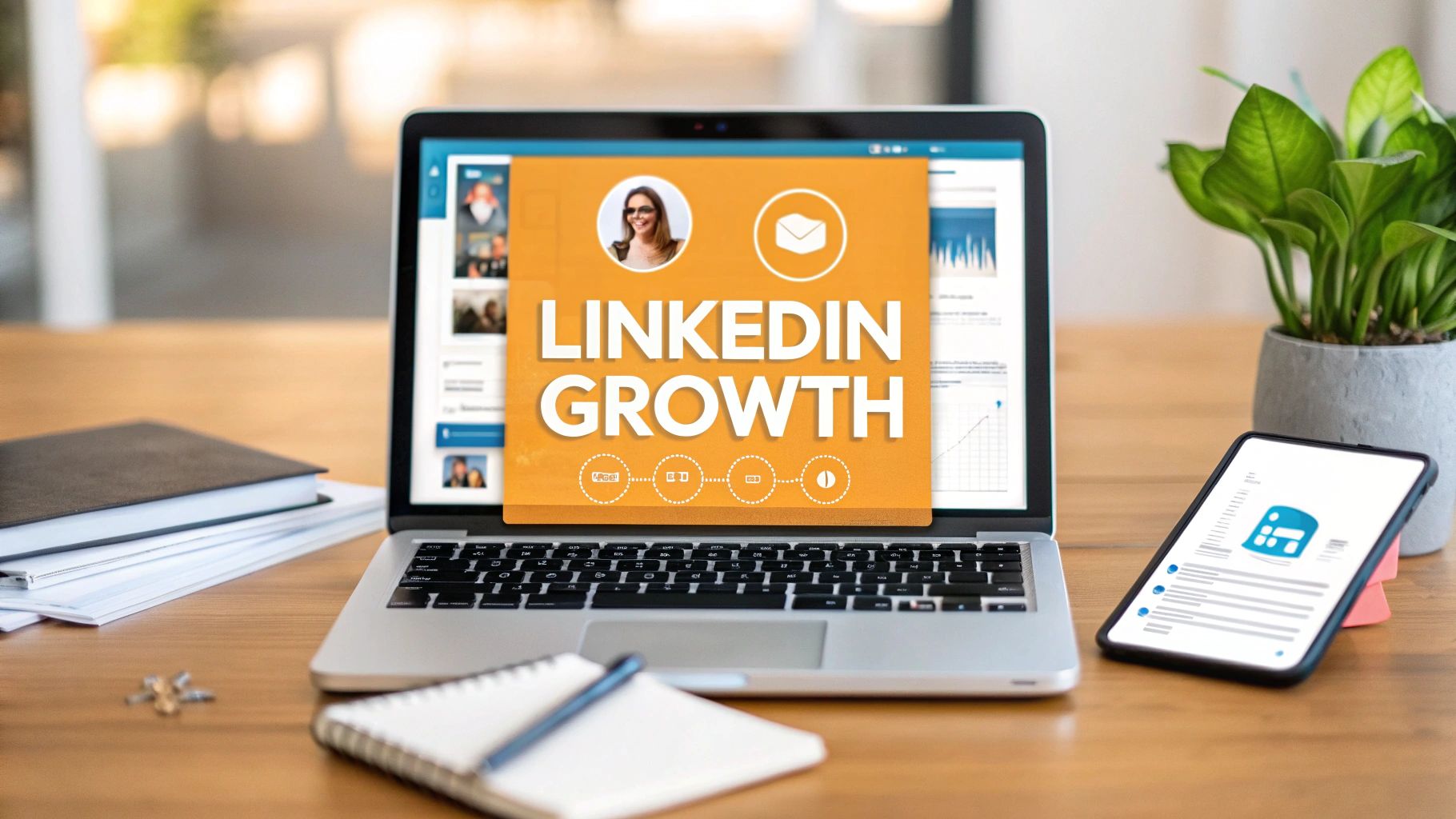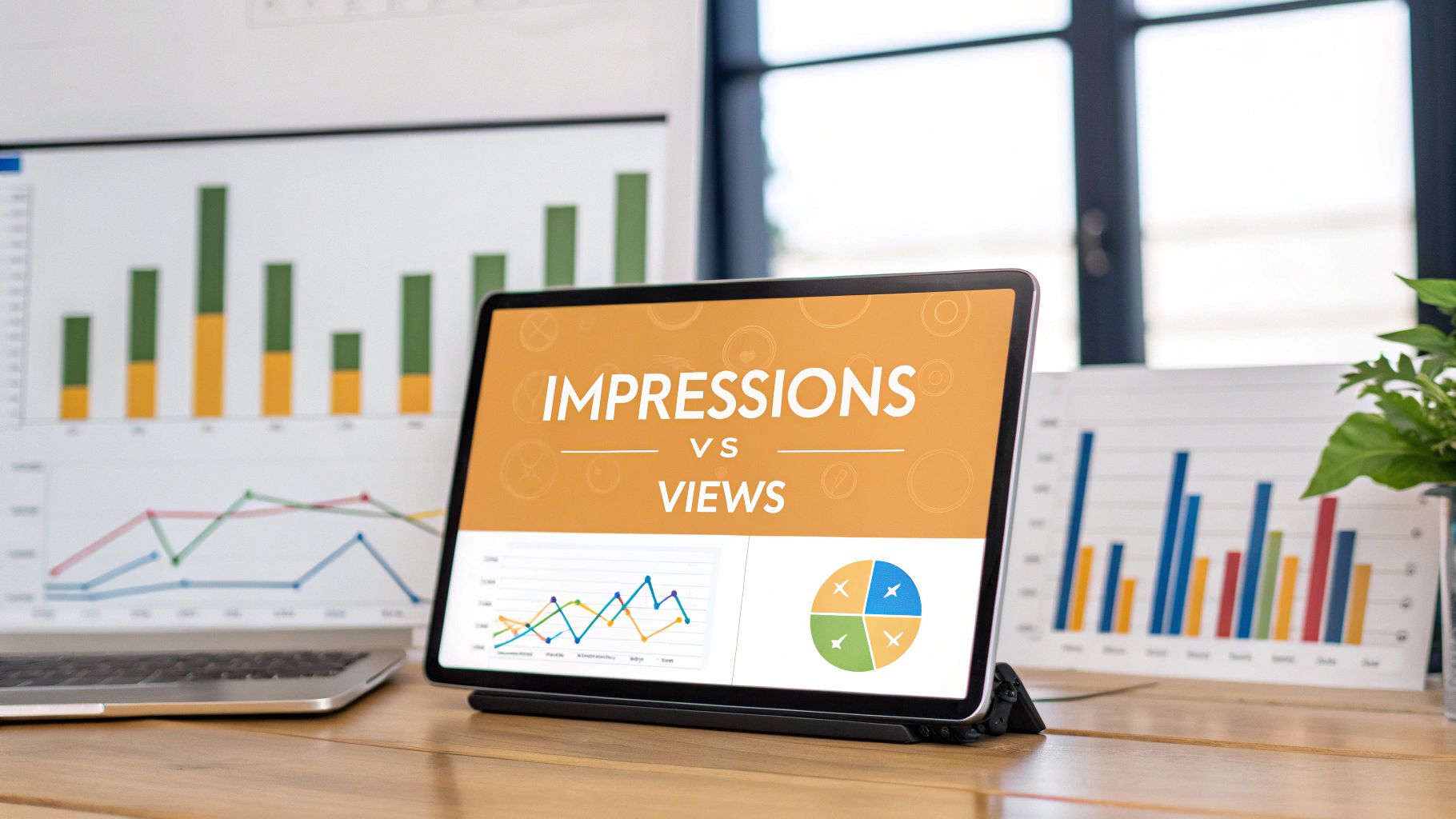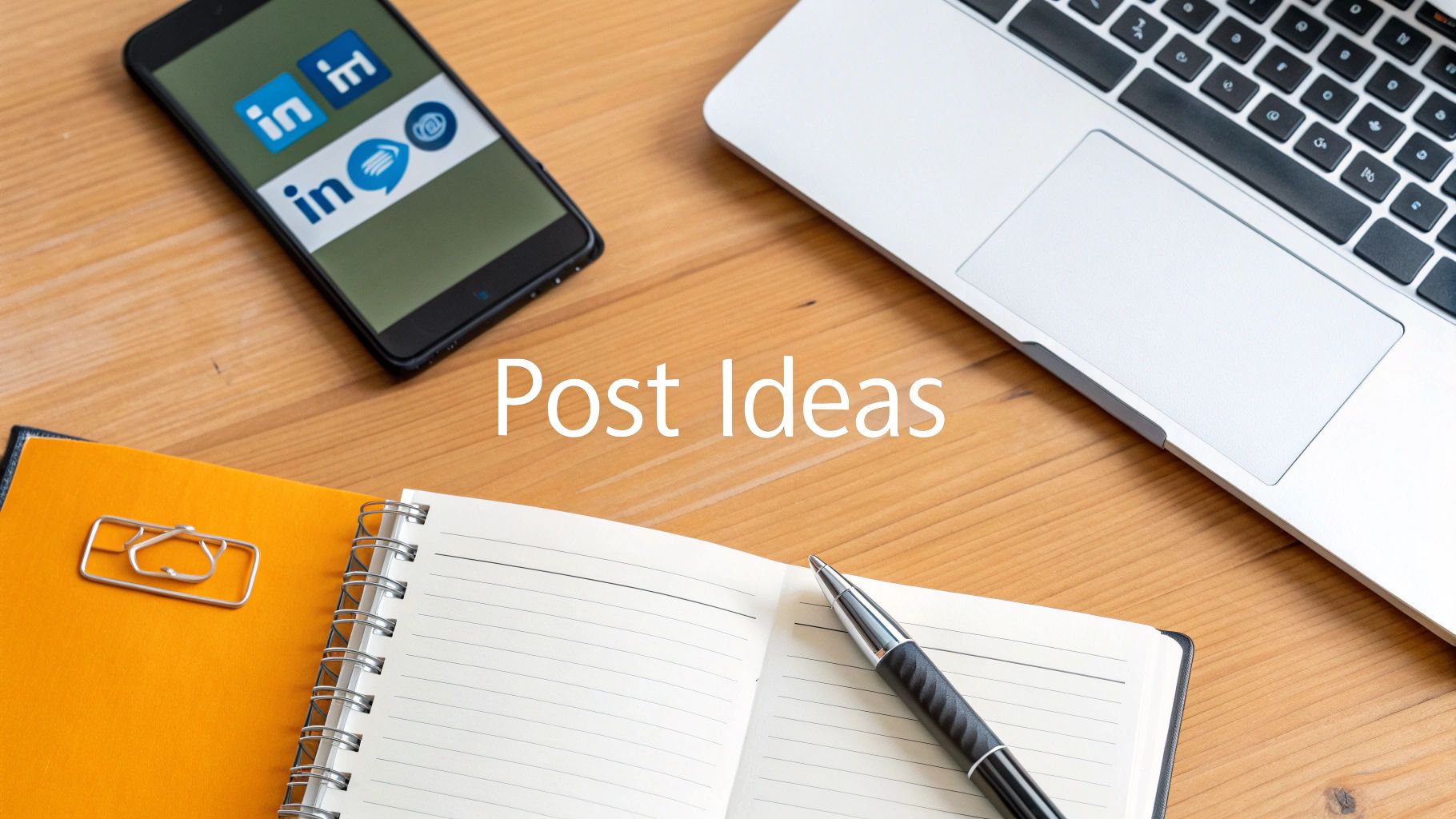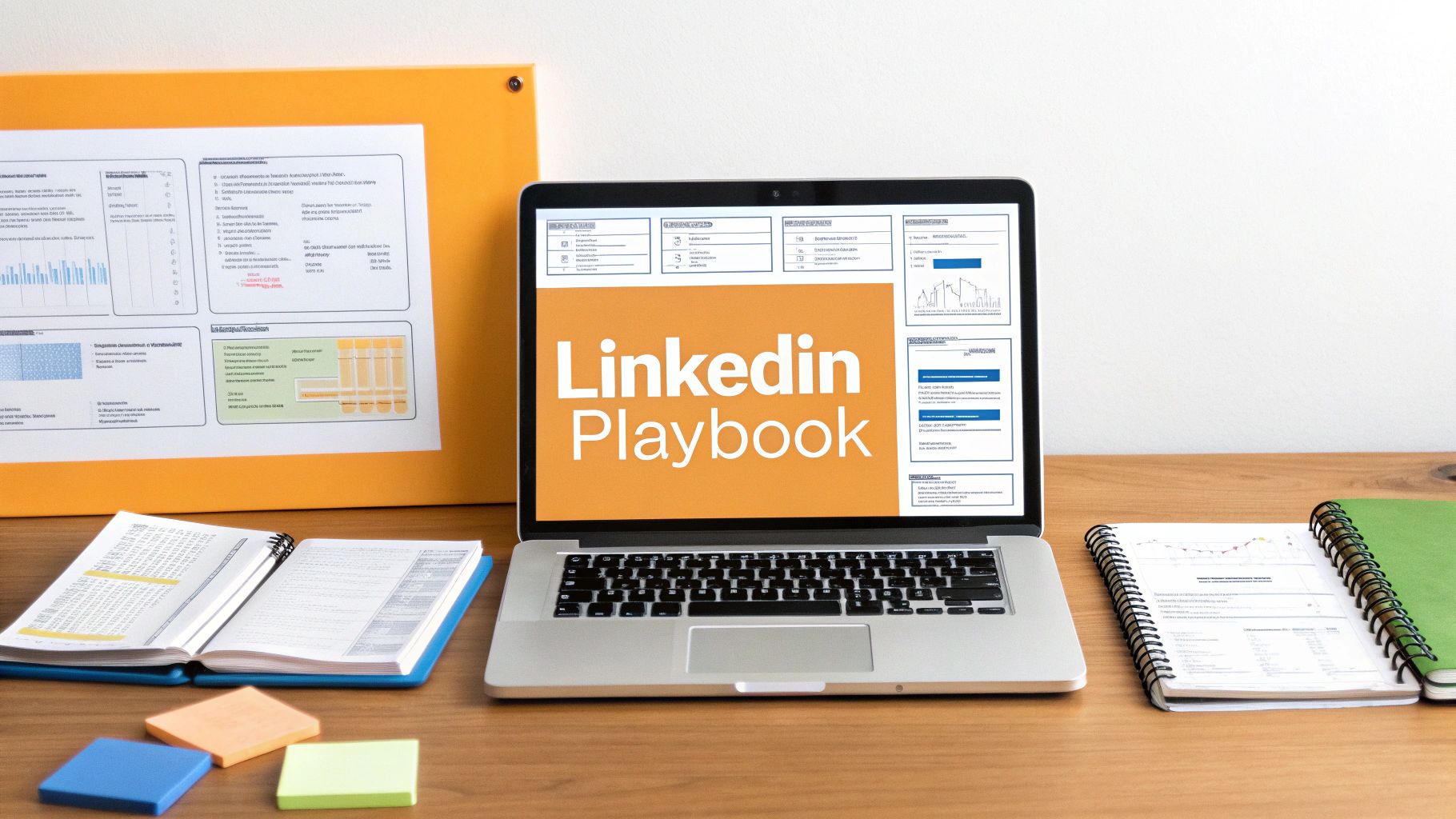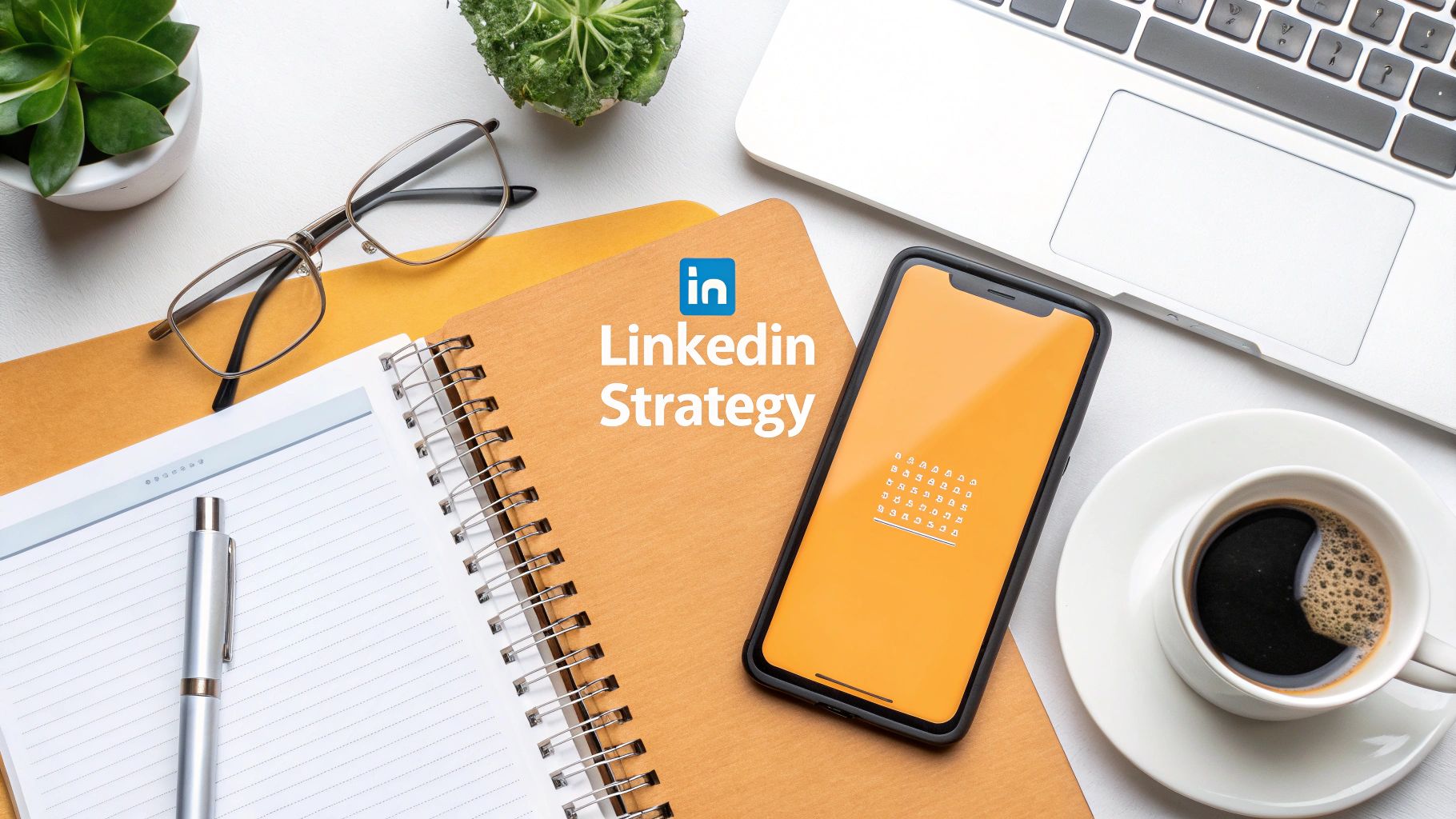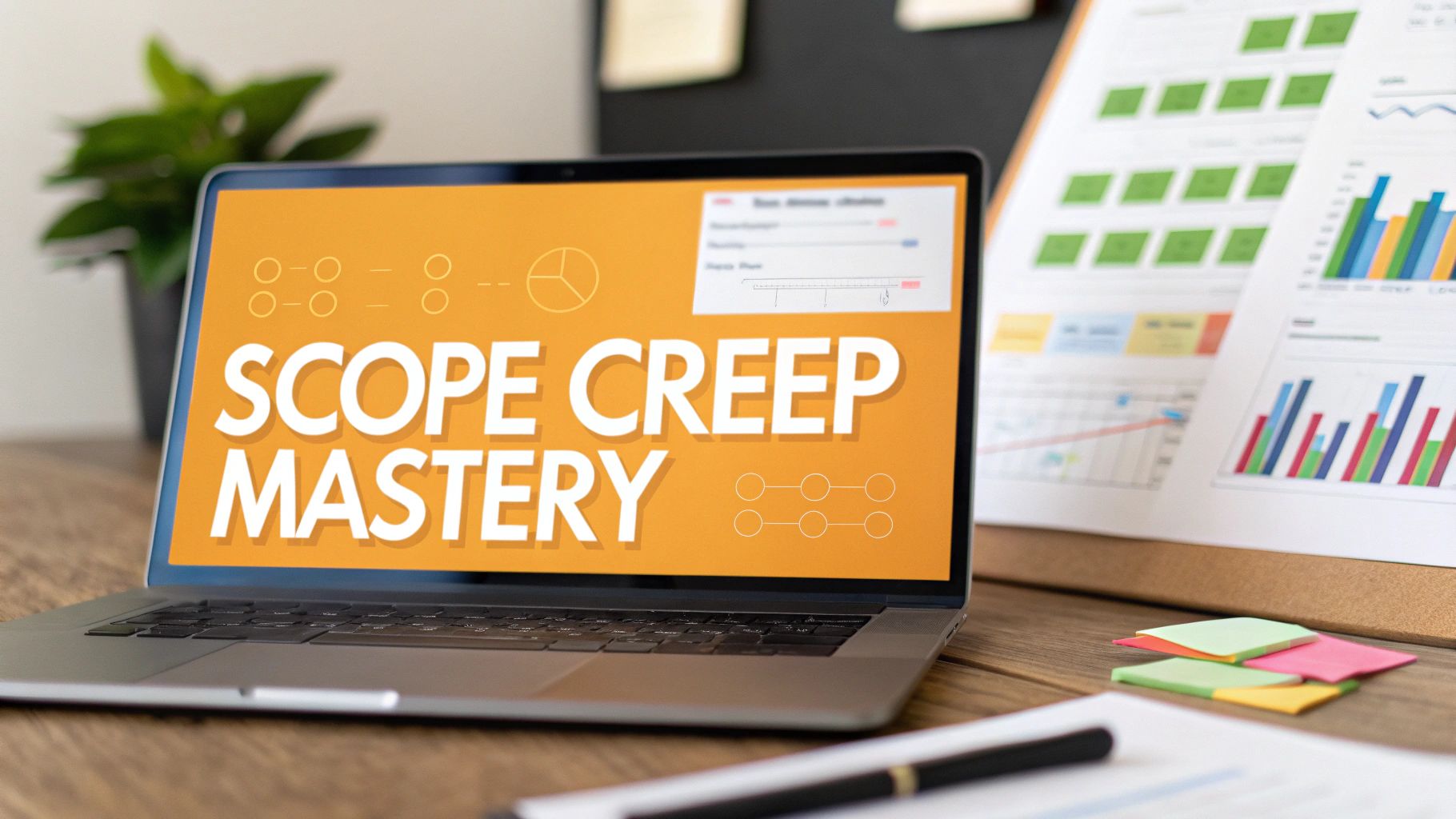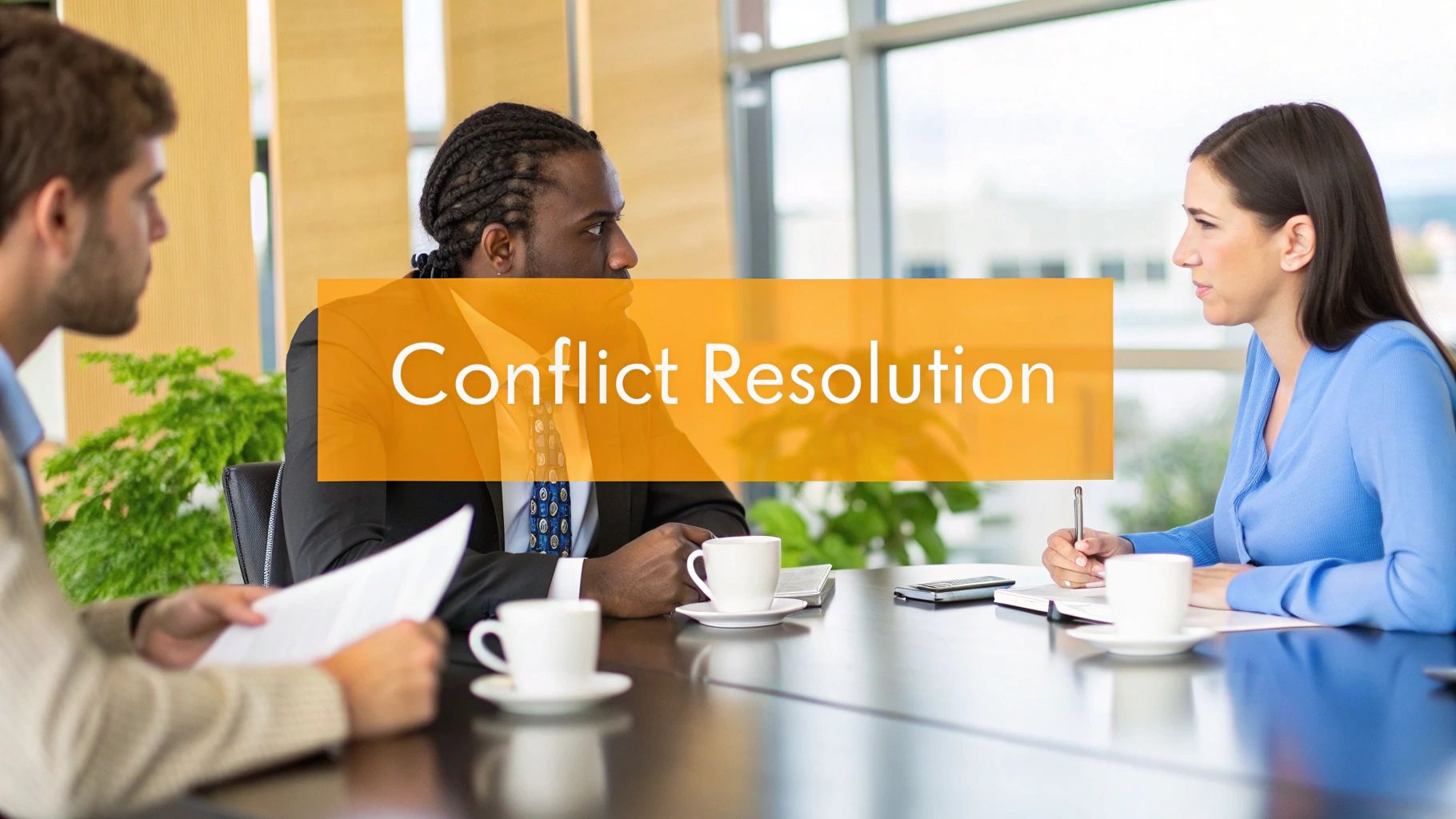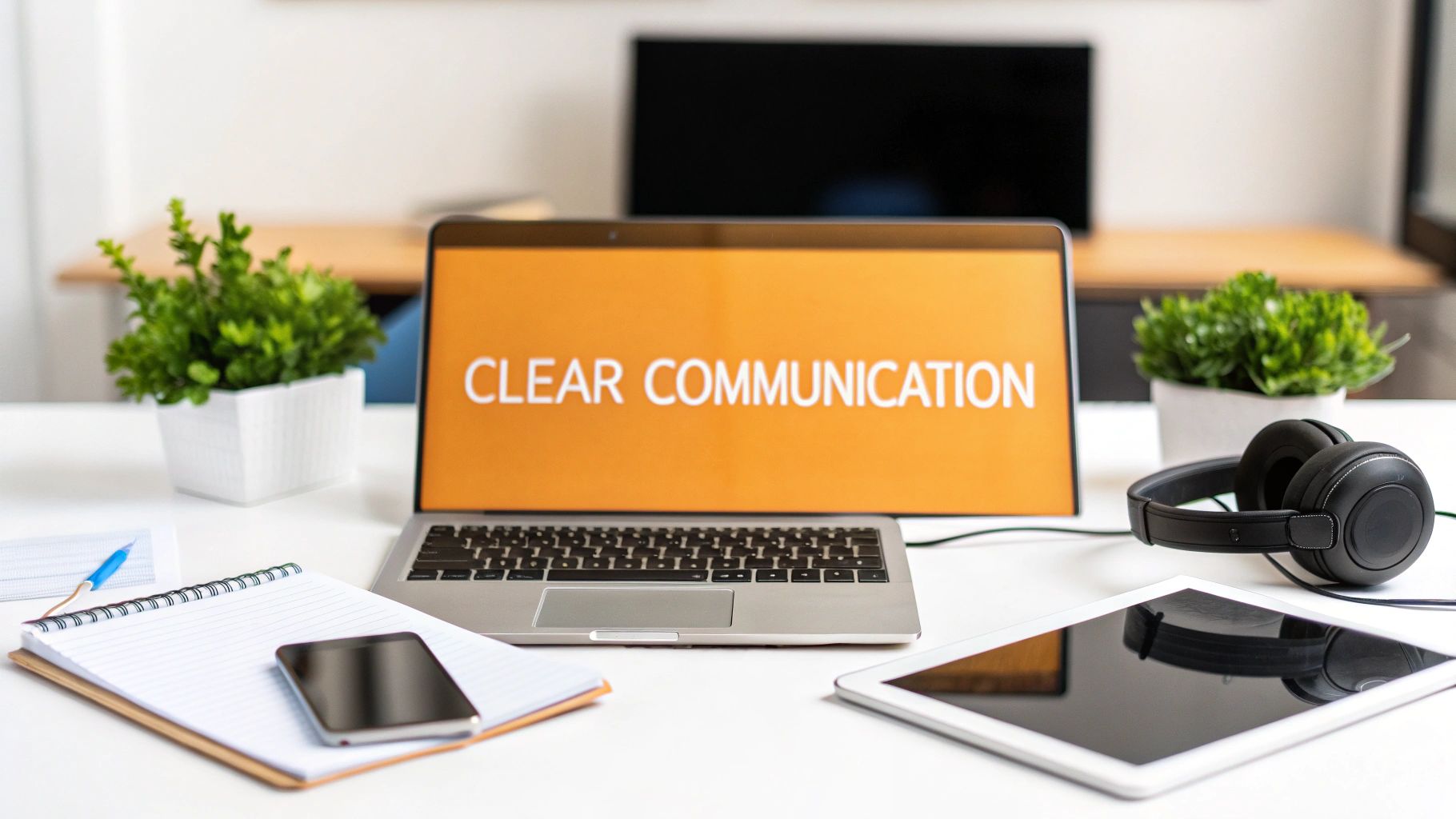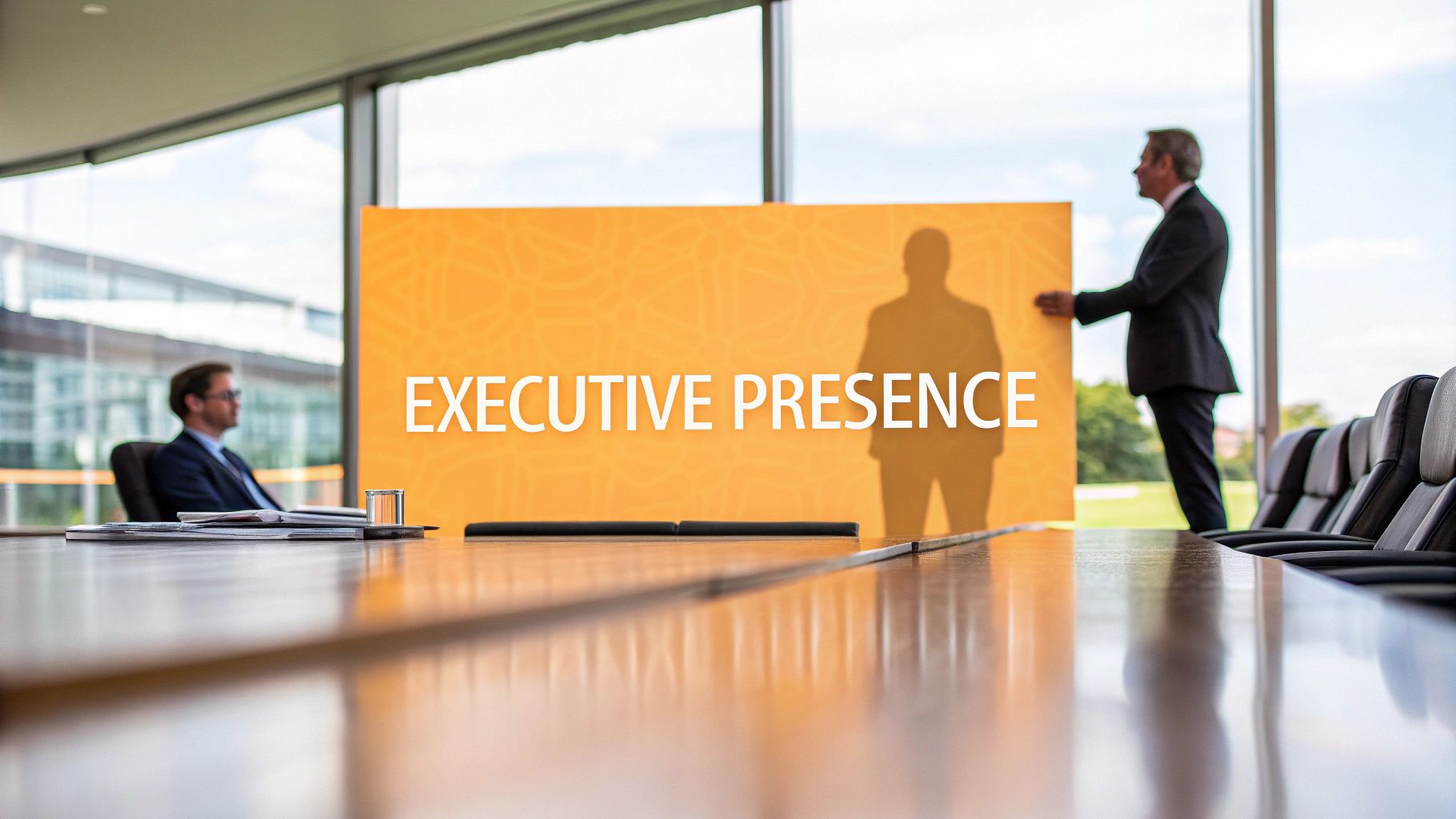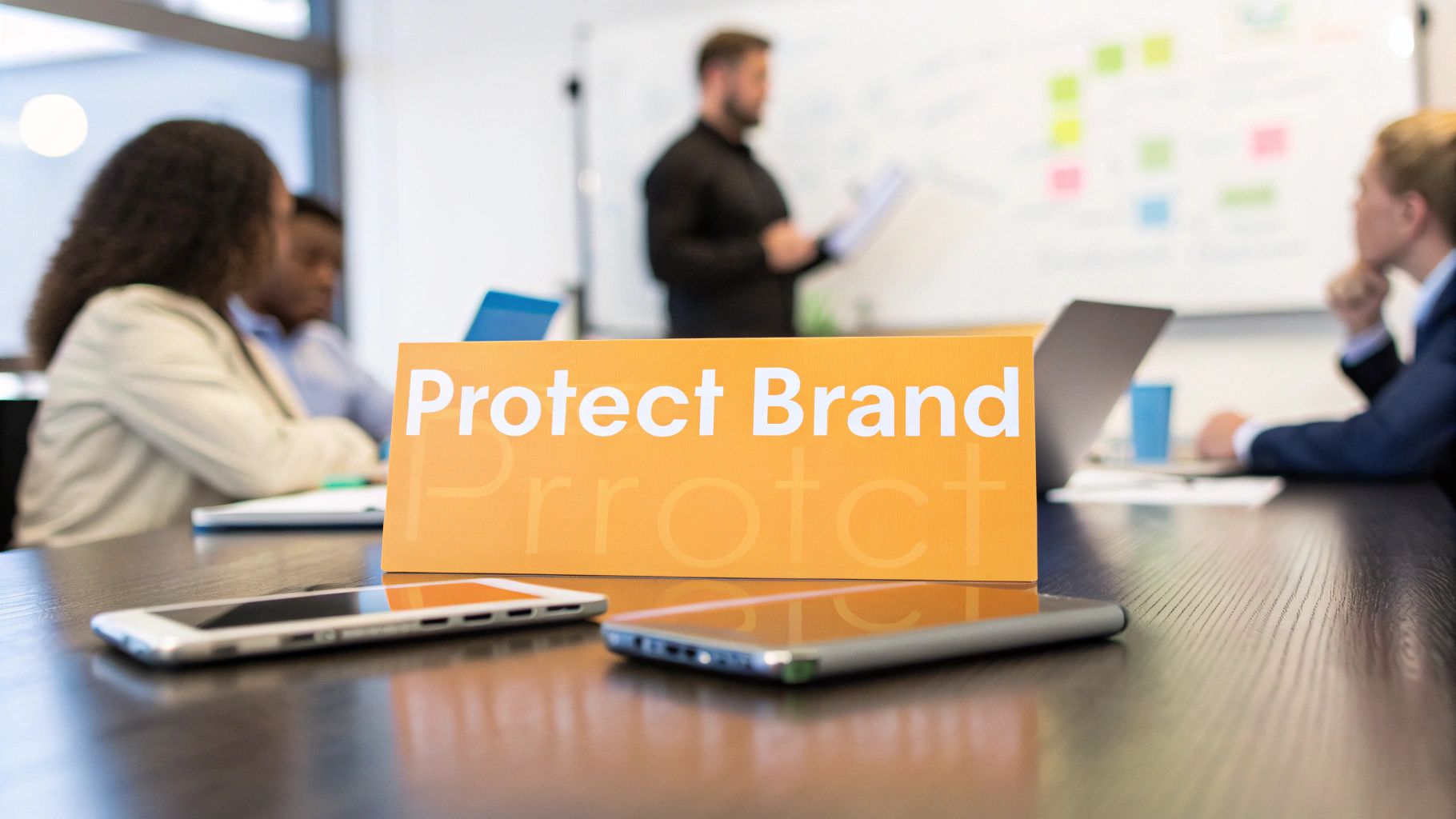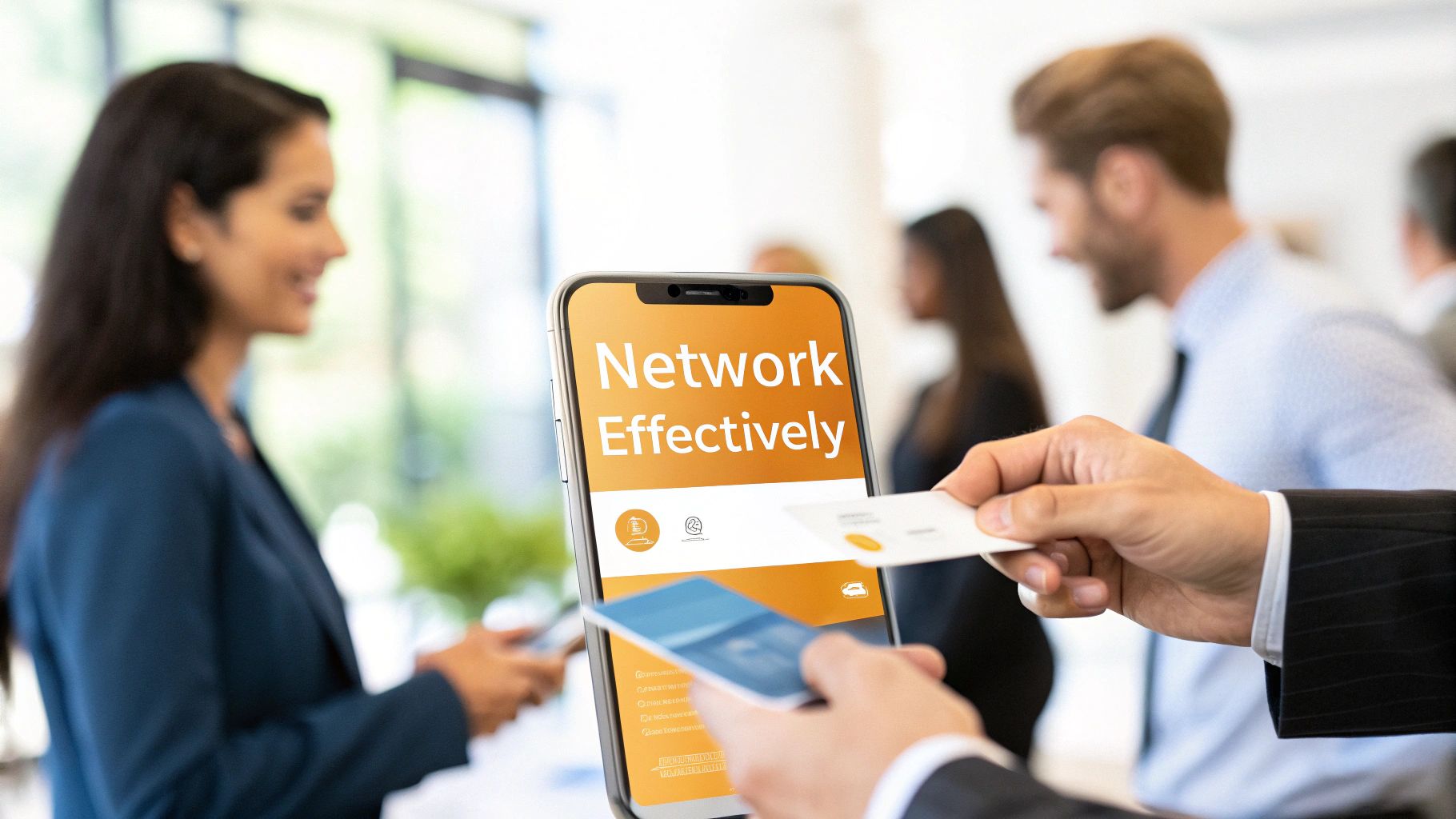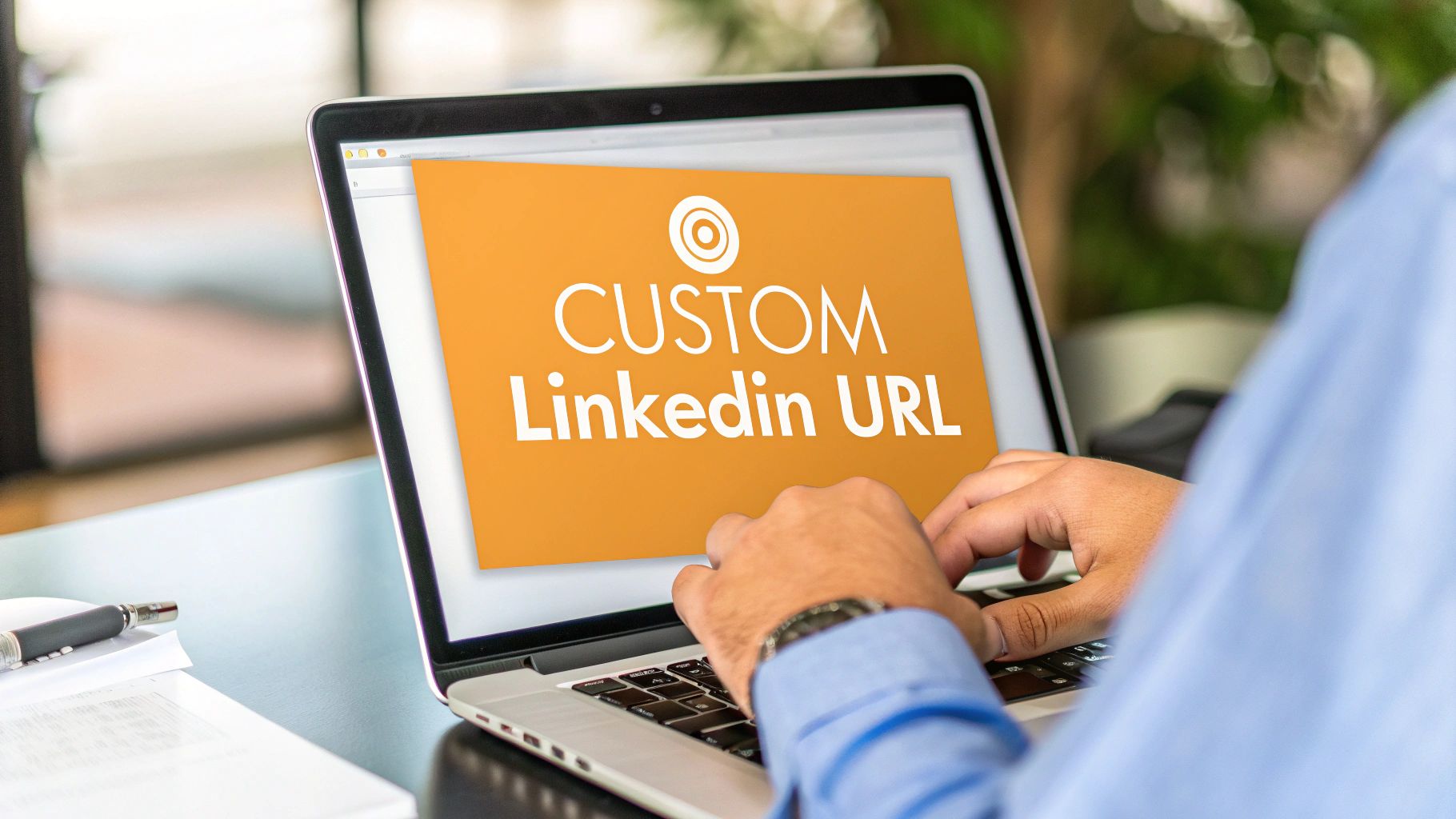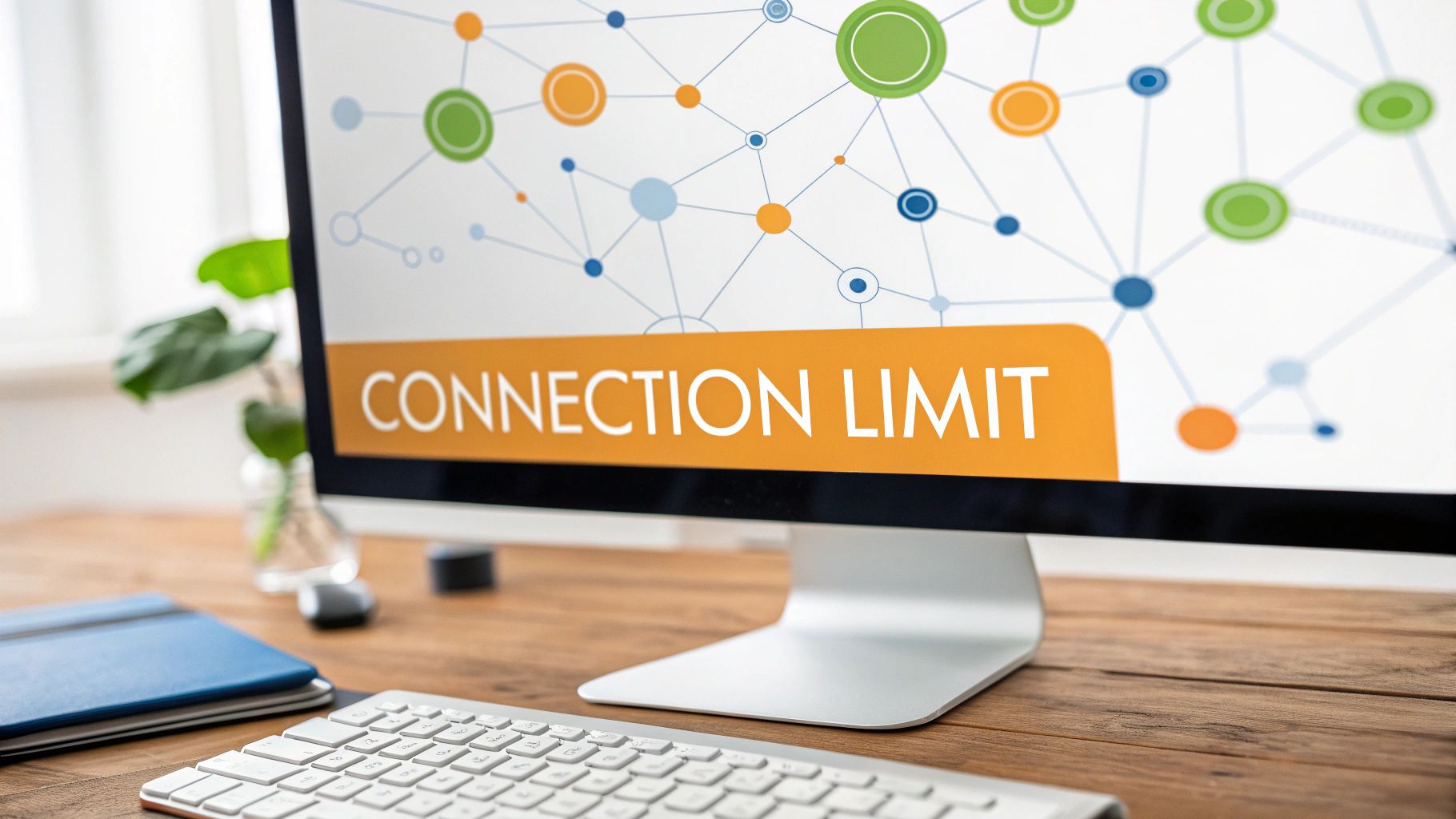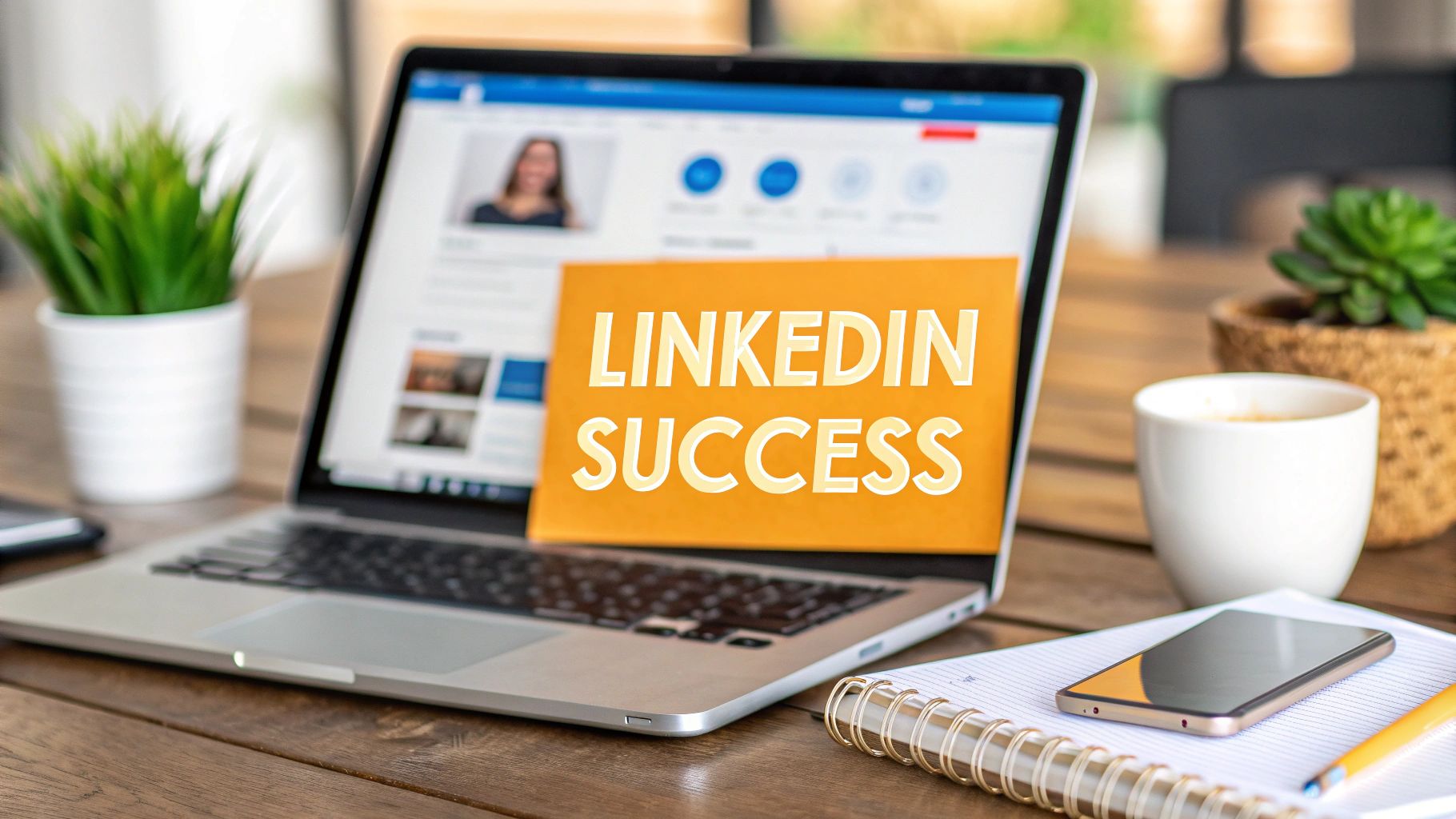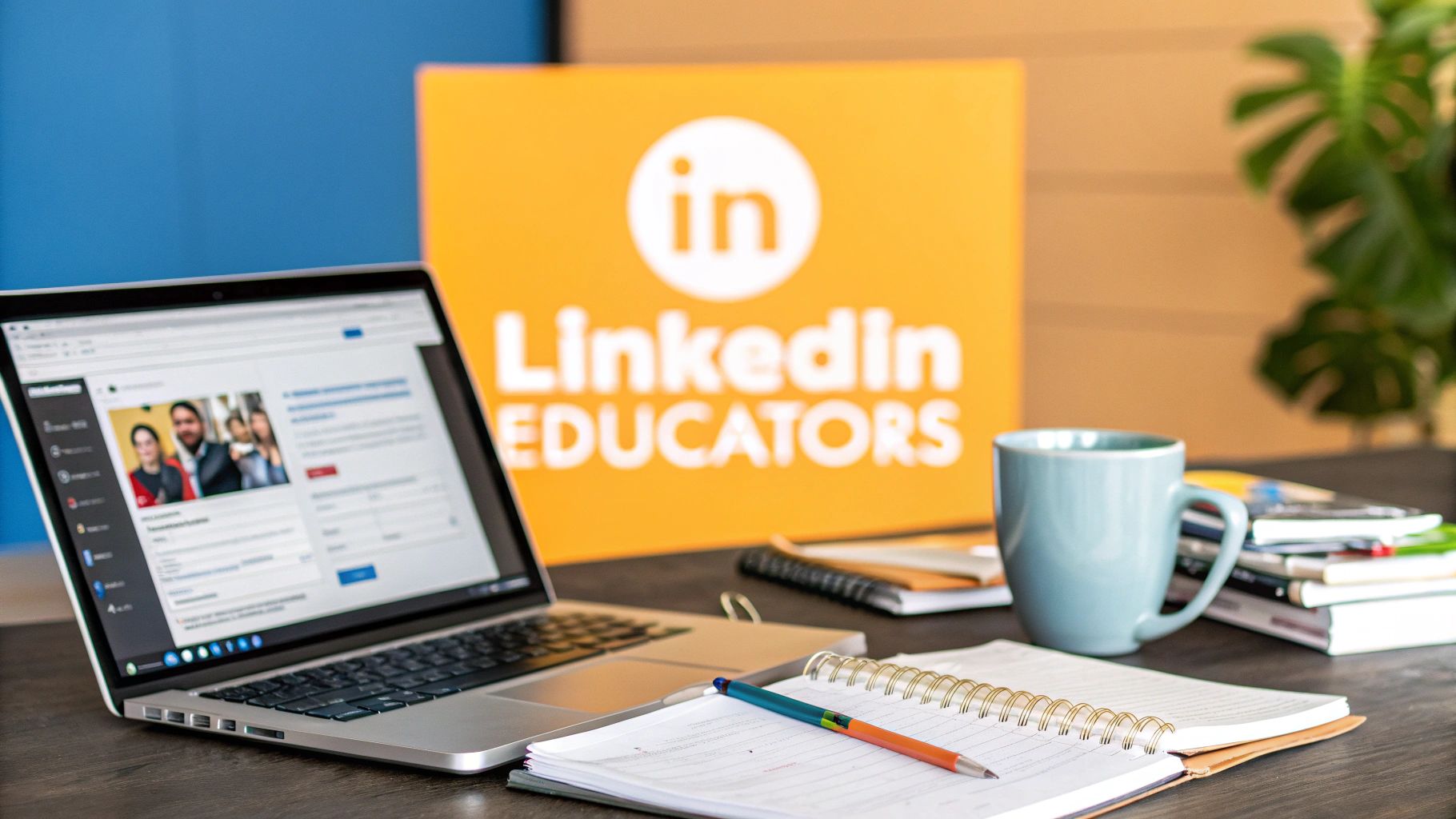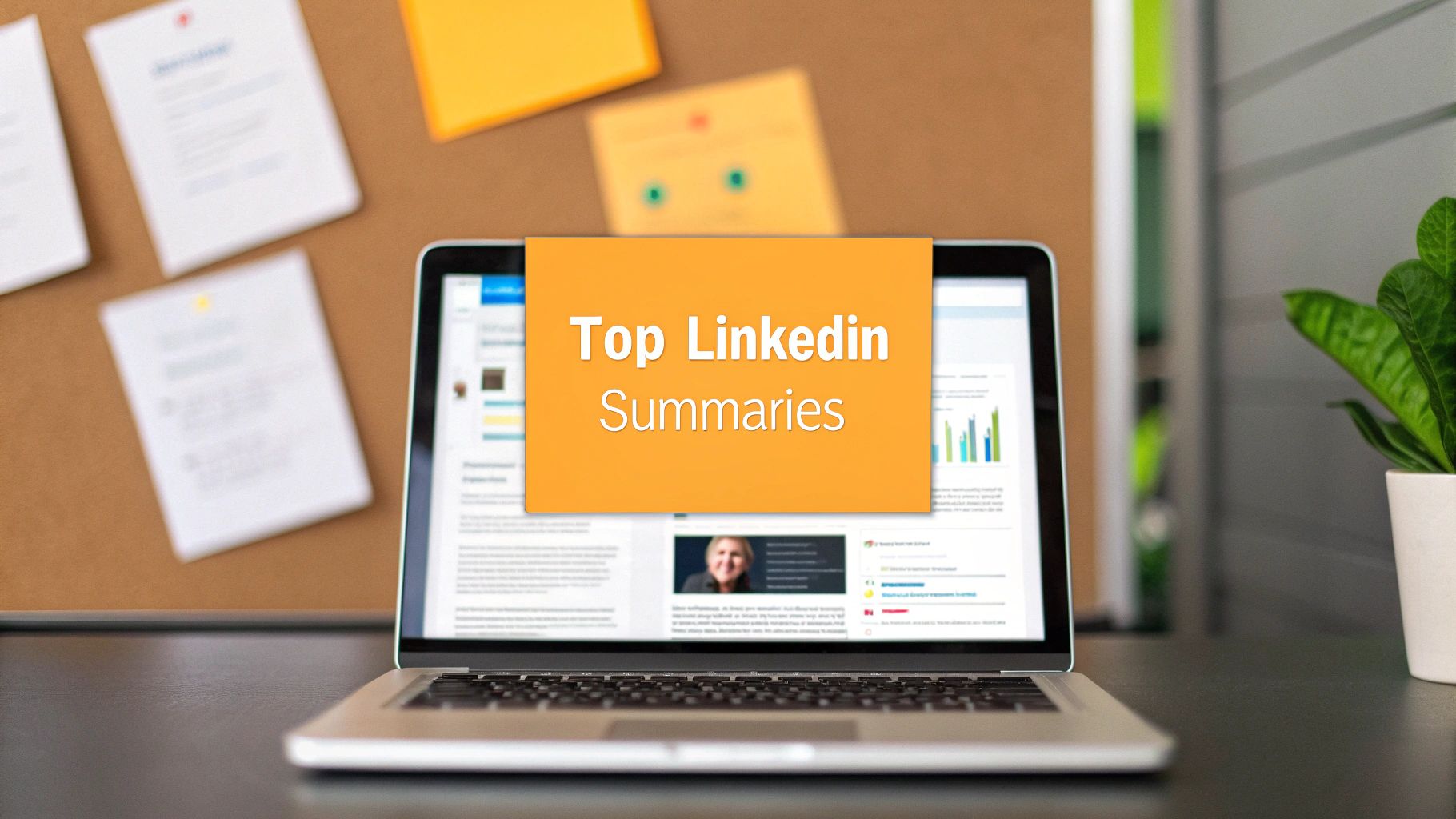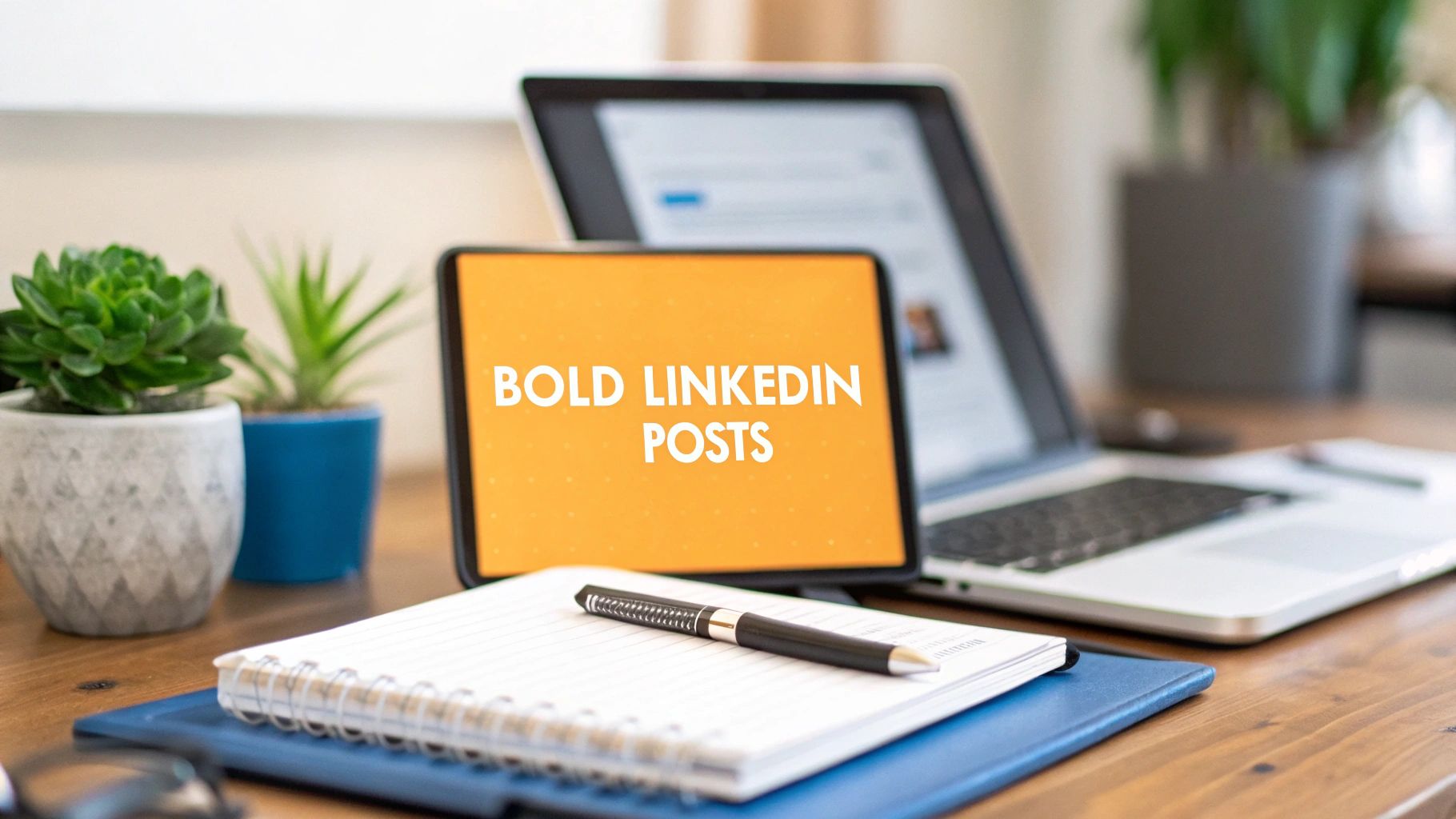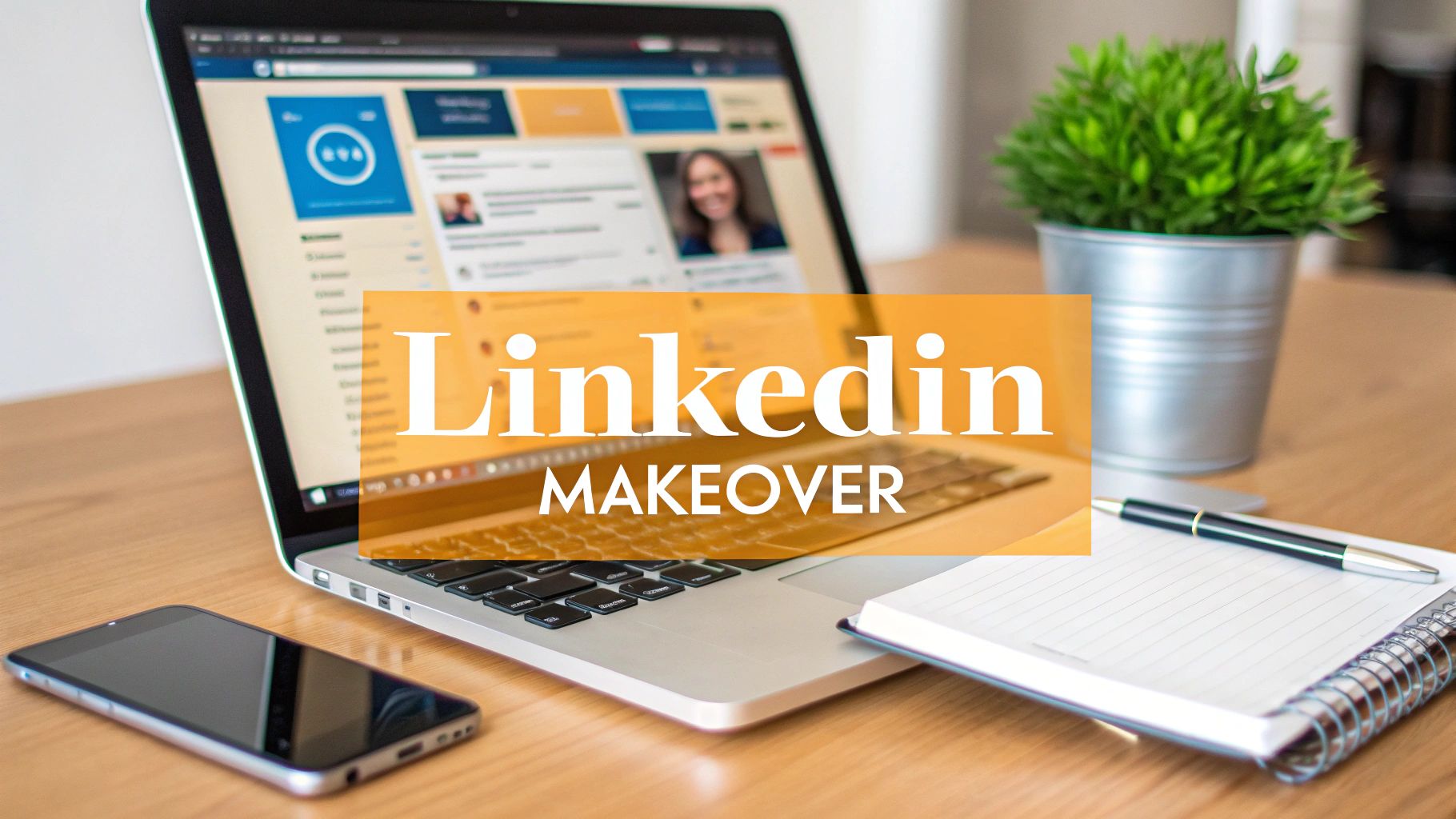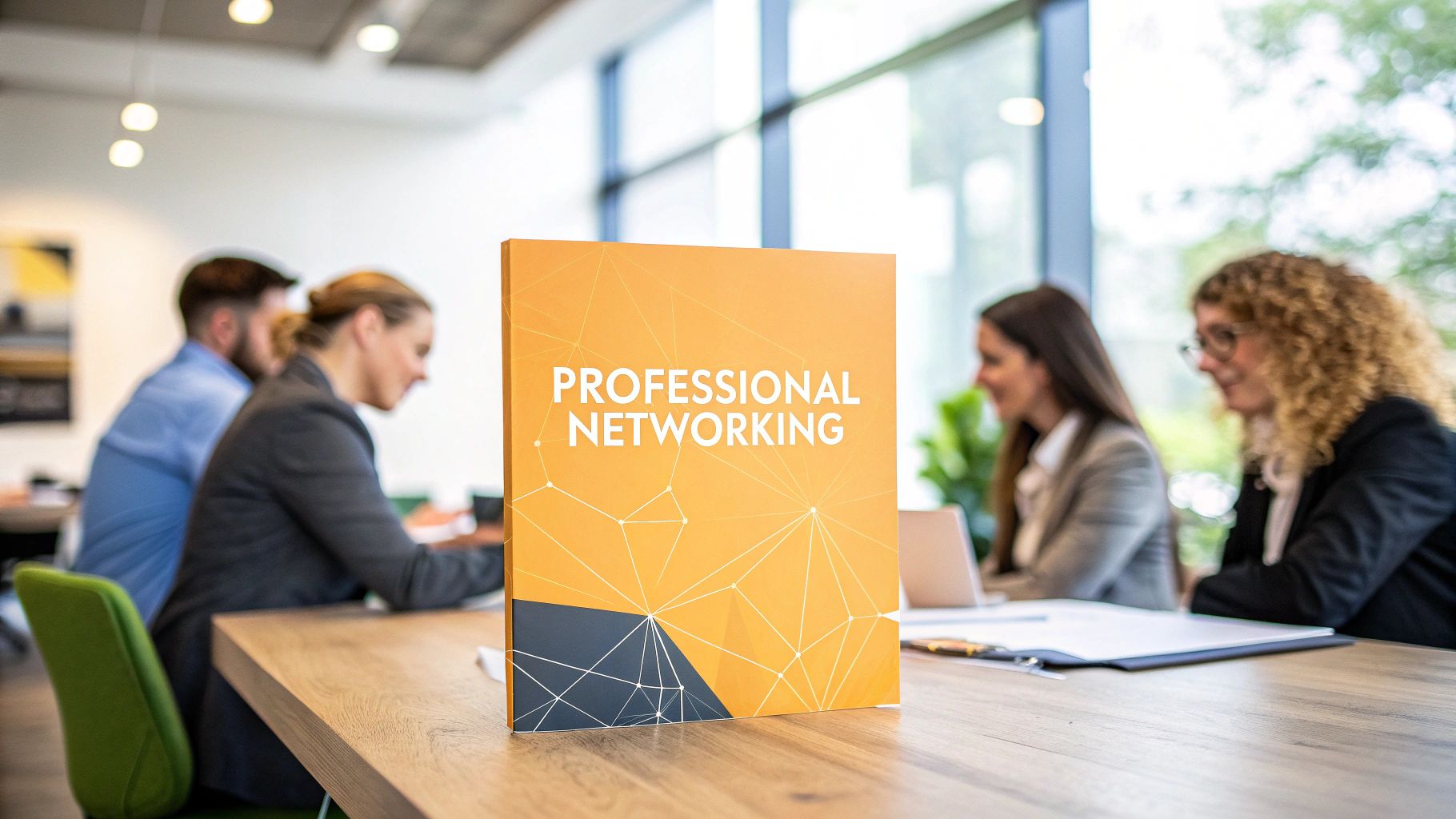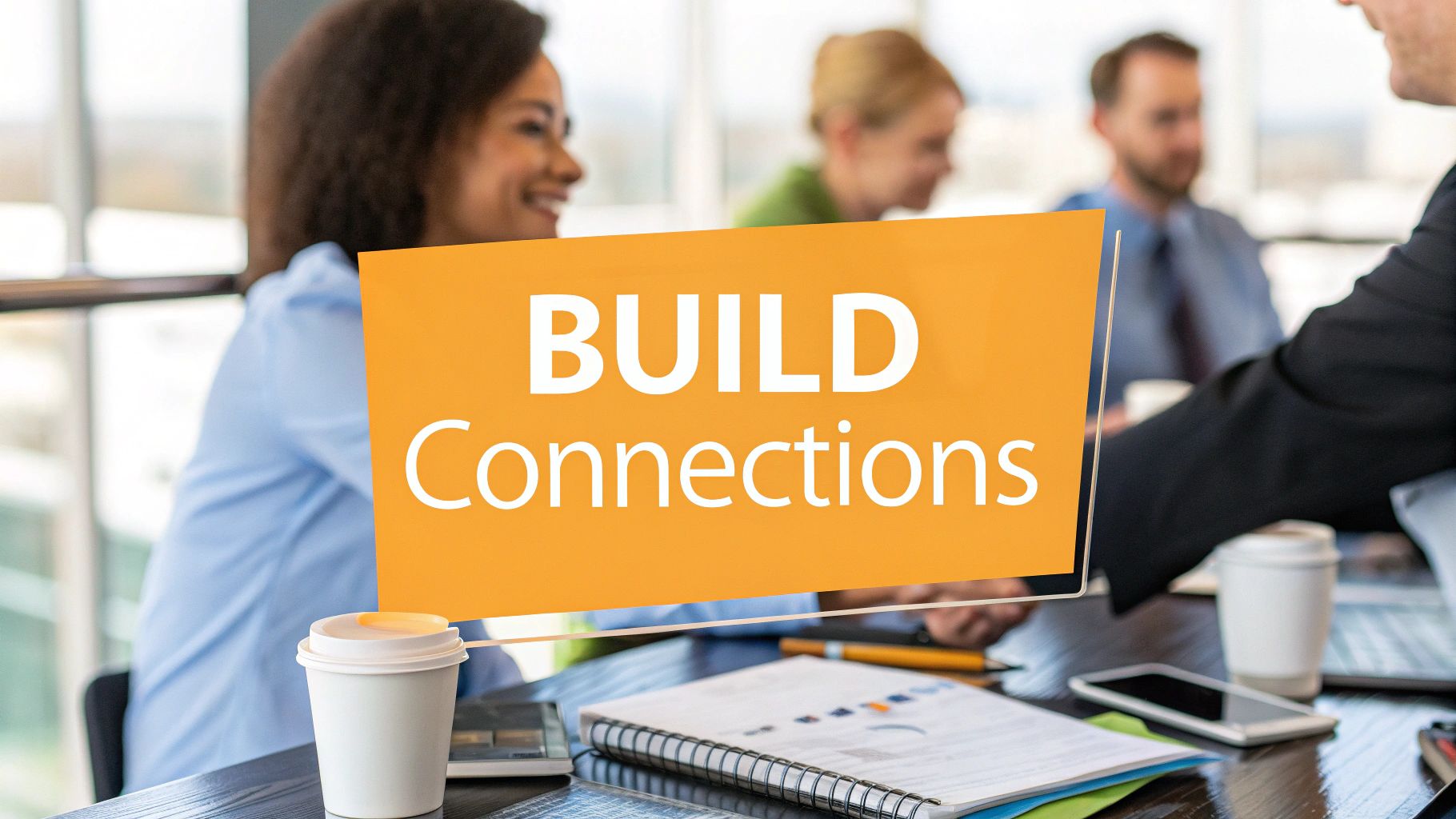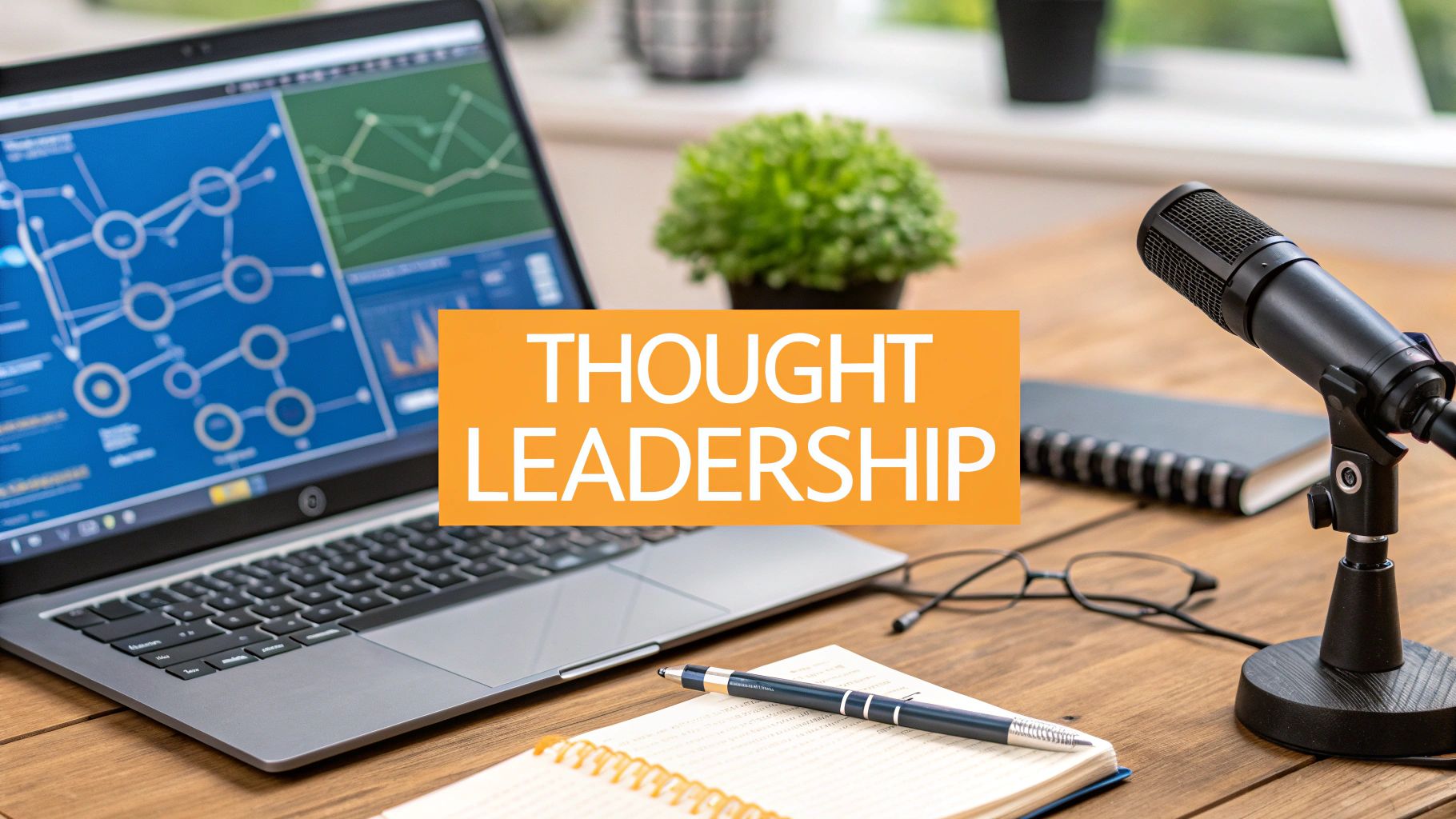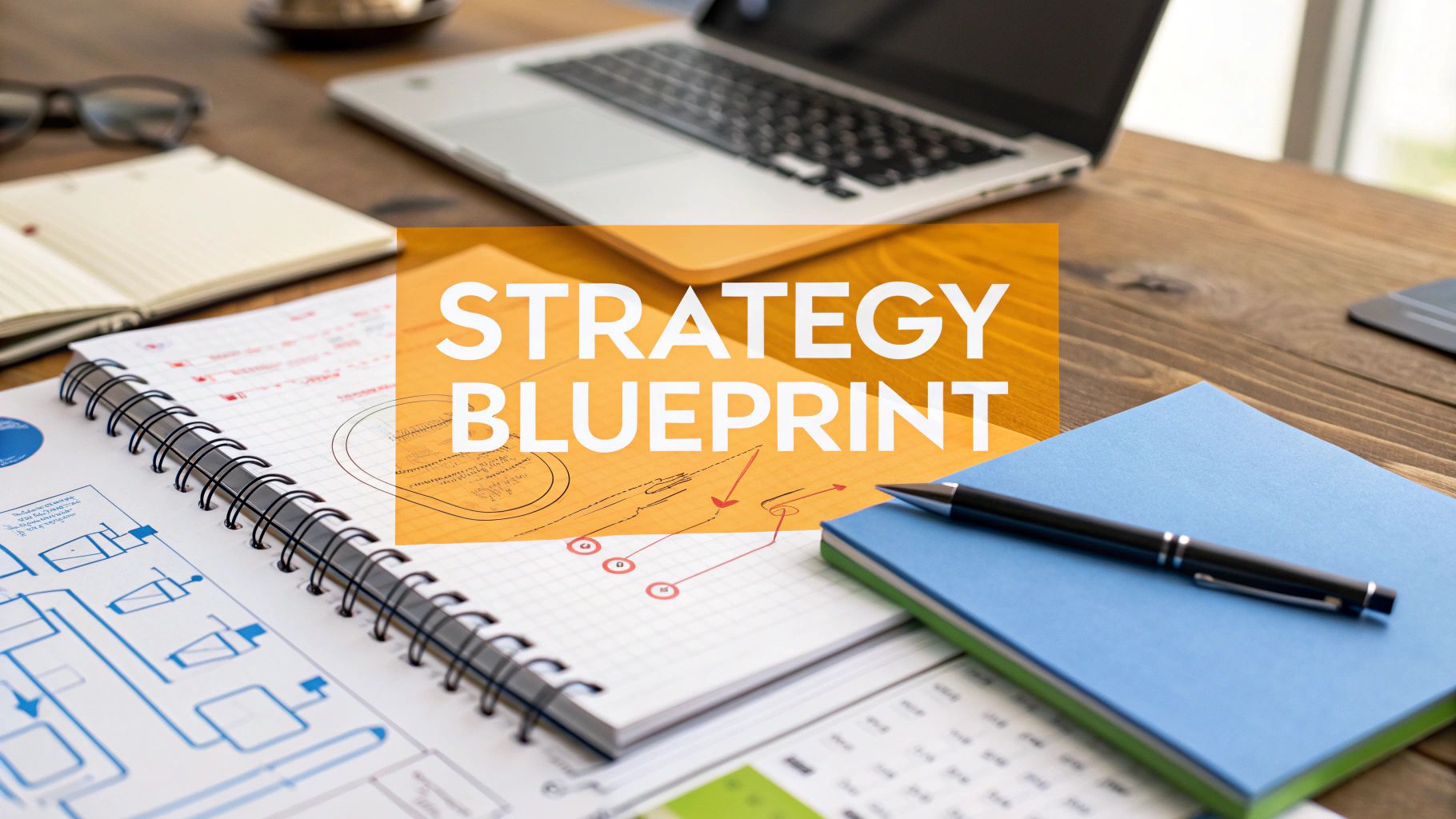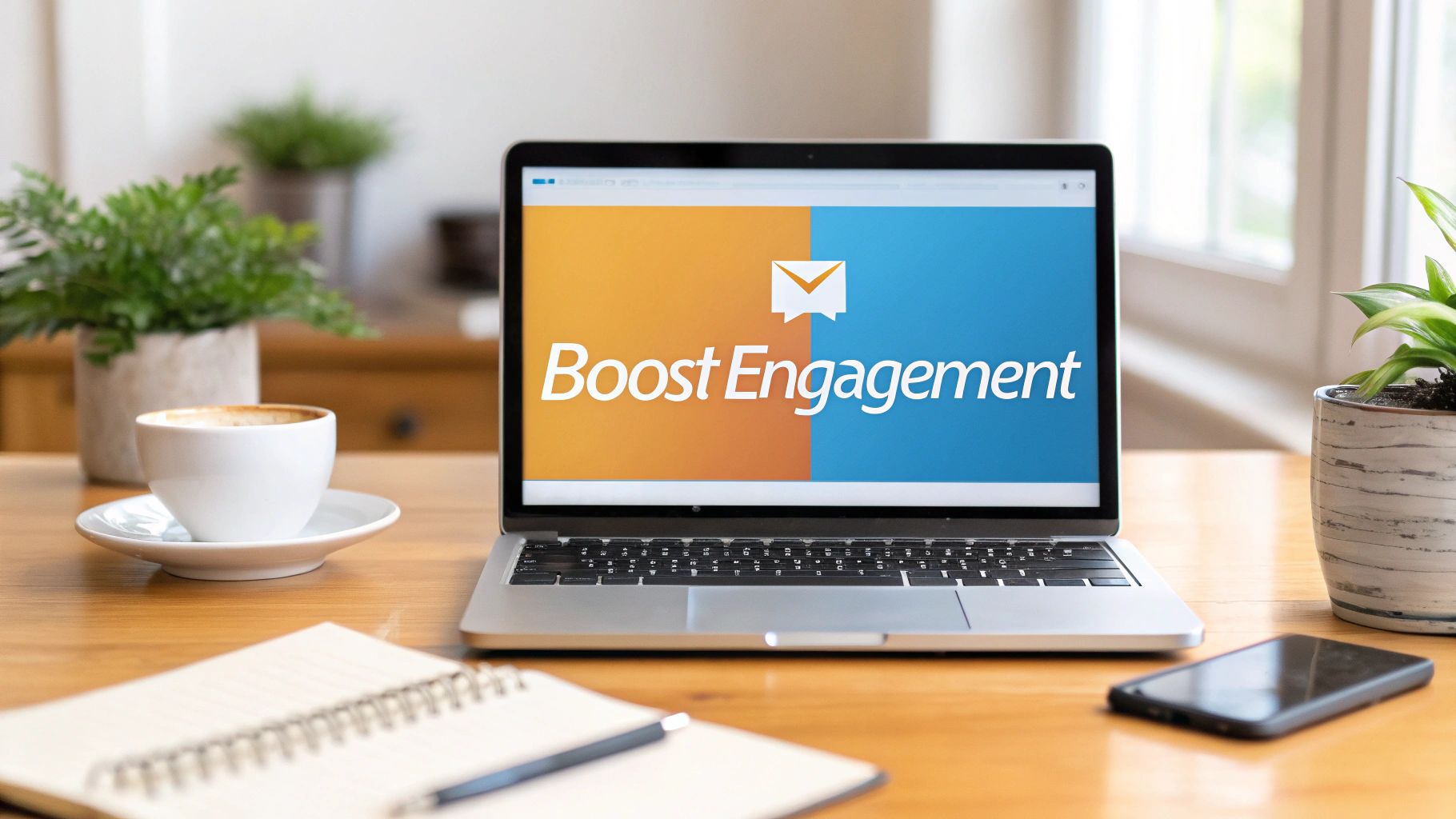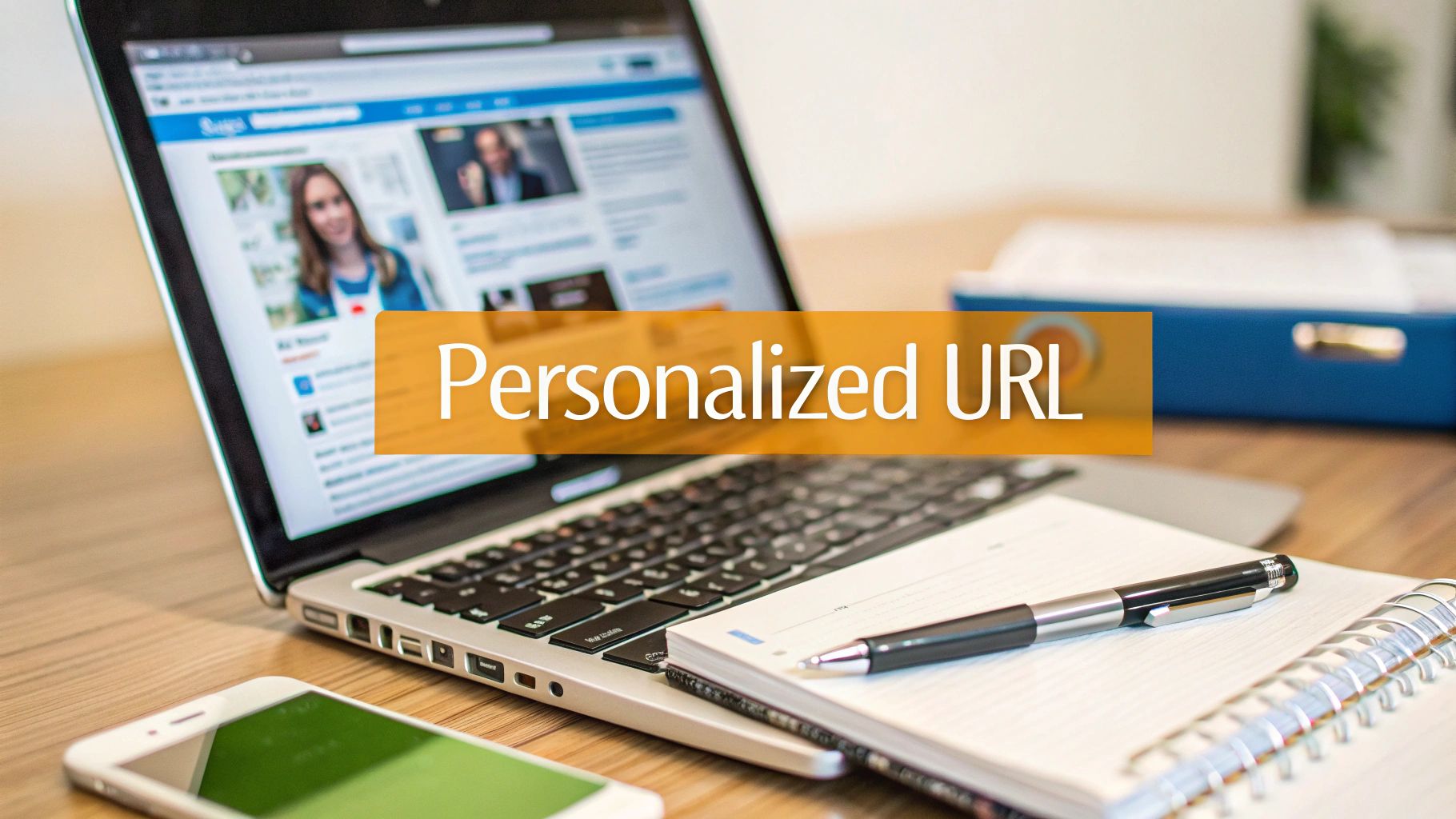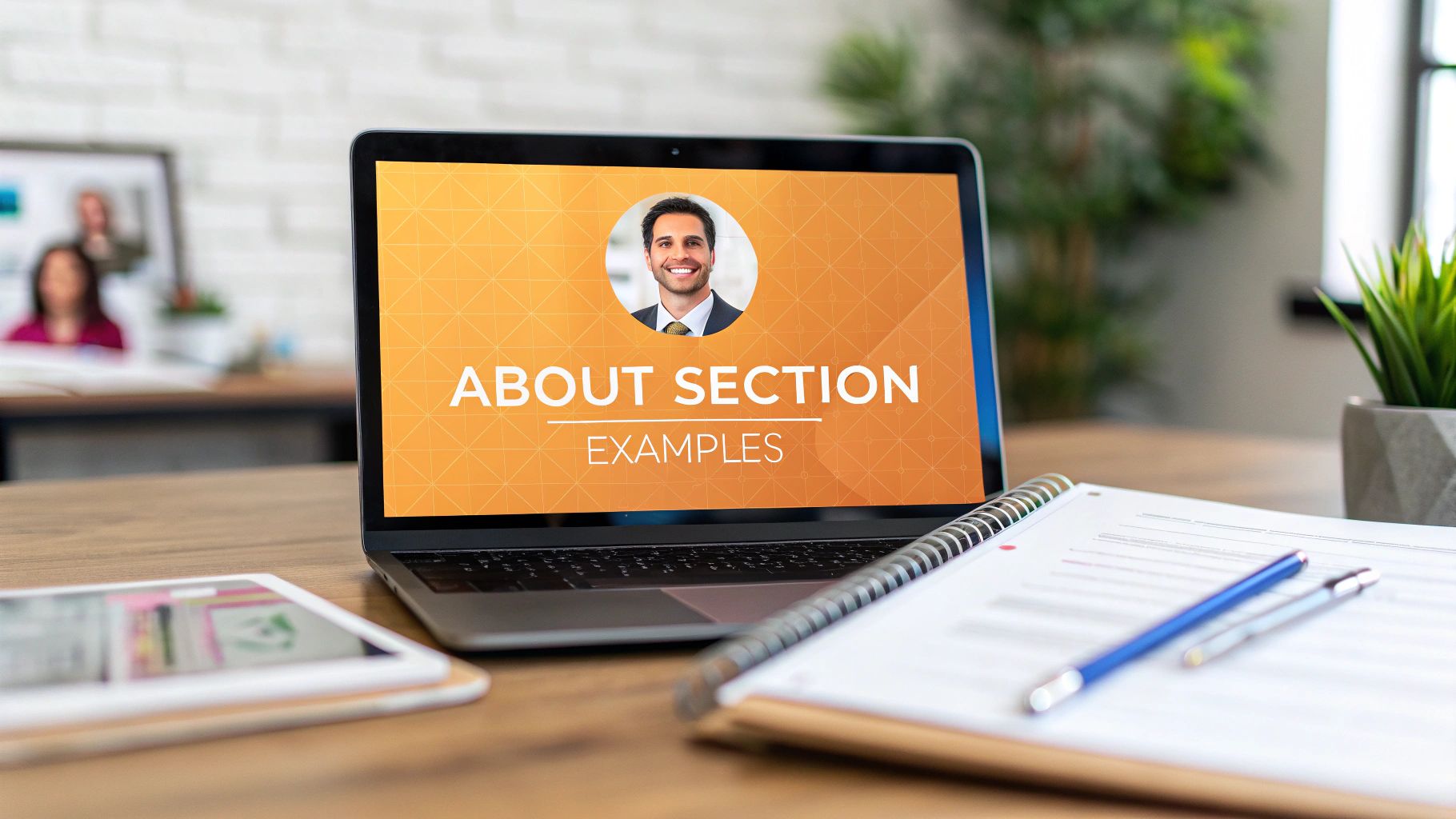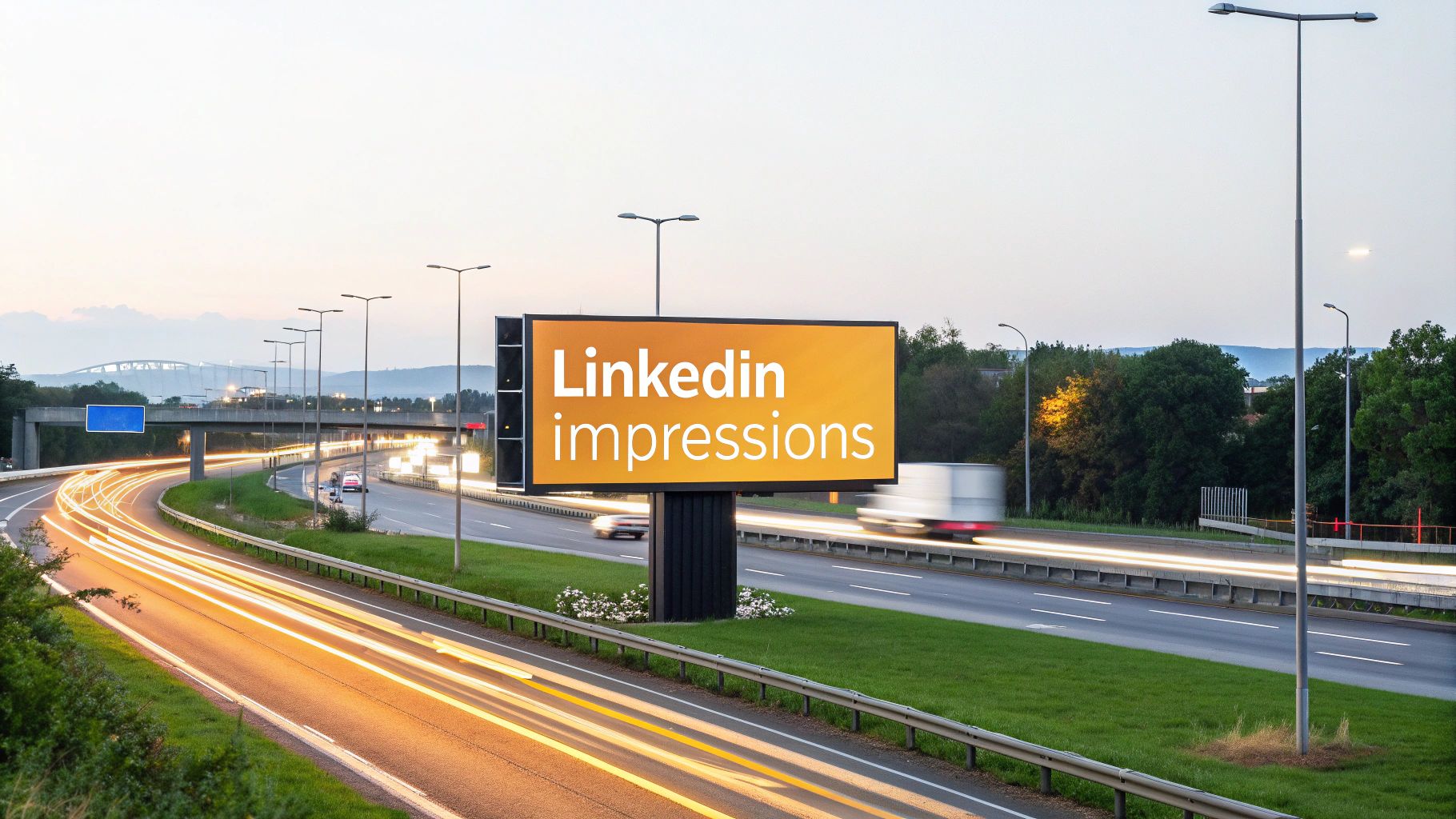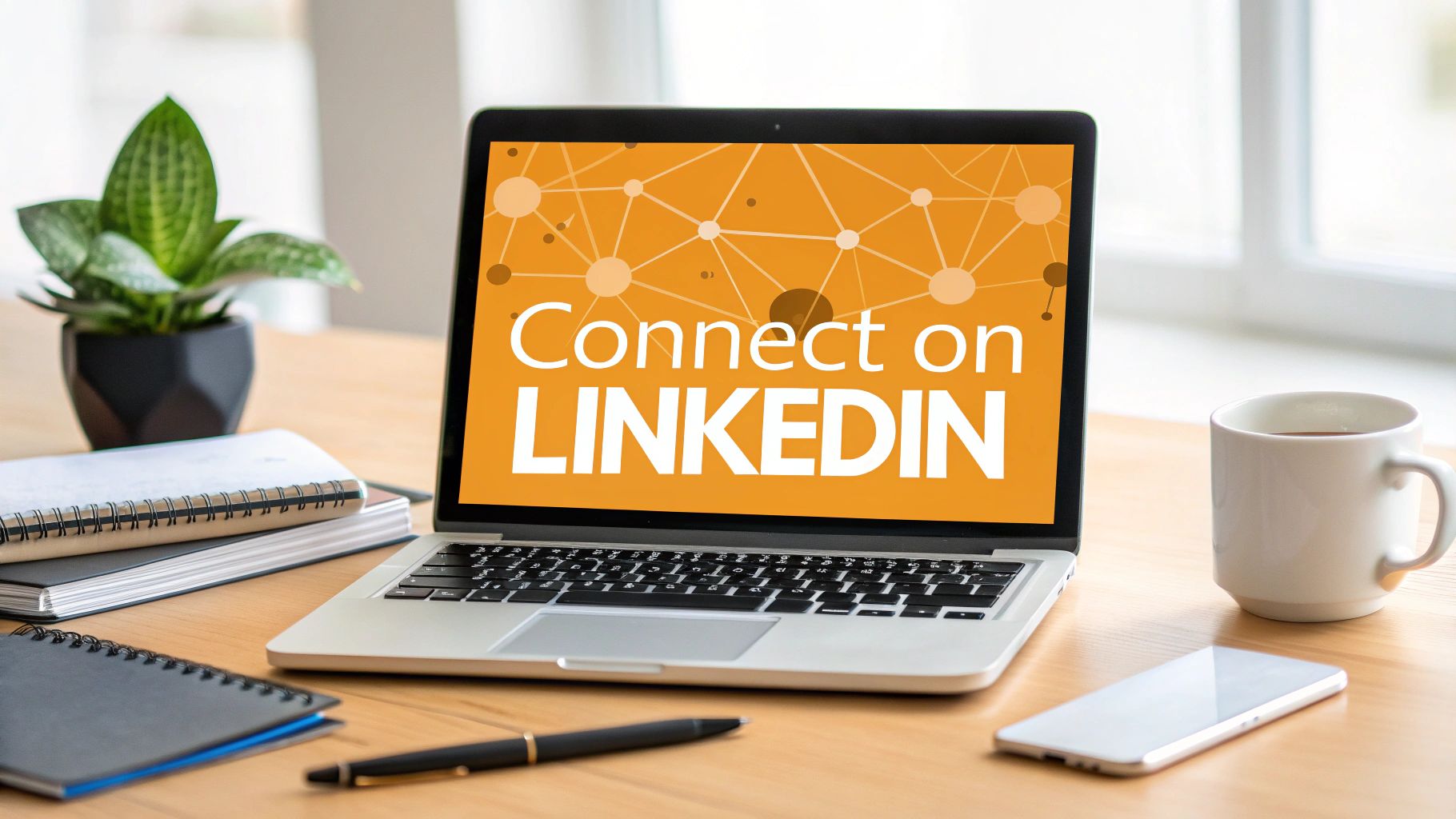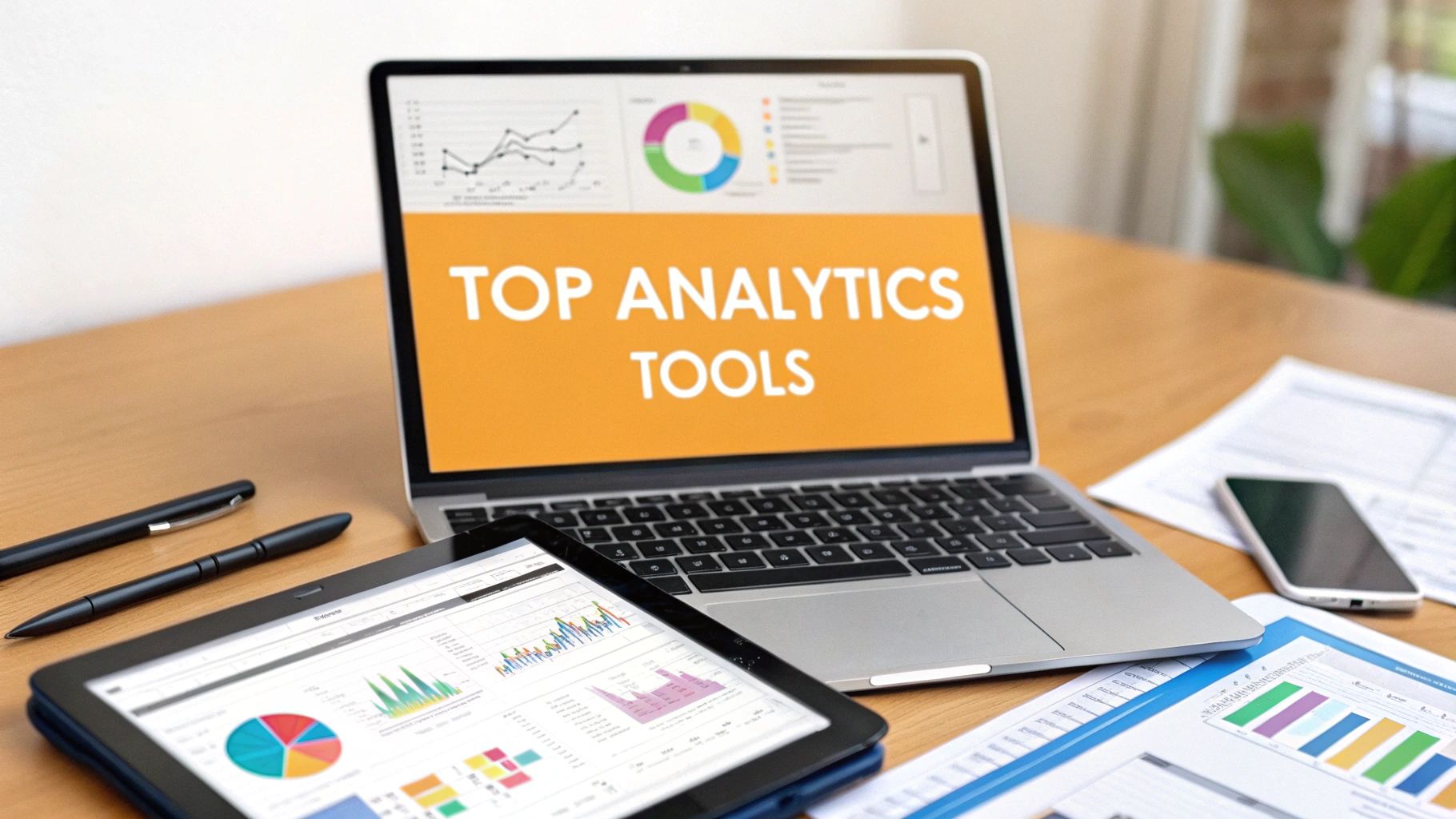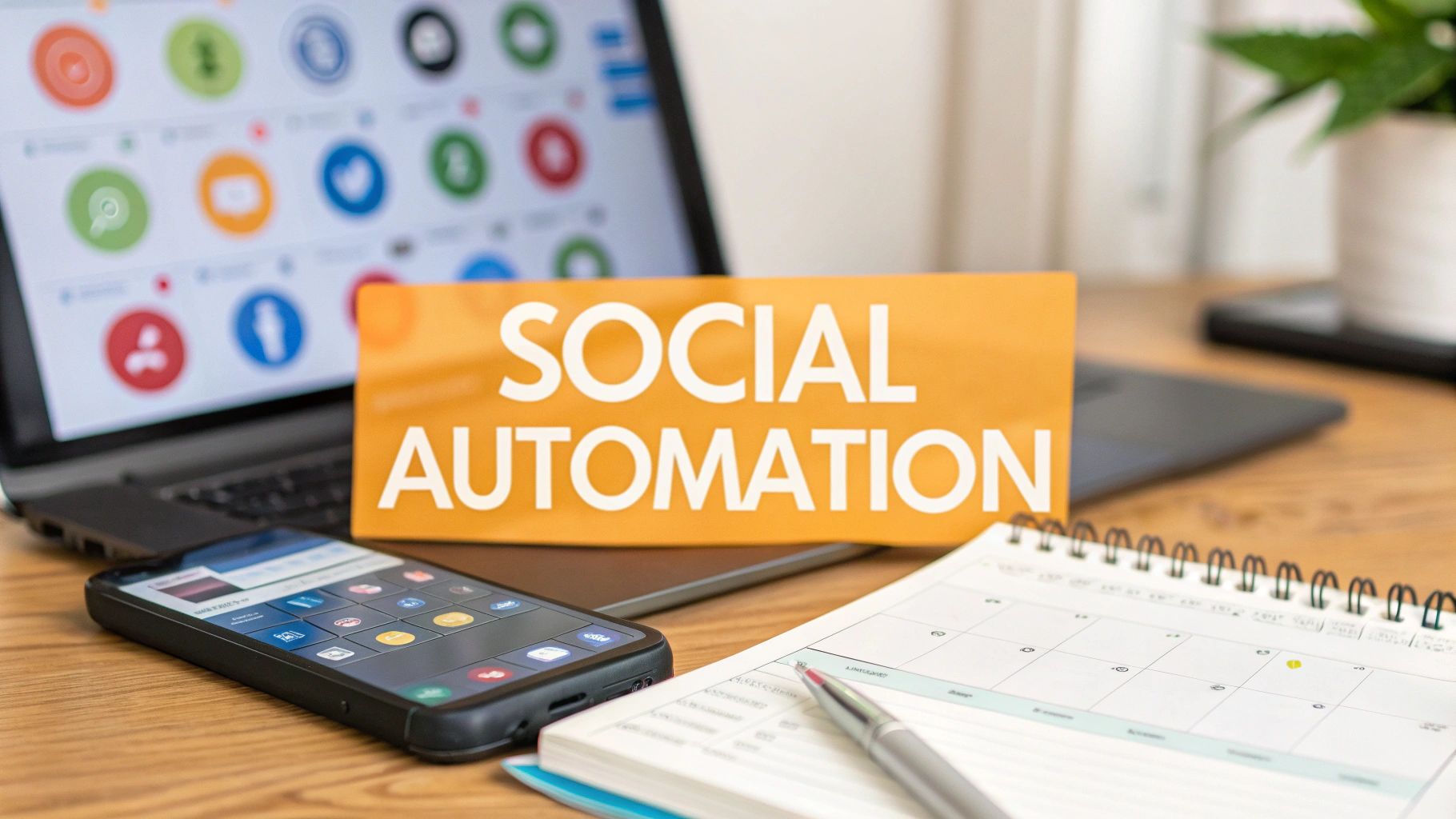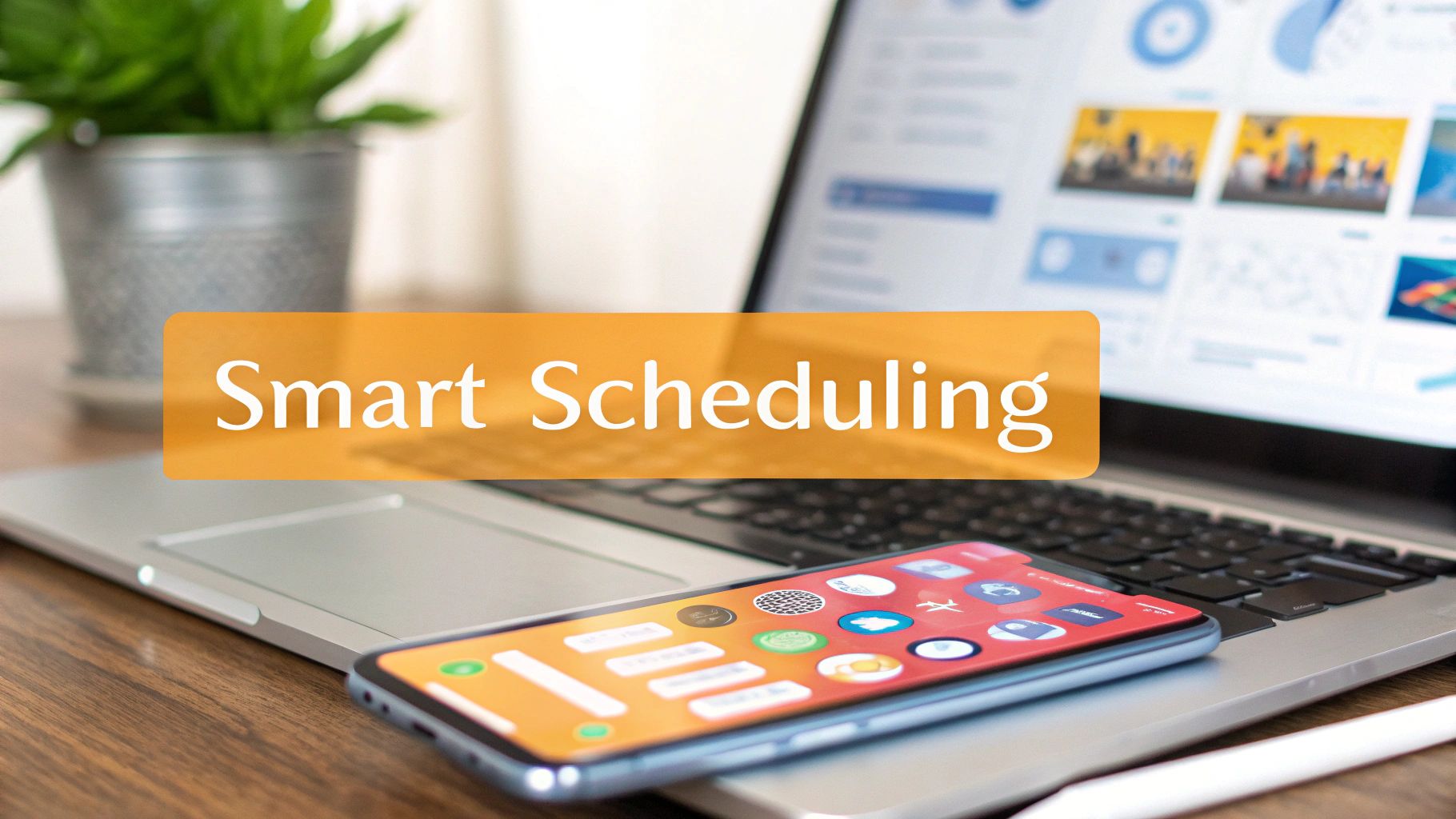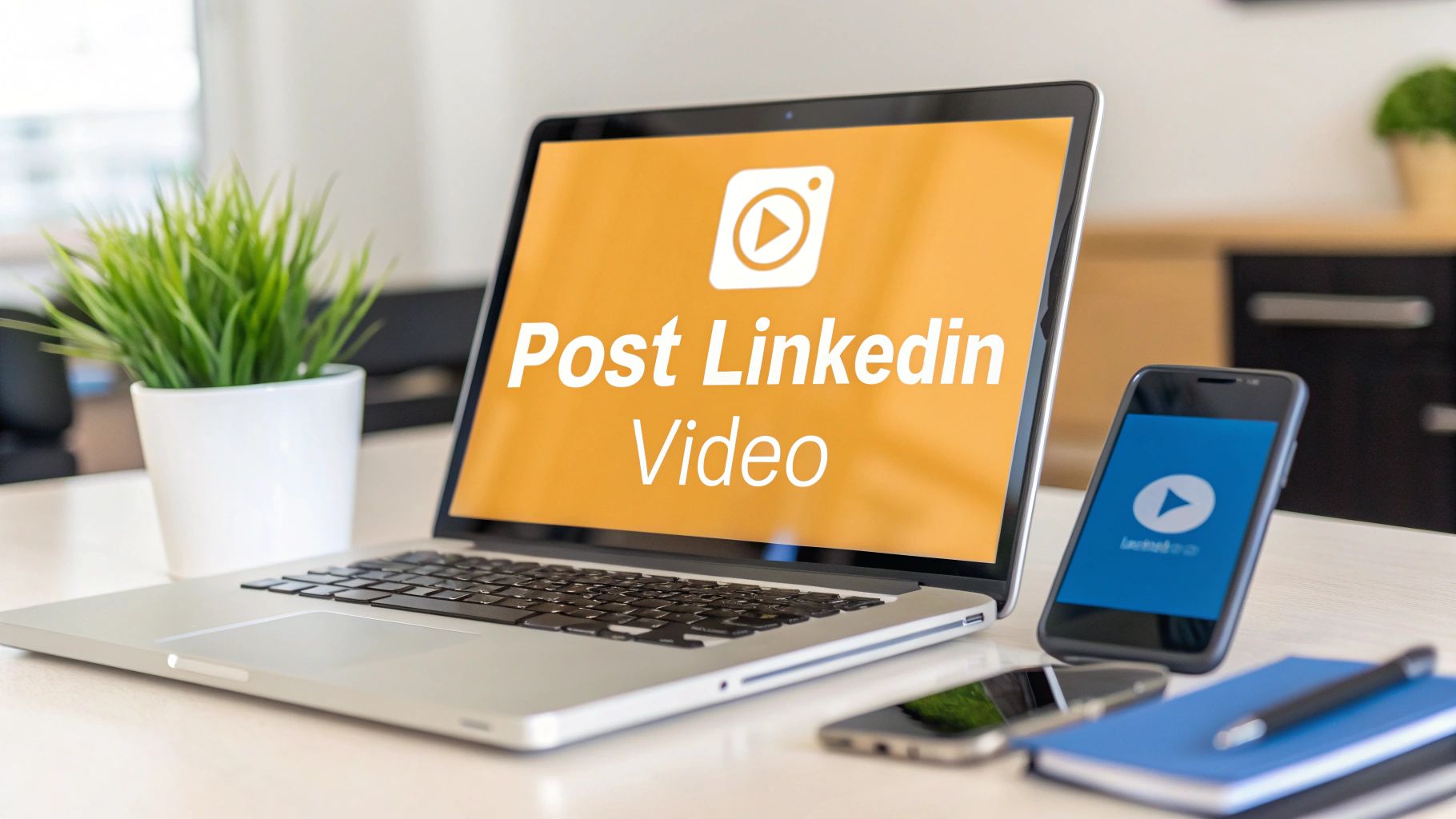Ever feel like your connections are a mile wide but only an inch deep? You're not alone. In a world of endless networking and fleeting interactions, the ability to build genuine, lasting relationships has become a superpower. It’s the secret sauce behind every successful leader, every thriving team, and every fulfilling personal connection. But it's not magic, it's a set of concrete, learnable skills that can be intentionally developed.
These relationship building skills are crucial for more than just career advancement; they enrich our lives by fostering trust and mutual respect. To truly unlock deeper connections in professional environments, understanding principles like those in Mastering Talent Relationship Management can provide a foundational advantage, especially when managing professional networks.
This guide moves beyond generic advice to break down the 7 most impactful skills that will transform how you connect with others. We'll dive straight into actionable strategies, real-world examples, and fresh perspectives you can start using today. Get ready to build the strong, supportive, and meaningful network you deserve, both in your career and your personal life.
1. Active Listening
Far too often, we listen with the intent to reply, not to understand. Active listening flips that script. It’s the conscious effort to hear not just the words another person is saying, but, more importantly, the complete message being communicated. This foundational skill is less about hearing and more about understanding. It's a cornerstone of effective relationship building skills because it conveys respect, builds trust, and makes the other person feel genuinely valued.
Pioneered by figures like psychologist Carl Rogers and popularized by Stephen Covey, this practice involves giving the speaker your undivided attention. Think of a skilled therapist who reflects a client's feelings back to them, making them feel seen, or a top salesperson at Nordstrom who listens intently to a customer's subtle cues before ever suggesting a product. In both cases, the goal is the same: to connect on a deeper level by demonstrating true comprehension and empathy.

How to Practice Active Listening
Developing this skill requires more than just staying quiet; it requires engagement. The objective is to absorb, process, and reflect on what's being said, both verbally and non-verbally.
Here are some actionable tips to get started:
- Follow the 80/20 Rule: Aim to listen 80% of the time and speak only 20%. This keeps the focus on the other person.
- Silence Your Phone (and Mind): Put your devices away and practice mindfulness to stay present. Don't plan your response while they're still talking.
- Ask Open-Ended Questions: Instead of "Did that work?" ask, "What was the outcome of that approach?" This encourages detailed, thoughtful answers rather than simple yes or no responses.
- Embrace the Pause: After someone finishes speaking, wait a few seconds before you respond. This ensures they’ve truly finished their thought and gives you a moment to formulate a more considered reply.
Why It Works
Active listening is a powerful relationship building skill because it shifts the dynamic from a transactional exchange to a collaborative connection. When people feel heard, they are more likely to open up, trust you with important information, and view you as a reliable partner or leader. It's the secret ingredient that transforms a simple conversation into a meaningful bond.
2. Empathy
While sympathy is feeling for someone, empathy is feeling with them. It’s the ability to step into another person's shoes and understand their feelings and perspectives from their point of view. This powerful relationship building skill is the bridge between simply knowing what someone is going through and truly connecting with their emotional experience. It's the difference between saying "that's too bad" and "I can see how frustrating that must be."
Popularized by researchers like Brené Brown and emotional intelligence expert Daniel Goleman, empathy is a learnable skill that transforms interactions. Think of Satya Nadella, who used empathy to reshape Microsoft’s entire corporate culture from competitive to collaborative, or a healthcare worker whose compassionate care improves a patient's recovery. These examples show empathy isn't just a "soft skill"; it's a strategic tool for building trust, fostering innovation, and creating genuine loyalty.
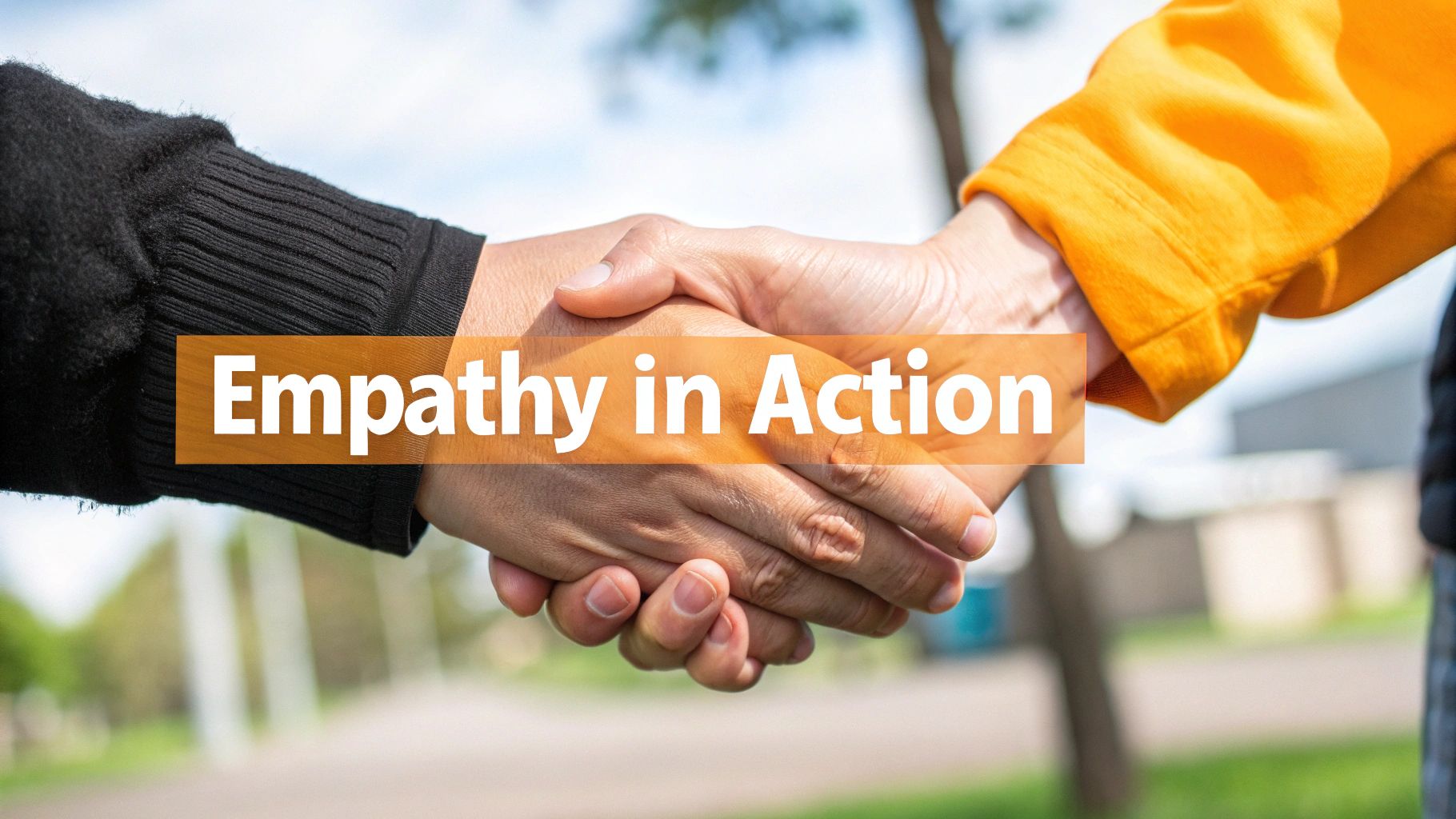
How to Practice Empathy
Developing empathy requires a conscious effort to look beyond your own world and genuinely consider the experiences of others. It involves both cognitive understanding and emotional resonance.
Here are some actionable tips to get started:
- Read More Fiction: Studies show that reading literary fiction improves your ability to understand others' mental states and perspectives.
- Validate Before You Advise: Your first step should always be to acknowledge the other person's feelings. Phrases like "That sounds incredibly difficult" or "I understand why you'd feel that way" go a long way before you offer solutions.
- Ask "How Would I Feel?": Regularly put yourself in the other person’s situation. Actively imagine their circumstances, pressures, and emotional state to build your empathetic muscle.
- Expand Your Circle: Intentionally build relationships with people from different backgrounds, cultures, and life experiences to broaden your emotional and social perspectives. This is crucial for both personal life and professional networking, and you can learn more about how to connect with empathy on LinkedIn.
Why It Works
Empathy is one of the most critical relationship building skills because it dissolves conflict and forges authentic connections. When people feel understood and emotionally validated, they lower their defenses and are more willing to cooperate, trust, and communicate openly. It’s the emotional glue that holds personal and professional relationships together, turning simple interactions into supportive, lasting bonds.
3. Effective Communication
Effective communication is more than just exchanging information; it’s about ensuring the message you send is the one that gets received. This skill involves conveying ideas, thoughts, and feelings with clarity, confidence, and consideration for your audience. As a core relationship building skill, it acts as the glue that prevents misunderstandings, builds trust, and fosters genuine connection by aligning intent with impact.
This concept has been championed by experts ranging from Dale Carnegie, who taught how to win friends, to former FBI negotiator Chris Voss, who uses communication to navigate life-or-death situations. Think of Barack Obama’s talent for explaining complex policies in simple, relatable terms, or Southwest Airlines' legendary employee training that turns routine interactions into positive customer experiences. In every case, the goal is to create shared understanding and build a bridge between people.
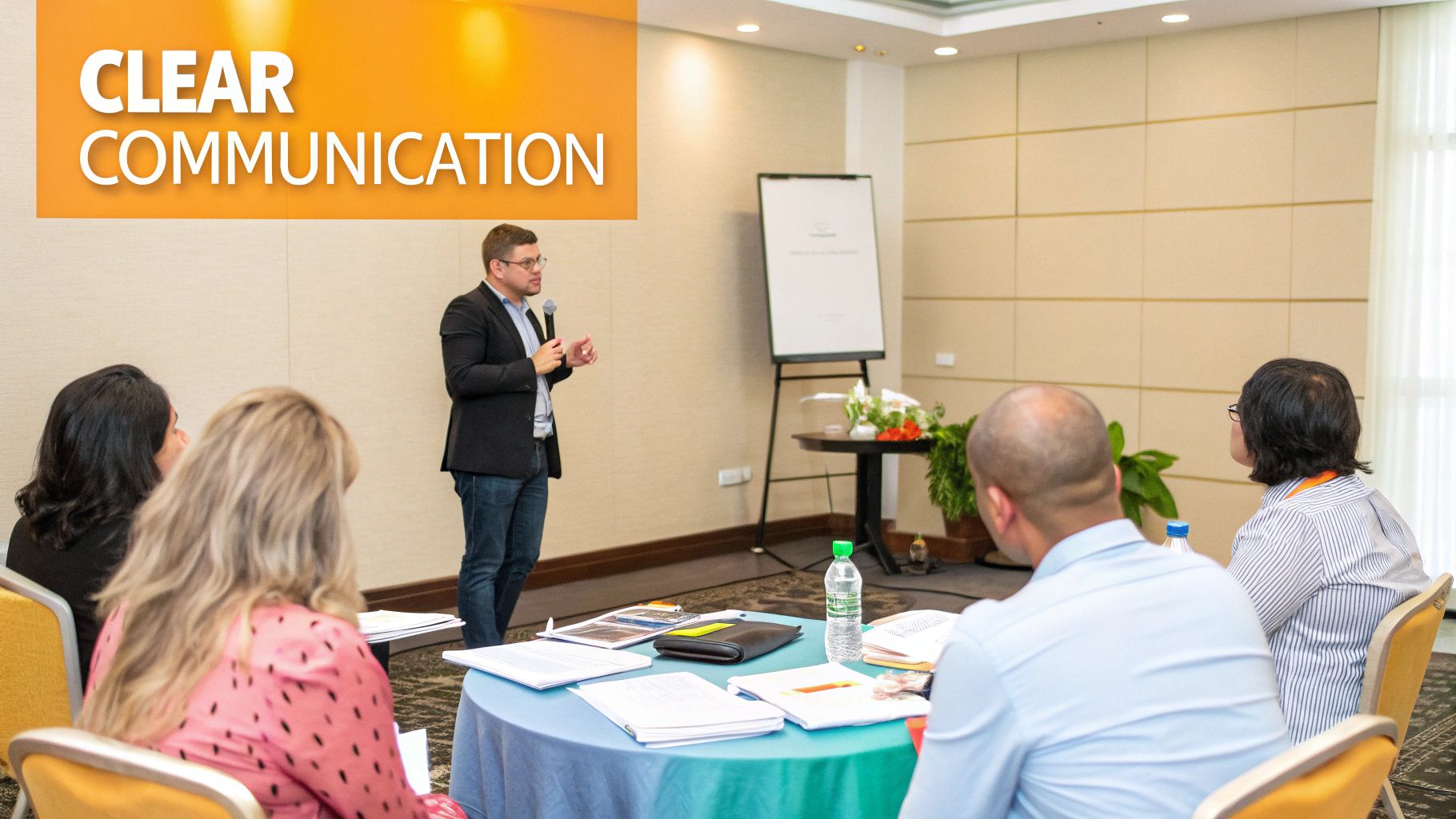
How to Practice Effective Communication
Mastering this skill means being intentional about what you say, how you say it, and the medium you choose. It’s about adapting your approach to fit the situation and the person you're speaking with. For practical strategies tailored to a professional setting, discover essential tips for improving workplace communication skills.
Here are some actionable tips to get started:
- Practice the 'Headline Test': State your main point first, then provide the details. This respects the other person's time and ensures your key message lands, even if they're distracted.
- Use the SBI Model for Feedback: Structure your feedback around Situation (when/where), Behavior (what they did), and Impact (how it affected you/the team). This makes feedback objective and constructive.
- Match the Medium to the Message: Don't break up with someone over text. Use face-to-face or video calls for complex or sensitive topics, and email or chat for simple information sharing.
- Tell Stories: Use concrete examples and stories to bring abstract ideas to life. People connect with narratives far more than dry facts and figures.
- Confirm Understanding: Don't just ask, "Does that make sense?" Instead, ask the other person to summarize the key takeaways in their own words to ensure true alignment.
Why It Works
Effective communication is a powerful relationship building skill because it minimizes friction and maximizes clarity. When you communicate well, people see you as credible, trustworthy, and easy to work with. It eliminates guesswork and builds a solid foundation of mutual respect, which is essential for any strong personal or professional bond. Learning how to express yourself clearly is also a key component of building a strong professional brand, which you can see when you learn how to write an effective LinkedIn post.
4. Emotional Intelligence
While IQ gets you in the door, it’s emotional intelligence (EQ) that determines how far you’ll go inside. EQ is the ability to recognize, understand, and manage your own emotions, and to recognize, understand, and influence the emotions of others. This crucial skill is one of the most potent relationship building skills because it allows you to navigate complex social dynamics, respond with empathy, and build trust through emotional maturity.
Popularized by psychologist Daniel Goleman, this concept is demonstrated everywhere from high-stakes business to personal therapy. Think of Indra Nooyi, former CEO of PepsiCo, who wrote personal letters to her senior executives' parents, acknowledging their contribution. This wasn't a business tactic; it was a deeply human gesture rooted in high EQ. Similarly, Google's "Search Inside Yourself" program was created to teach employees EQ, boosting their ability to collaborate and lead effectively.

How to Practice Emotional Intelligence
Developing EQ is an inside-out job. It starts with self-awareness and extends to how you interact with the world around you. The goal is to move from reacting emotionally to responding thoughtfully.
Here are some actionable tips to get started:
- Keep an Emotion Journal: Take five minutes daily to jot down how you felt and what triggered those feelings. This builds self-awareness by identifying patterns.
- Practice the 'STOP' Technique: When you feel a strong emotion rising, Stop, Take a breath, Observe your thoughts and feelings, and then Proceed with a conscious choice.
- Seek Honest Feedback: Ask a trusted friend or colleague how you come across emotionally in certain situations. For example, "When we disagreed in that meeting, how did my response make you feel?"
- Expand Your Emotional Vocabulary: Move beyond "happy," "sad," or "angry." Use more nuanced words like "frustrated," "anxious," "content," or "inspired" to better understand and communicate your internal state.
Why It Works
Emotional intelligence is a powerful relationship building skill because it addresses the unspoken currents in every interaction. By understanding and managing emotions, you prevent misunderstandings, de-escalate conflict, and show others that you are a stable, empathetic, and reliable person. It's the difference between a conversation that feels like a chess match and one that feels like a genuine connection.
5. Authenticity and Vulnerability
In a world full of curated social media profiles and polished professional personas, being real is a revolutionary act. Authenticity is about presenting your true self, while vulnerability is the courage to share your imperfections. Together, they form one of the most powerful relationship building skills, allowing others to connect with the real you, not just the version you think they want to see.
This concept was powerfully brought to the mainstream by researcher Brené Brown, whose viral TED talk redefined vulnerability not as a weakness, but as the birthplace of connection and courage. Think of leaders like Howard Schultz sharing his humble beginnings to inspire Starbucks partners, or athletes like Simone Biles openly discussing mental health. They aren't oversharing; they are strategically lowering their guard to build a foundation of trust and relatability that performance alone cannot achieve.
How to Practice Authenticity and Vulnerability
Being genuine doesn’t mean airing all your dirty laundry. It’s about discerning what to share, with whom, and when. The goal is to build trust, not to burden others.
Here are some actionable tips to get started:
- Use the 'Marble Jar' Concept: As Brené Brown suggests, share small vulnerabilities with people who have earned your trust, like adding a marble to a jar. As they prove trustworthy, you can share more.
- Share Struggles You've Overcome: Talking about a past challenge and how you navigated it shows resilience and humanity without creating an active crisis for others to solve.
- Start with Low Stakes: Practice by sharing a minor professional mistake or a personal hobby you're passionate about. This builds your comfort level with being open.
- Balance Vulnerability with Competence: Ensure your moments of vulnerability are balanced with demonstrations of your skills and reliability. This maintains credibility and shows you're human, not incapable.
Why It Works
Authenticity and vulnerability dismantle the barriers that keep relationships superficial. When you risk showing your true self, you give others permission to do the same, creating a virtuous cycle of trust and mutual respect. This is a critical relationship building skill because it moves connections from transactional to transformational, fostering loyalty and genuine collaboration that a perfectly curated image never could.
6. Conflict Resolution
Conflict is an inevitable part of any meaningful relationship, but how you handle it determines whether it strengthens or shatters your connection. Conflict resolution is the skill of navigating disagreements constructively to find a solution that fortifies the relationship. Instead of seeing conflict as a battle to be won, this approach treats it as a mutual problem to be solved, turning potential breakdowns into opportunities for deeper understanding and growth.
This skill is championed by experts from diverse fields. Think of FBI hostage negotiator Chris Voss using tactical empathy to de-escalate life-or-death situations, or the work of John Gottman, who can predict a couple’s long-term success based on how they manage disagreements. The core principle remains the same: move beyond blame to understand underlying needs and find common ground. This is one of the most advanced relationship building skills, as it requires emotional regulation and a genuine desire for a positive outcome.
How to Practice Conflict Resolution
Effective conflict resolution isn’t about avoiding fights; it's about having better ones. The goal is to ensure both parties feel heard, respected, and committed to the solution.
Here are some actionable tips to get started:
- Use 'I' Statements: Frame your concerns around your own feelings. Saying "I felt overlooked when the decision was made" is collaborative, while "You ignored my input" is accusatory and invites defensiveness.
- Address Issues Promptly: Don't let resentment simmer. Small issues are easier to resolve before they escalate into major blow-ups.
- Focus on Interests, Not Positions: Look past the surface-level demands ("I want the corner office") to understand the underlying need ("I need a quiet space to focus"). This opens up more creative, win-win solutions.
- Know When to Take a Break: If emotions run too high, agree to pause the conversation. Stepping away for 20 minutes can prevent you from saying something you'll regret and allows for a more rational discussion later.
Why It Works
Conflict resolution is a powerful relationship building skill because it demonstrates a commitment to the relationship over the need to be right. When you successfully navigate a disagreement, you build a shared history of overcoming challenges together, which creates immense trust and resilience. It proves that the connection is strong enough to withstand pressure, making both parties feel more secure and valued in the long run.
7. Consistency and Reliability
Trust isn't built in a single moment; it's the result of countless small actions performed over time. Consistency and reliability are the skills that make this possible. They involve following through on what you say you'll do, maintaining predictable and fair behavior, and being a person others can truly depend on. This is a foundational relationship building skill because it creates a sense of psychological safety, allowing others to feel secure and confident in your connection.
Think of Warren Buffett, whose unwavering investment philosophy has built decades of trust with shareholders, or the simple reliability of a brand like FedEx, which built an empire on the promise of being dependable. In our personal lives, it’s the friend who always calls when they say they will or the colleague who delivers their part of a project on time, every time. Figures like Stephen Covey and James Clear have long emphasized that this pattern of dependable behavior is the bedrock of integrity and deep, lasting connections.
How to Practice Consistency and Reliability
Becoming a more reliable person is about building systems that support your intentions. It's less about grand gestures and more about the discipline of keeping your word in small, everyday matters.
Here are some actionable tips to get started:
- Under-Promise and Over-Deliver: Set realistic expectations you know you can meet, then aim to exceed them. This simple shift in framing can dramatically change how others perceive your reliability.
- Use Systems, Not Just Memory: Rely on calendar reminders, task managers, and other tools to track your commitments. Your brain is for having ideas, not for holding them.
- Communicate Proactively: If you anticipate a delay or can't meet a commitment, communicate it as early as possible. A proactive heads-up preserves trust far more than a last-minute excuse.
- Build with Small Commitments: Start by being impeccably reliable with small promises. This builds credibility and makes it easier for people to trust you with more significant responsibilities.
Why It Works
Consistency and reliability are powerful relationship building skills because they remove uncertainty and anxiety from your interactions. When people know they can count on you, they lower their guard, communicate more openly, and are more willing to invest in the relationship. It transforms you from a variable acquaintance into a constant, trusted ally, which is the cornerstone of any meaningful professional or personal bond.
7 Key Relationship Skills Comparison
| Skill/Aspect | Implementation Complexity 🔄 | Resource Requirements ⚡ | Expected Outcomes 📊 | Ideal Use Cases 💡 | Key Advantages ⭐ |
|---|---|---|---|---|---|
| Active Listening | Moderate - requires sustained mental focus | Low - attention and mindfulness | Enhanced trust, reduced misunderstandings | Therapy, sales, diplomacy, medical diagnosis | Builds rapport, uncovers hidden info |
| Empathy | Moderate to High - emotional intelligence needed | Moderate - emotional energy, self-awareness | Deeper connections, conflict resolution | Leadership, healthcare, customer service, teaching | Facilitates understanding, loyalty |
| Effective Communication | Moderate - ongoing skill refinement | Moderate - training, practice | Clearer messages, fewer conflicts | Leadership, public speaking, team collaboration | Builds credibility, increases efficiency |
| Emotional Intelligence | High - requires self-reflection and practice | High - time and emotional effort | Better relationship success, stress management | Leadership, negotiation, therapy, teamwork | Predicts relationship success, improves health |
| Authenticity & Vulnerability | Moderate - needs courage and self-awareness | Low to Moderate - trust-building time | Genuine connections, psychological safety | Leadership, personal growth, team building | Builds trust, inspires authenticity |
| Conflict Resolution | High - requires skills in mediation and dialogue | Moderate - patience, emotional control | Stronger relationships, problem-solving | Counseling, workplace disputes, community mediation | Prevents escalation, fosters respect |
| Consistency & Reliability | Moderate - sustained discipline needed | Low to Moderate - time management tools | Deep trust, reduced anxiety in relationships | Professional settings, friendships, partnerships | Builds foundational trust, enhances reputation |
Start Building Better Relationships Today
We've just walked through seven foundational pillars of connection: active listening, empathy, effective communication, emotional intelligence, authenticity, conflict resolution, and reliability. It might feel like a lot to take in, but the journey to mastering these essential relationship building skills isn't about a massive, overnight transformation. It’s about small, intentional actions compounded over time.
Think of it less like a final exam and more like a daily practice. Every email you send, every meeting you attend, and every conversation you have is a new opportunity to flex these muscles. The real power isn't in knowing what these skills are; it's in the consistent, conscious effort to apply them.
From Theory to Action: Your First Steps
The path forward doesn't require you to tackle all seven skills at once. In fact, that's a surefire way to get overwhelmed. The most effective approach is to focus your energy.
- Pick Just One: Which skill from the list resonated most with you? Was it the idea of showing more empathy, or perhaps the challenge of resolving conflict constructively? Choose the one that feels most relevant or exciting to you right now.
- Identify a Micro-Habit: Break that skill down into a tiny, actionable step. If you chose active listening, your micro-habit could be to put your phone away and make eye contact during your next one-on-one meeting. If you chose authenticity, it might be sharing a small, relevant personal story with a colleague this week.
- Practice and Reflect: Try out your new micro-habit. At the end of the day, take just two minutes to think about how it went. What worked? What felt awkward? This simple act of reflection is what turns a single action into a learned skill.
Building strong relationships is the ultimate career and life hack. It’s what turns a simple professional network into a powerful support system, a customer into a loyal advocate, and a team of individuals into a collaborative force. The value extends far beyond your professional life, enriching your personal connections and creating a more fulfilling, supportive social fabric around you.
The investment you make in honing your relationship building skills pays dividends in every area of your life. It fosters trust, opens doors to new opportunities, and deepens your sense of connection to the world around you. You don’t need permission or a special occasion to begin. Your next interaction is your starting line. What small step will you take today?
Ready to elevate your digital communication and build stronger professional relationships online? RedactAI helps you craft authentic, engaging content for platforms like LinkedIn, ensuring your voice is heard and your connections are genuine. Turn your expertise into influence and start building your network with RedactAI today.








